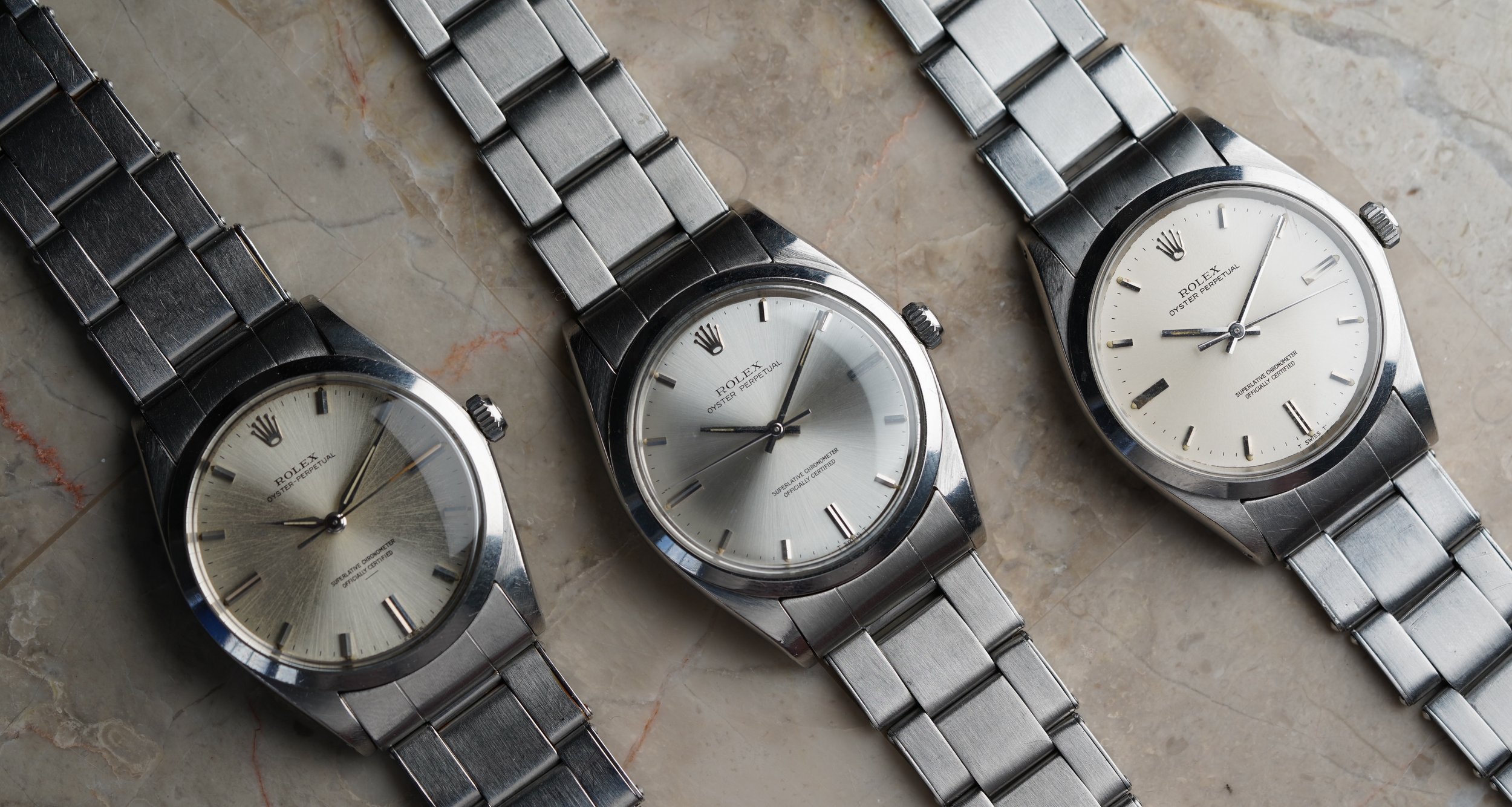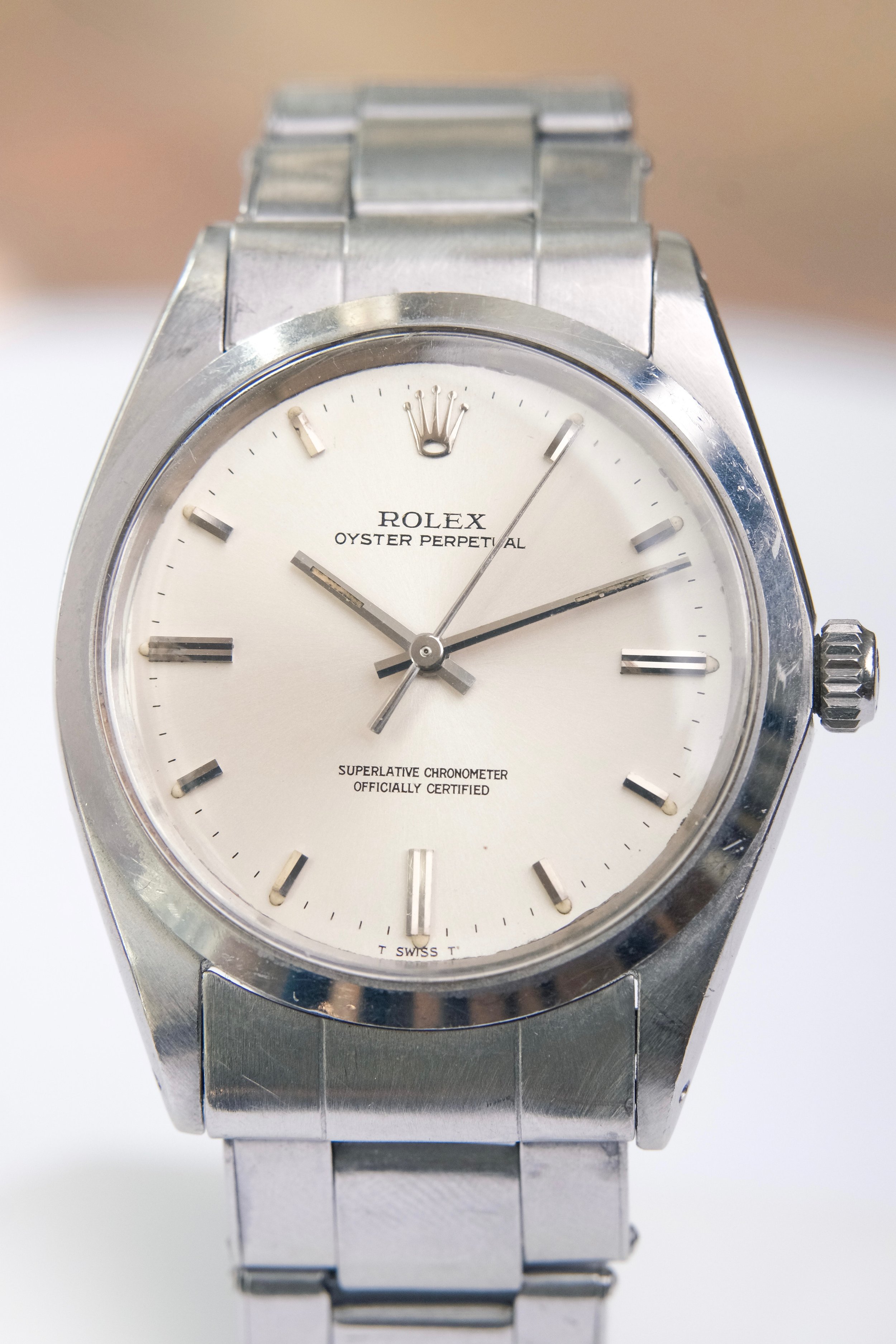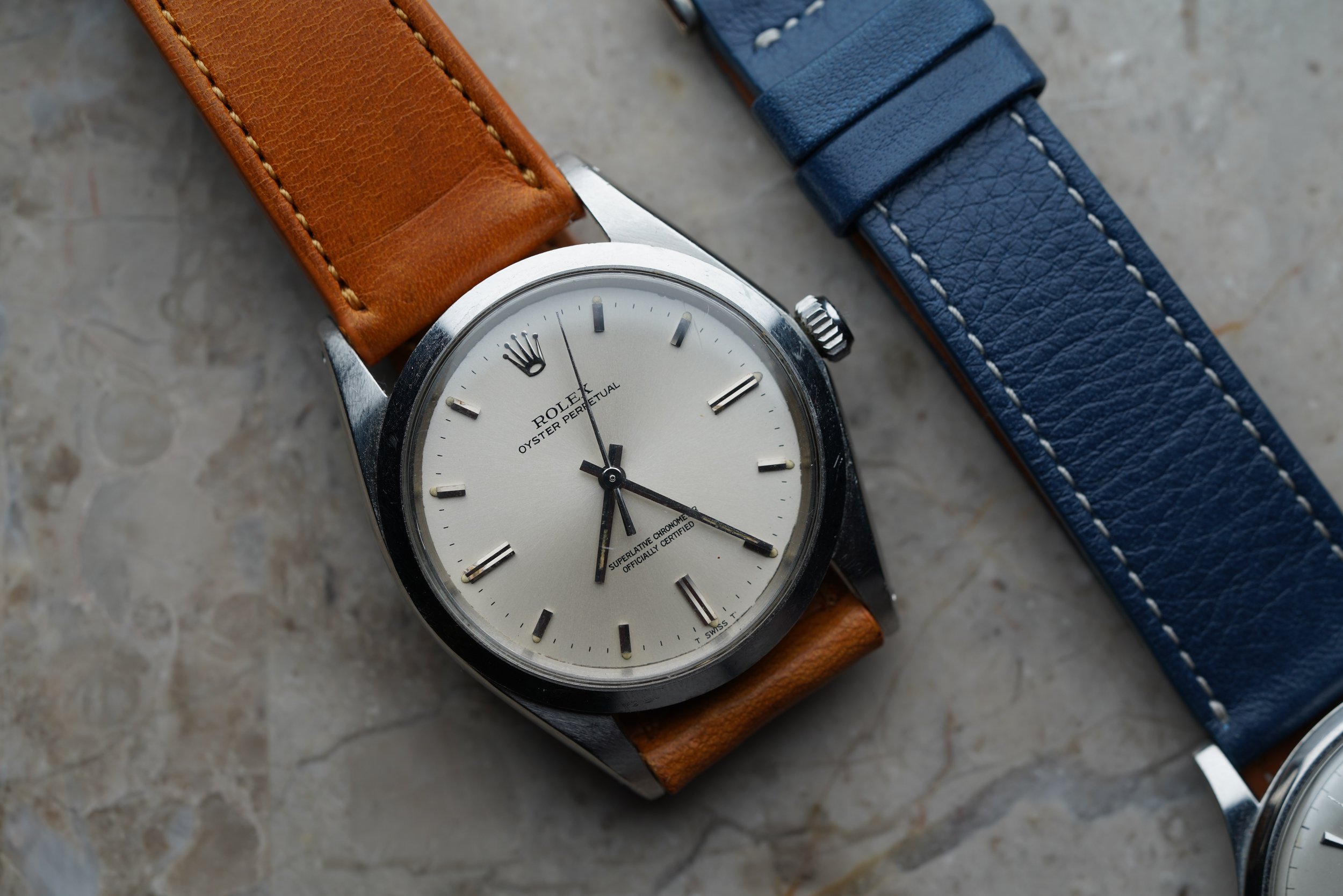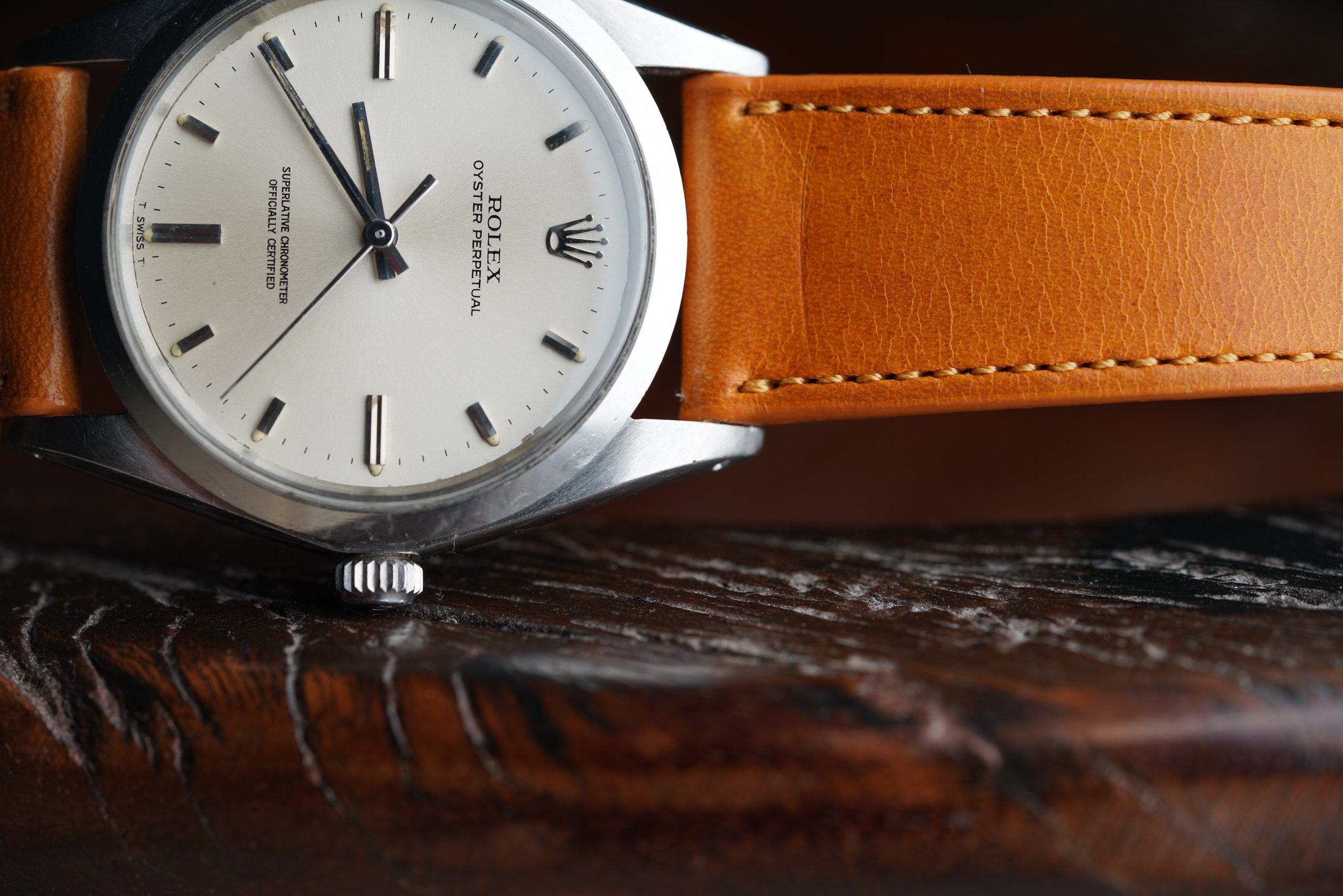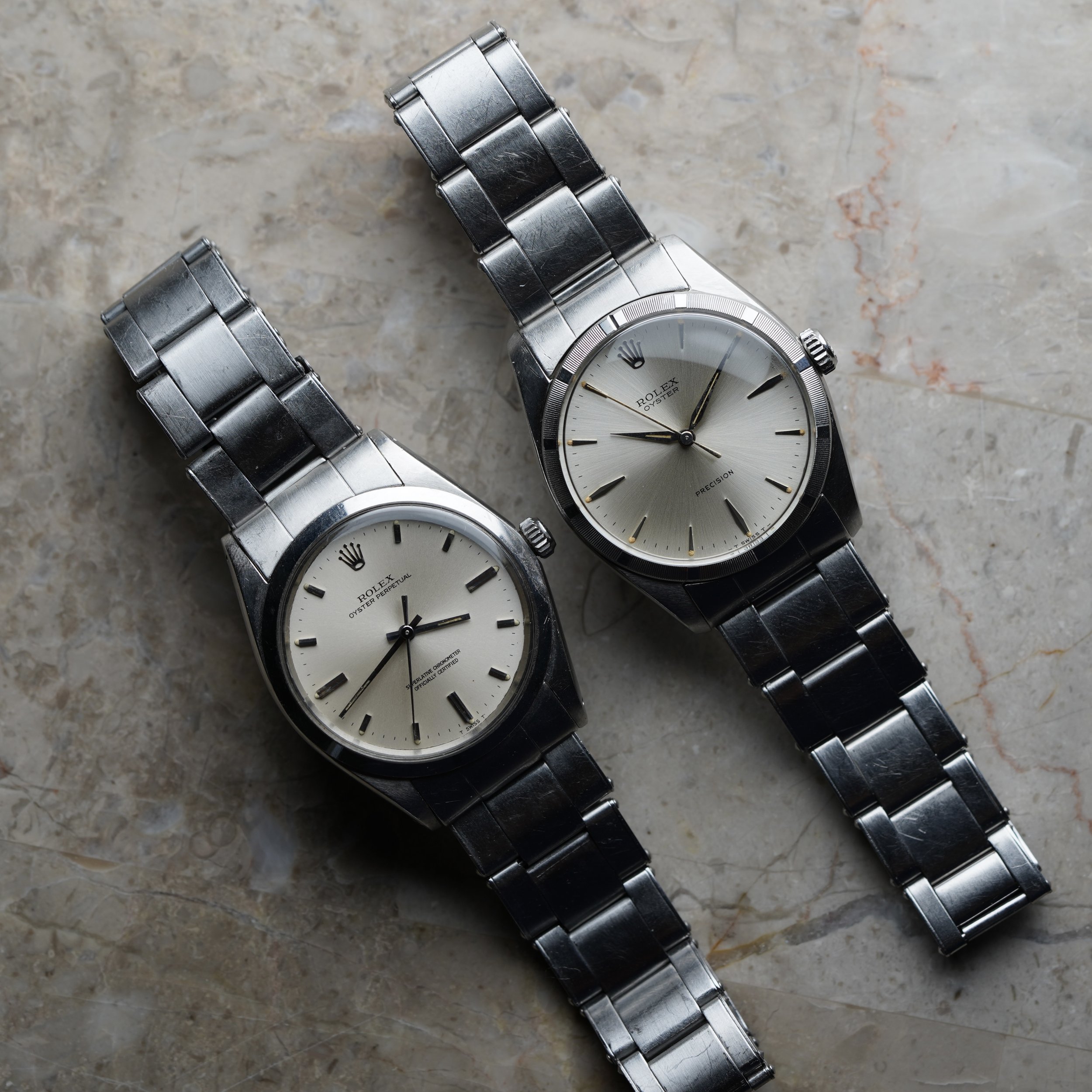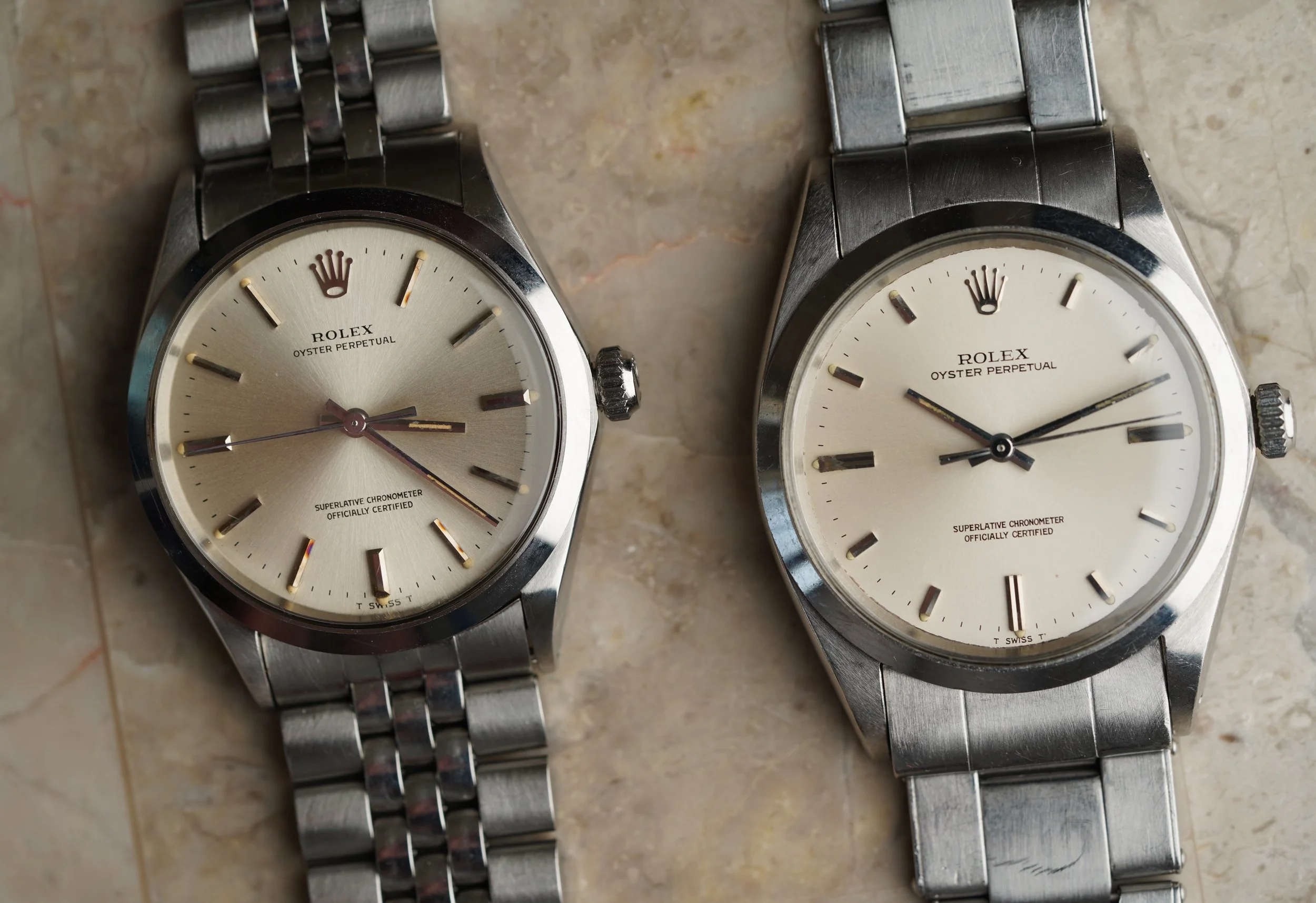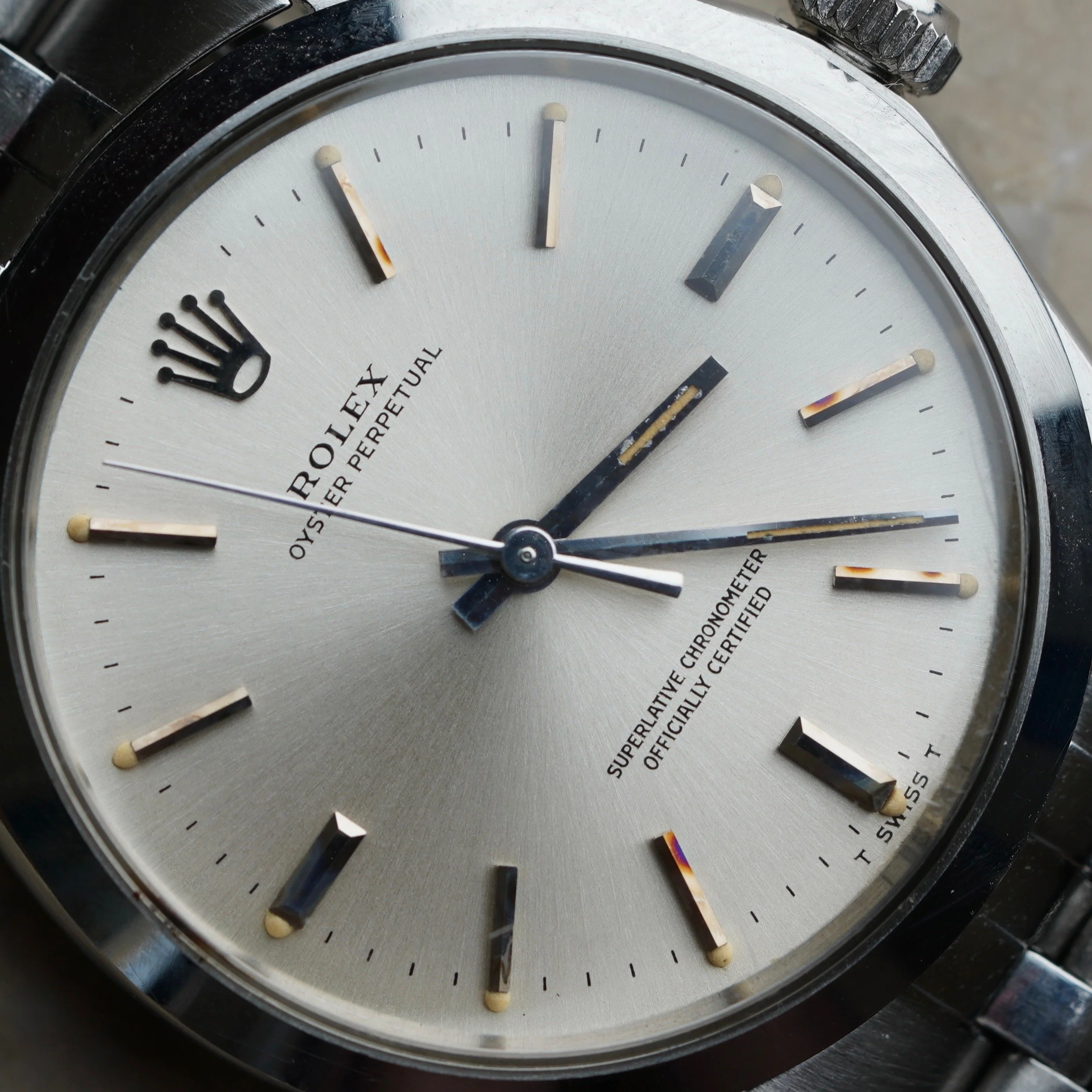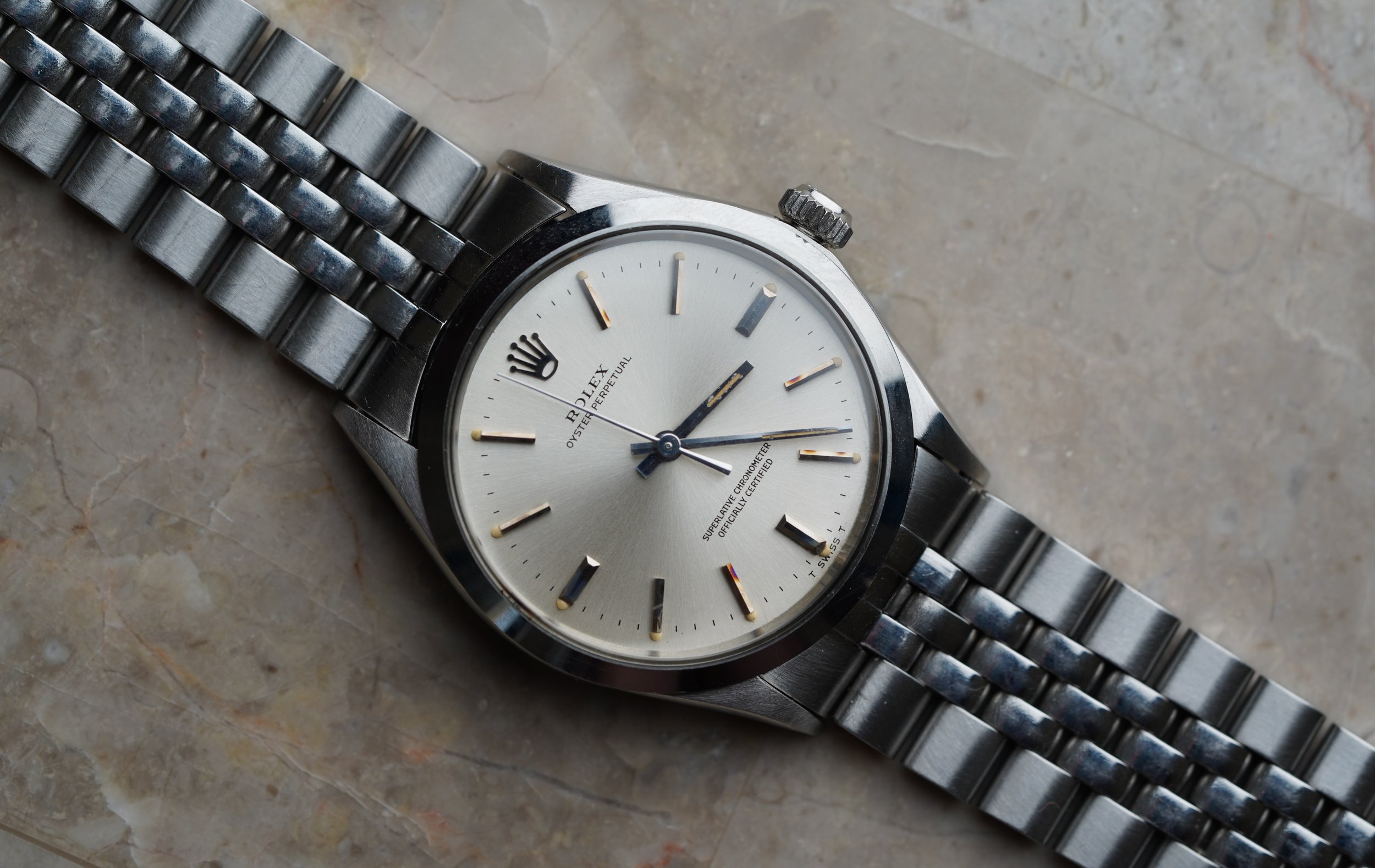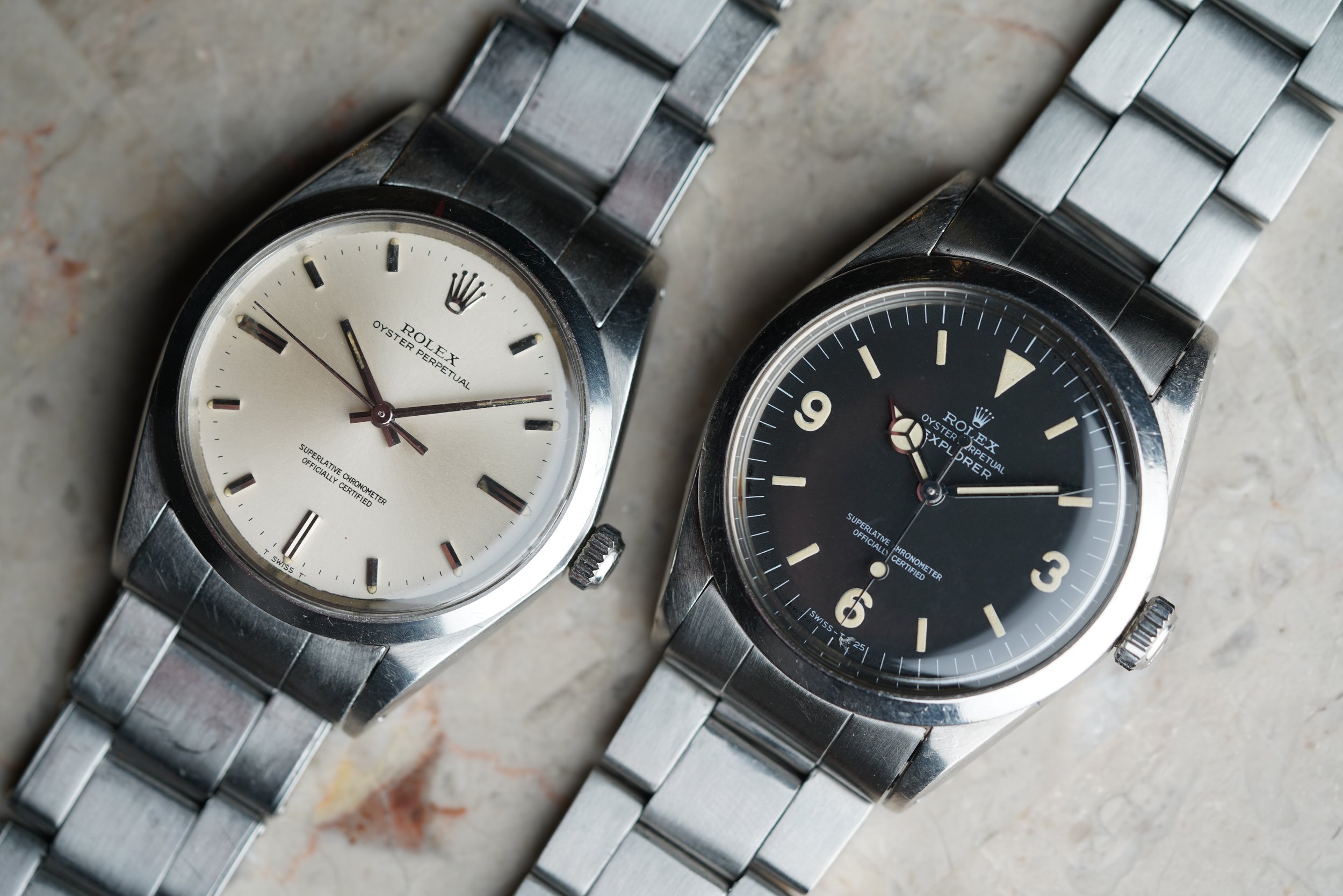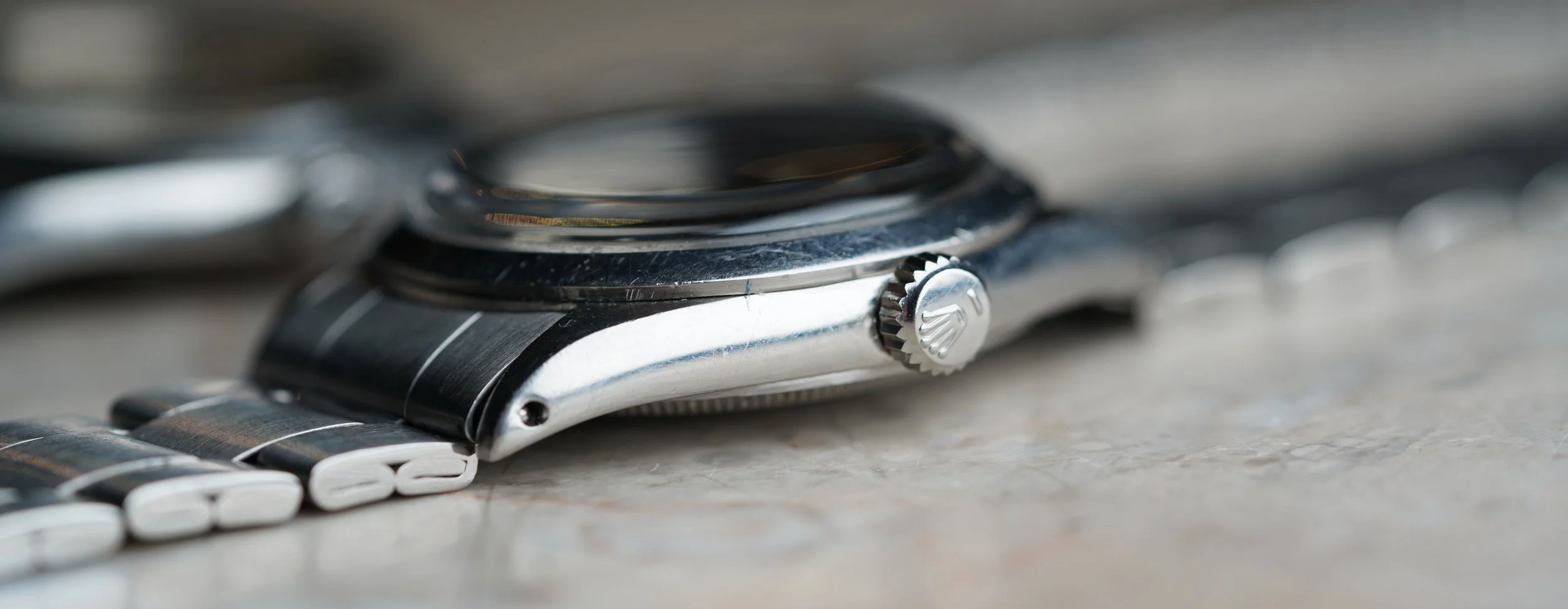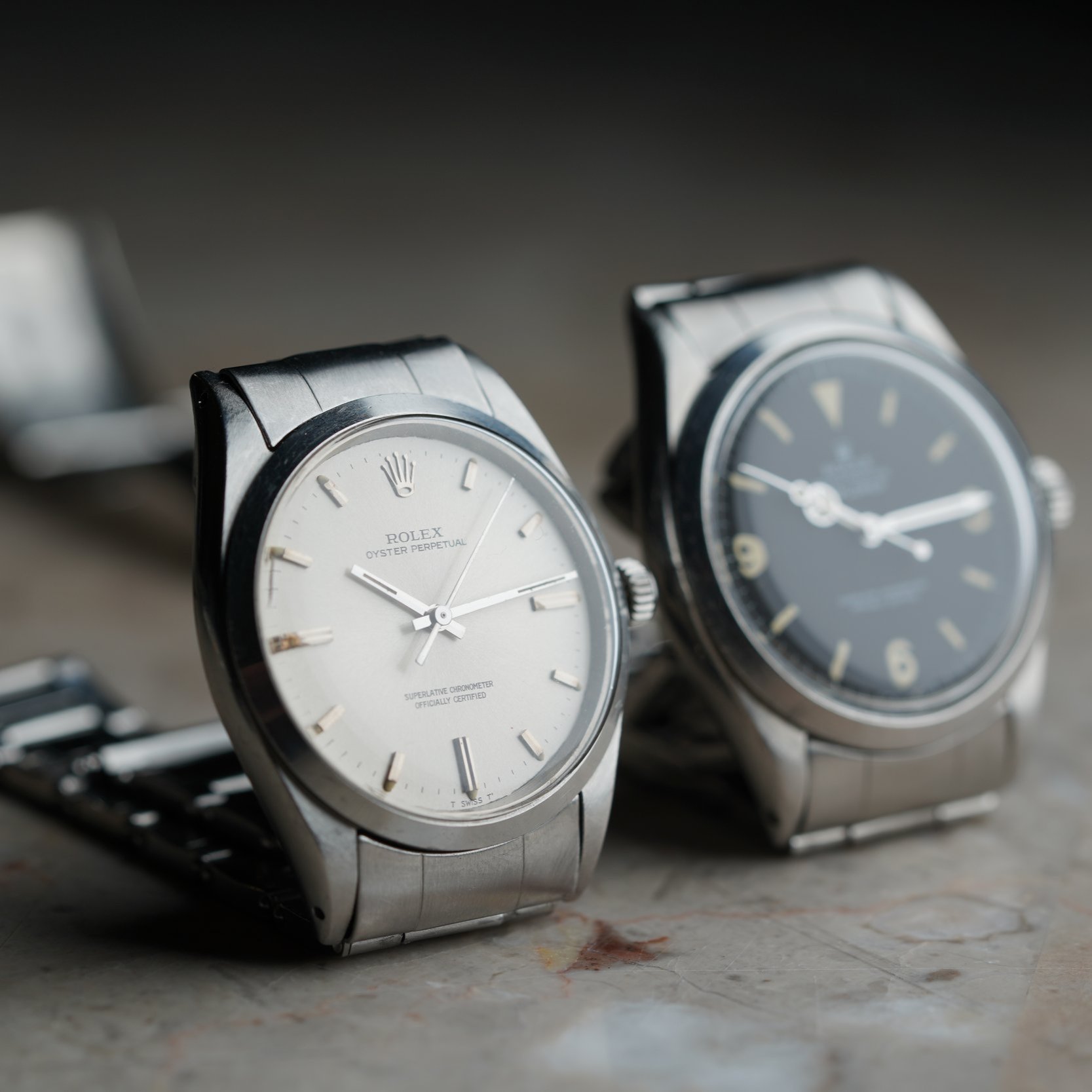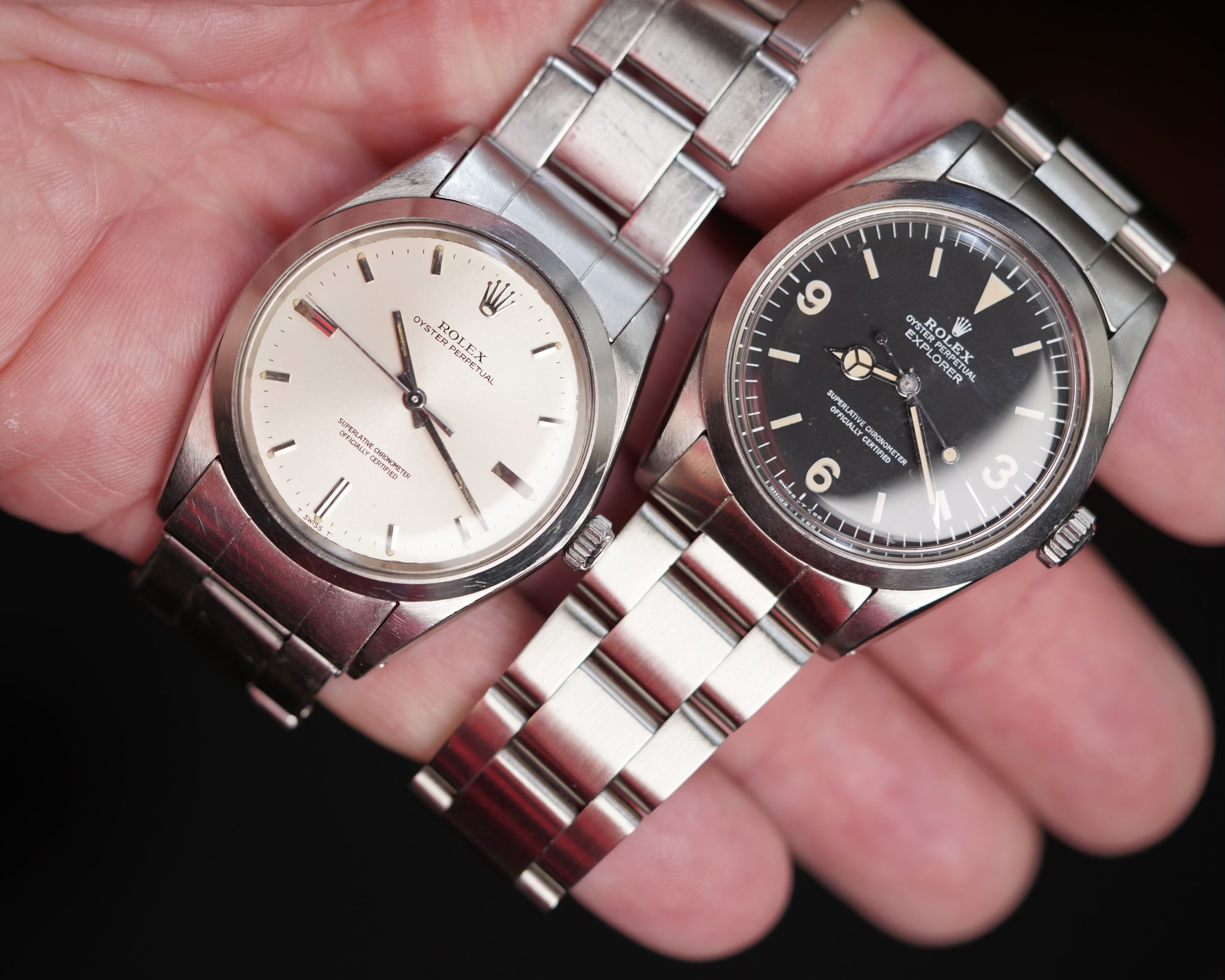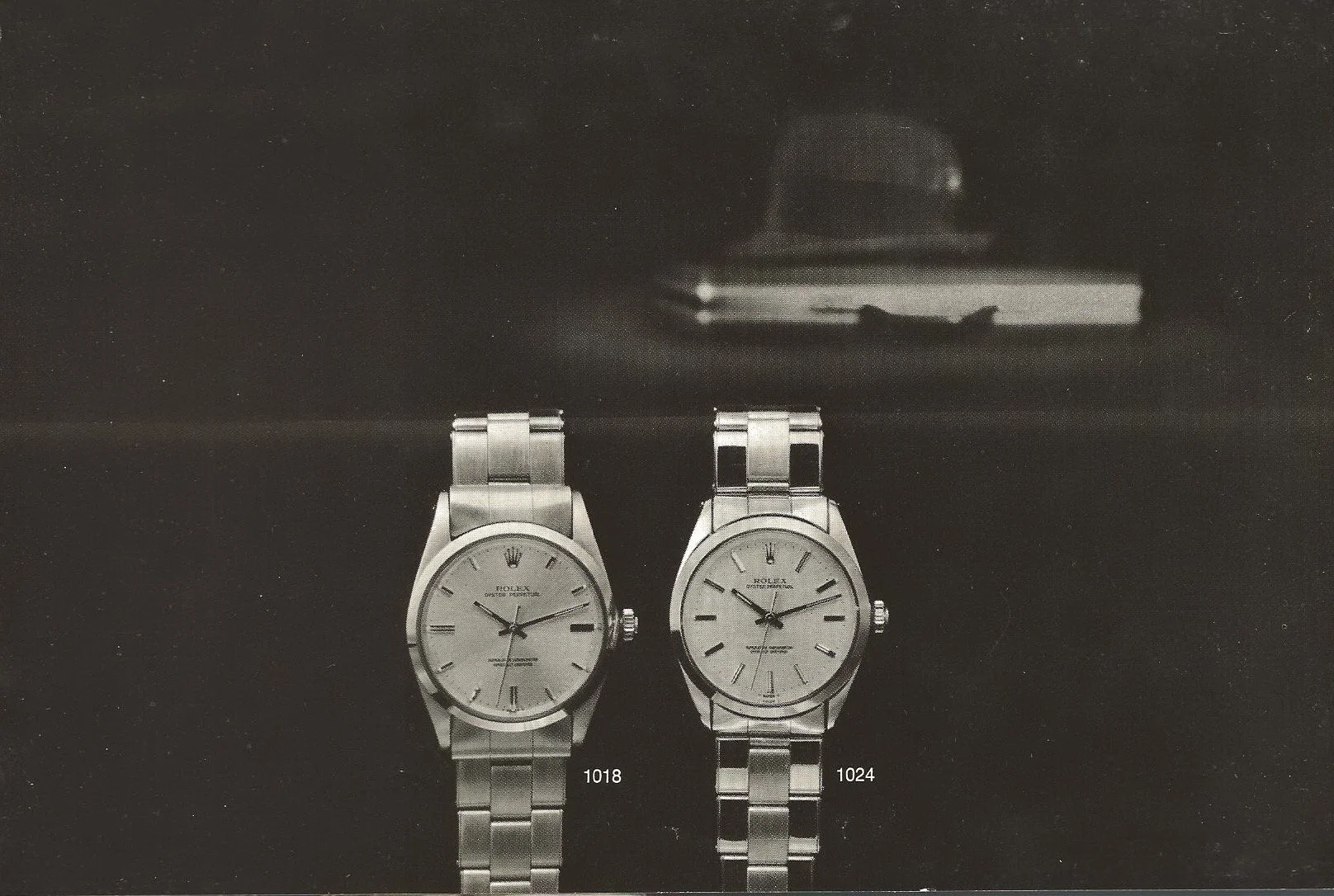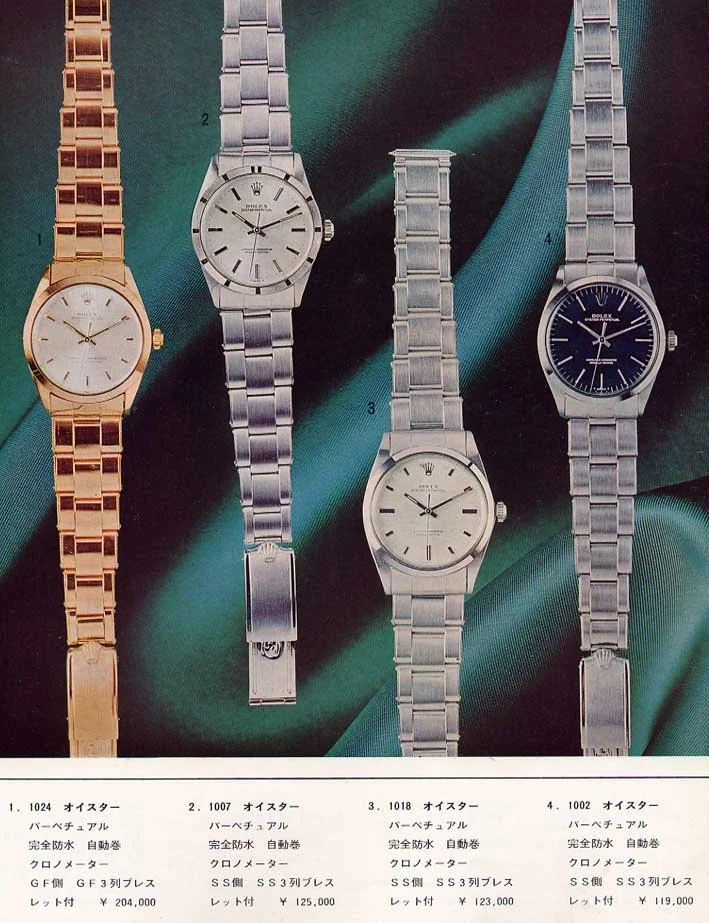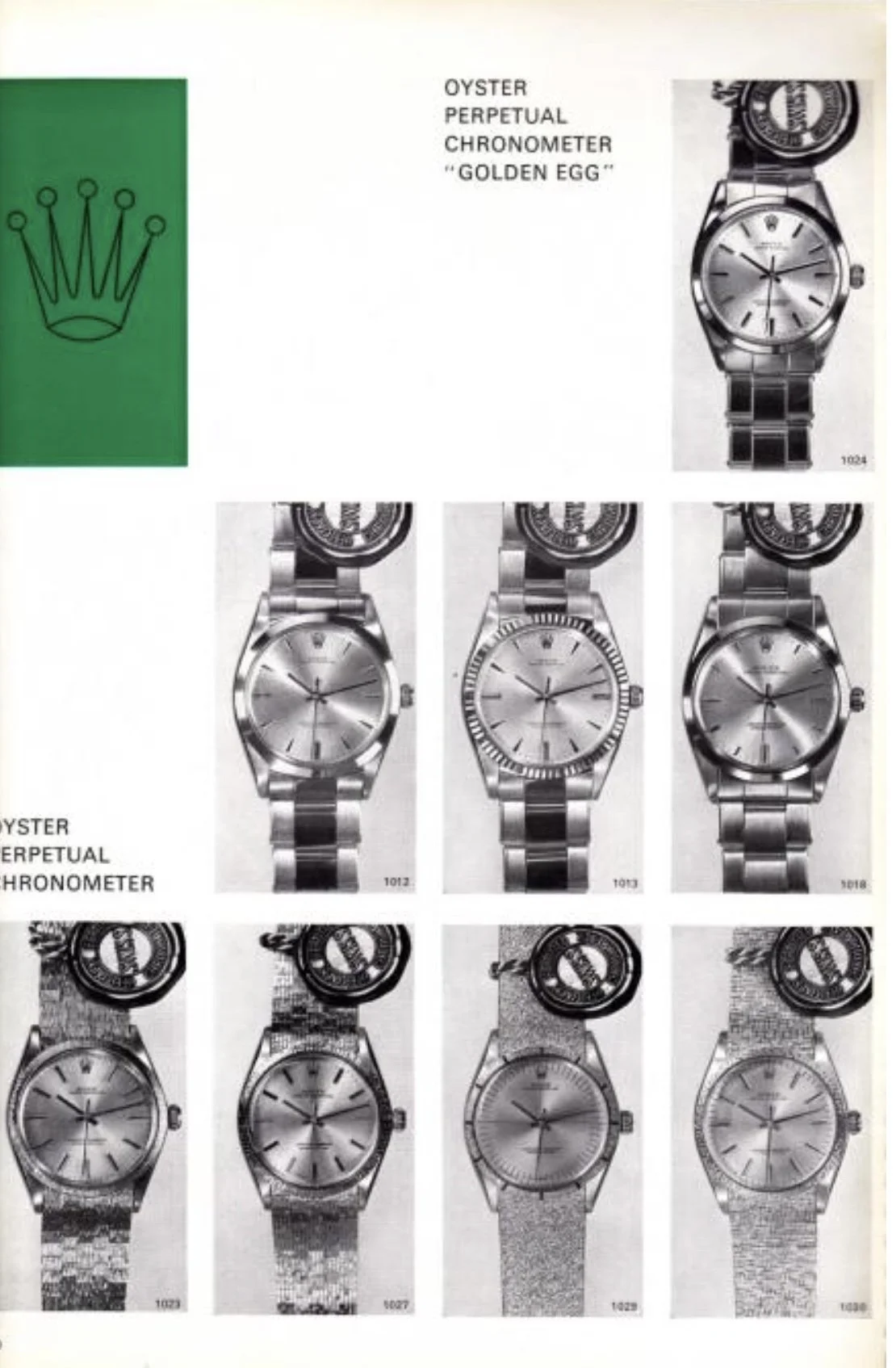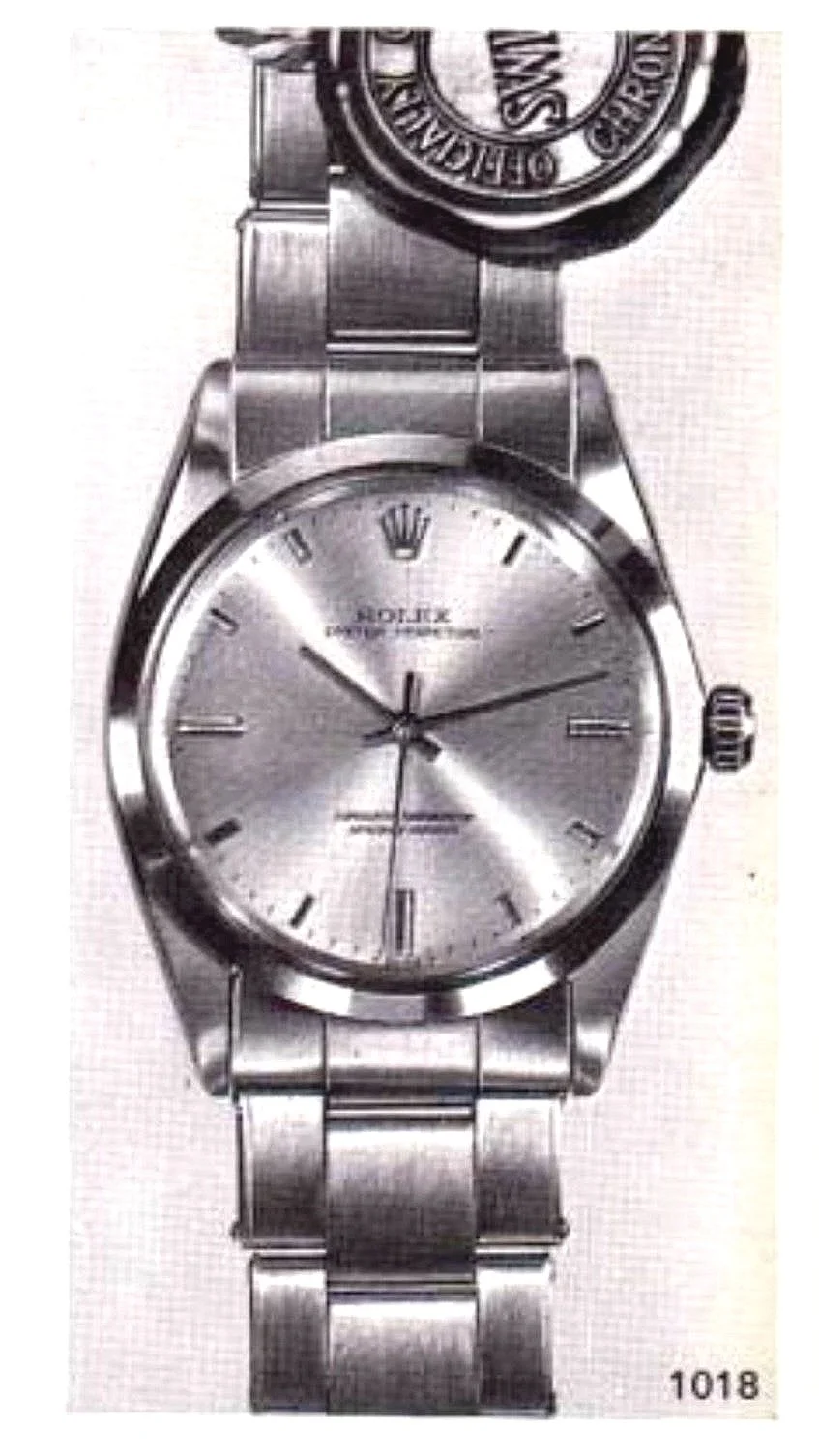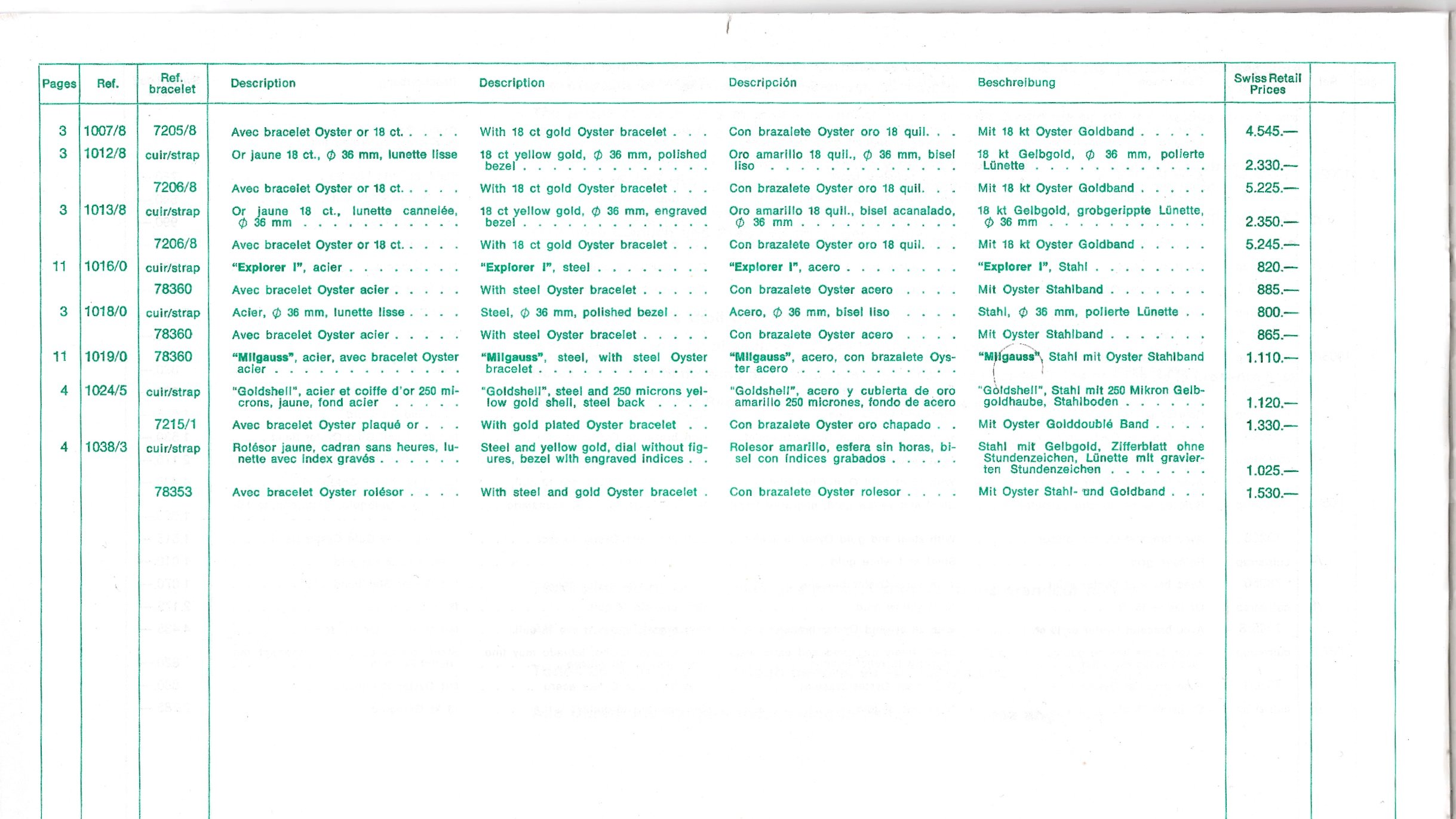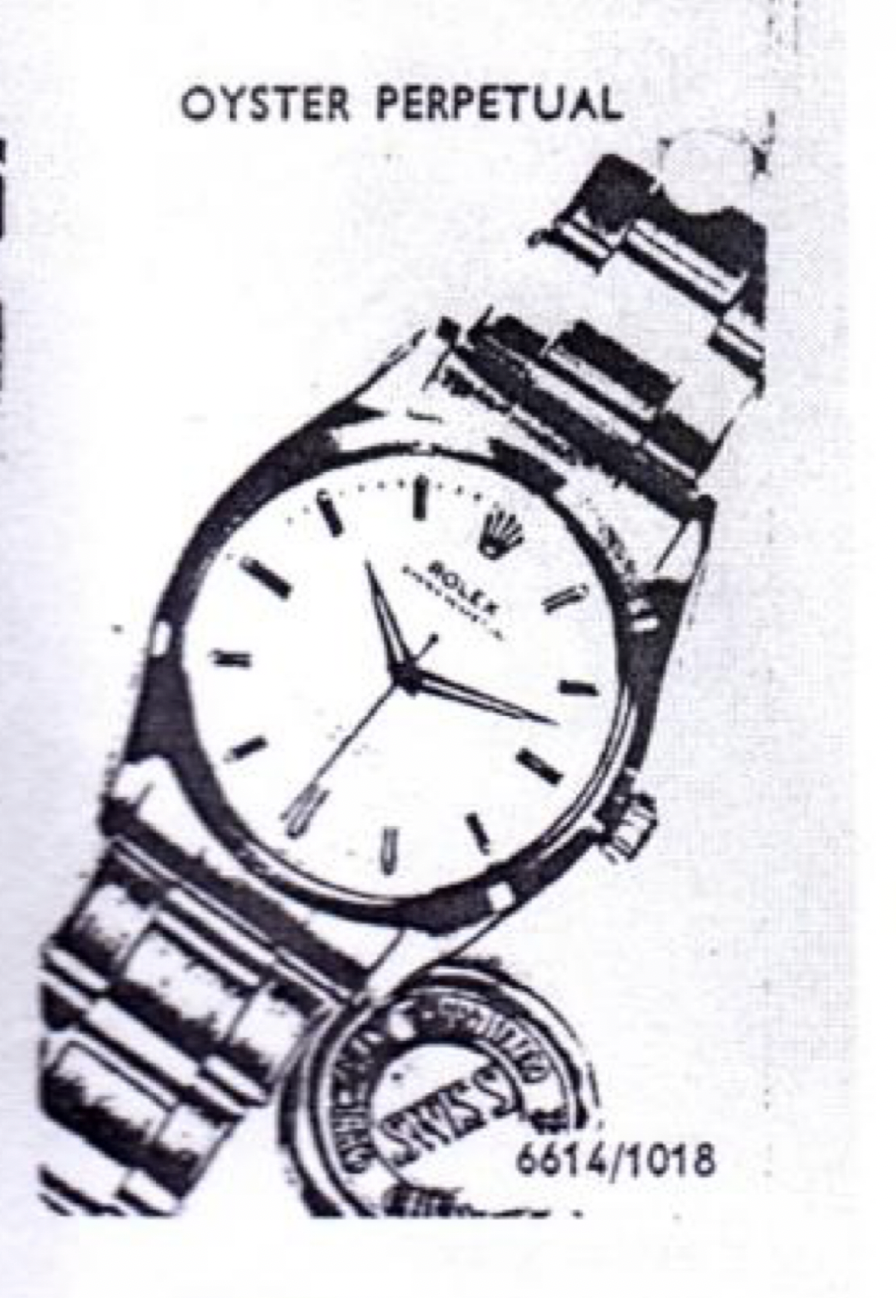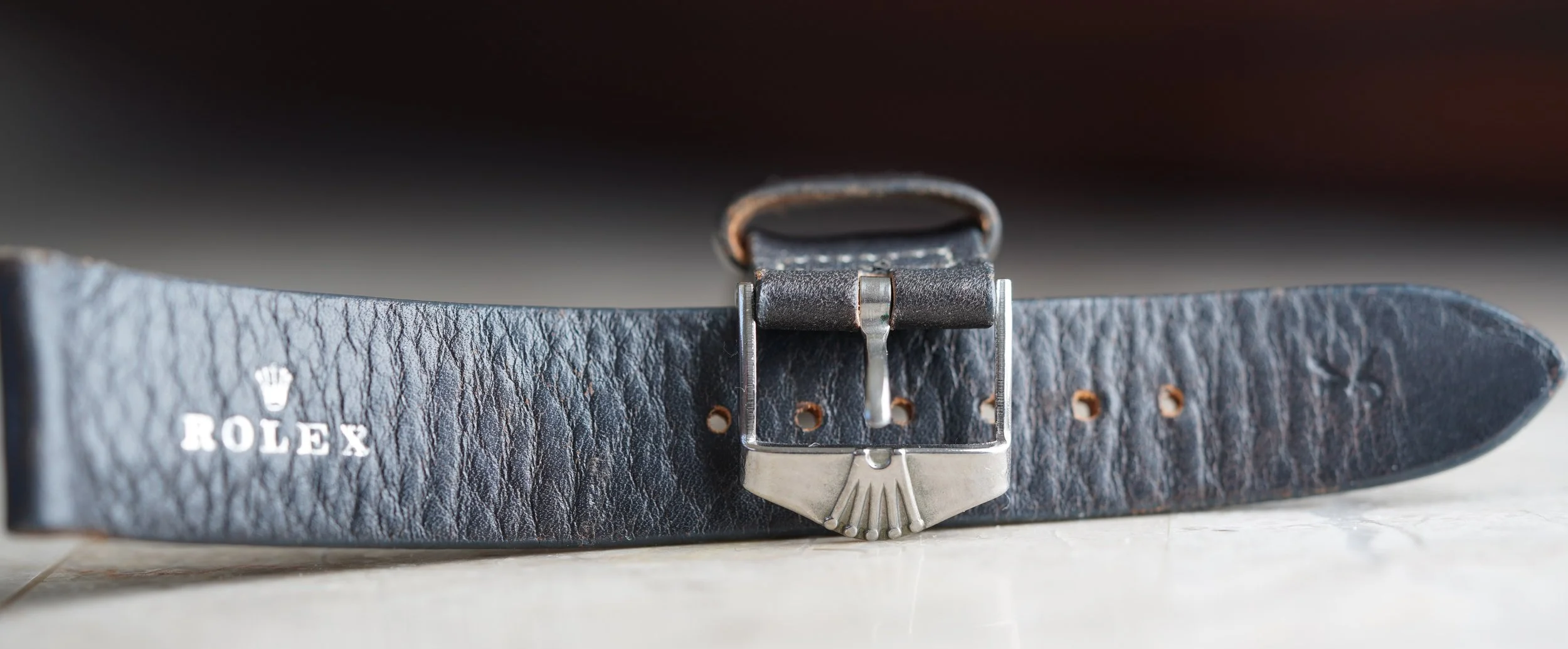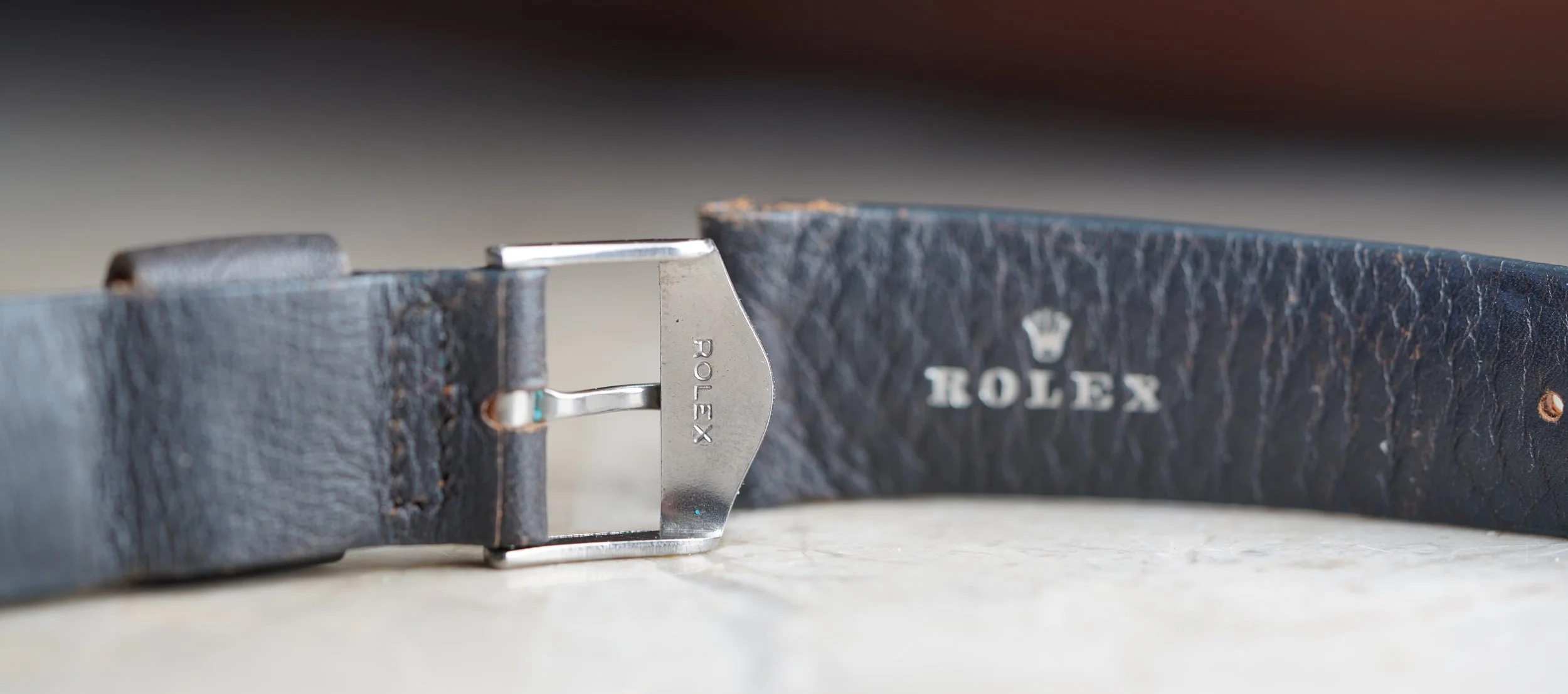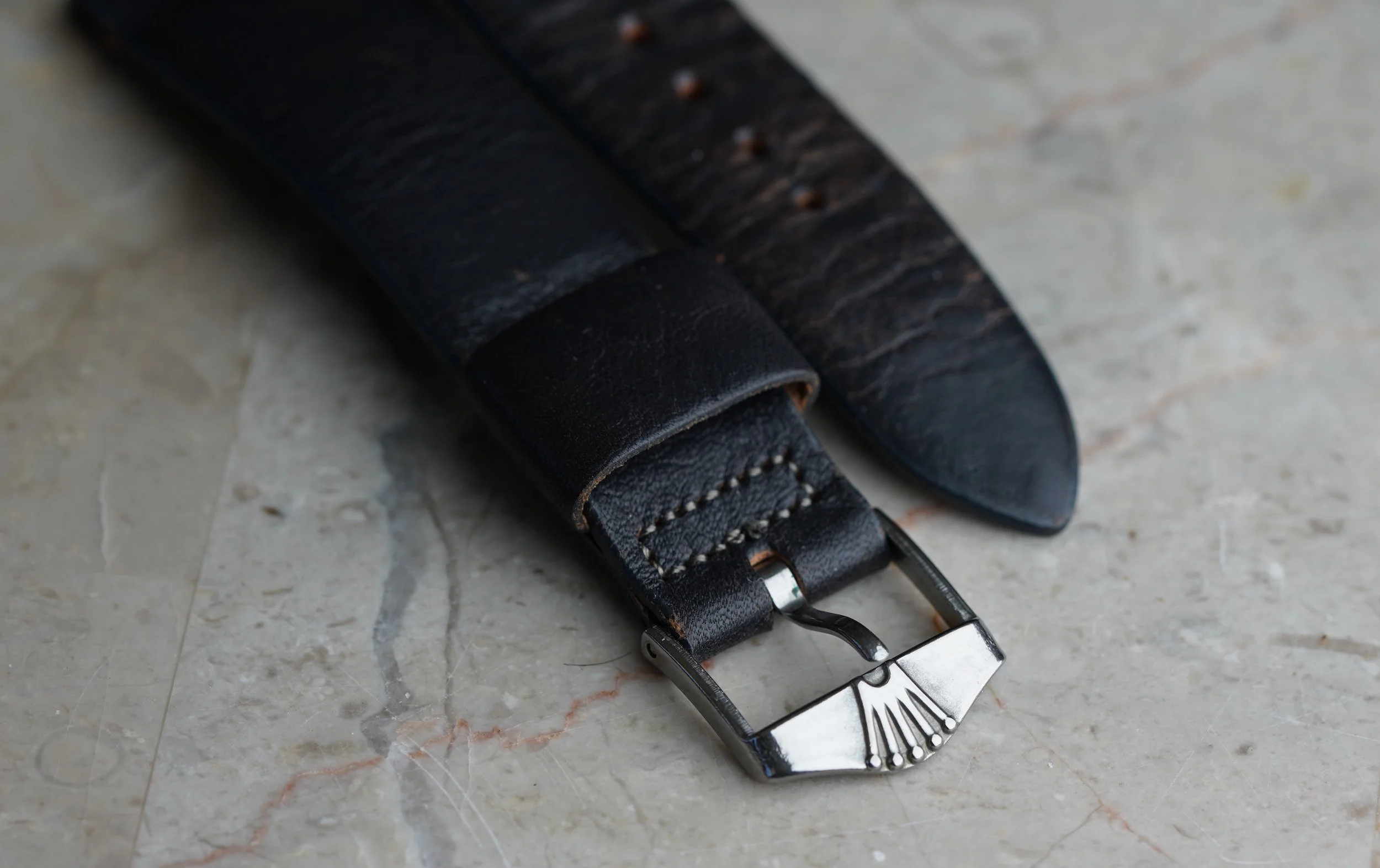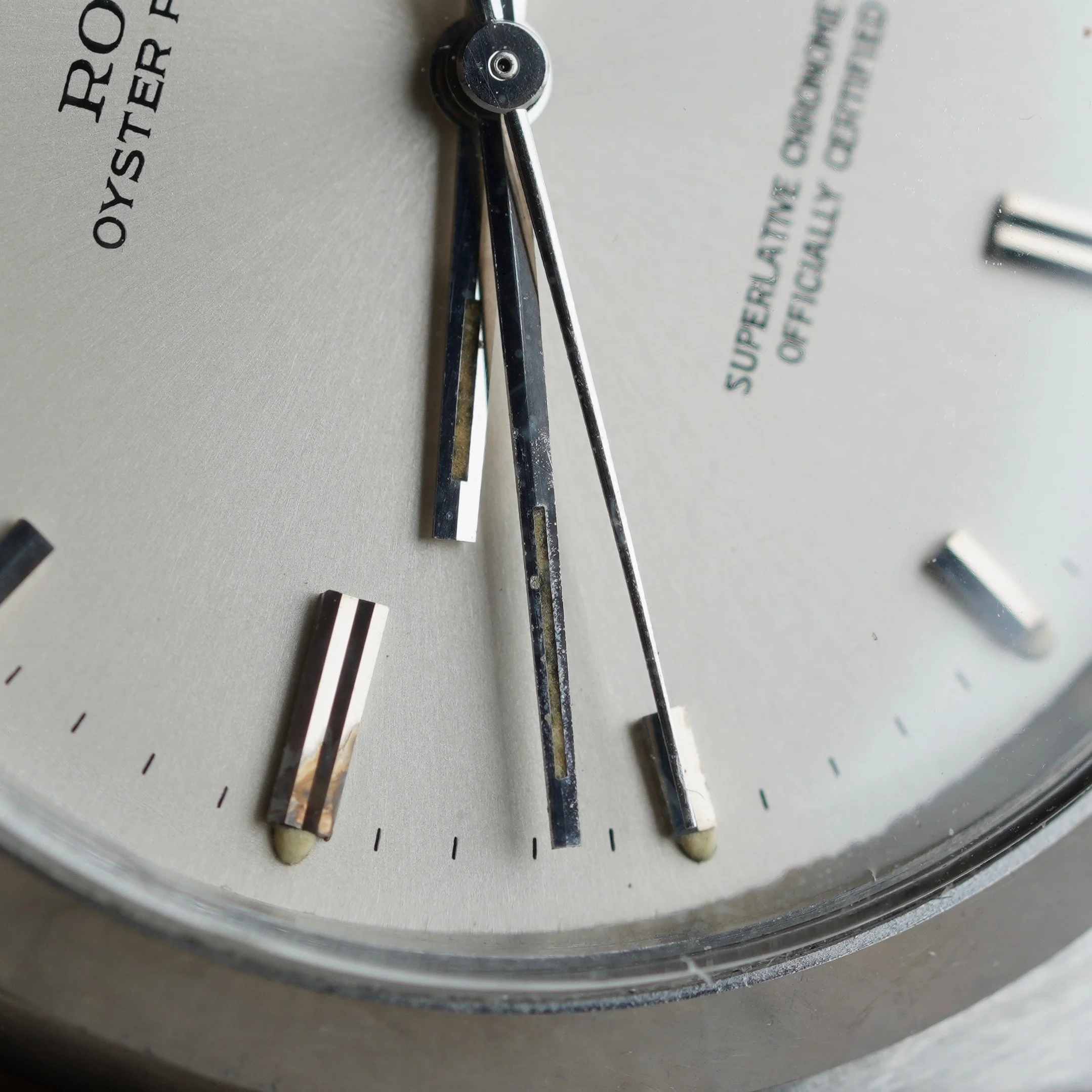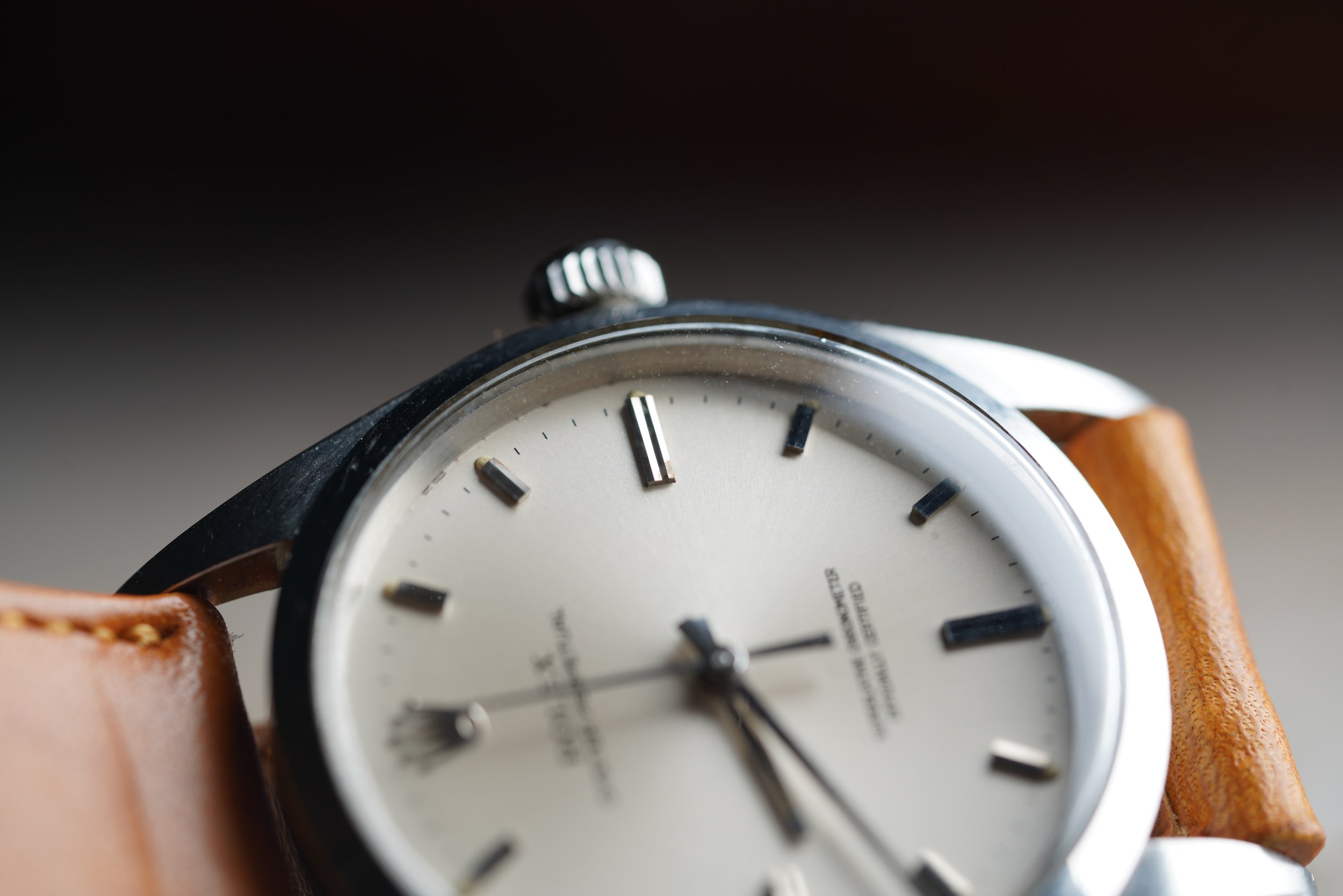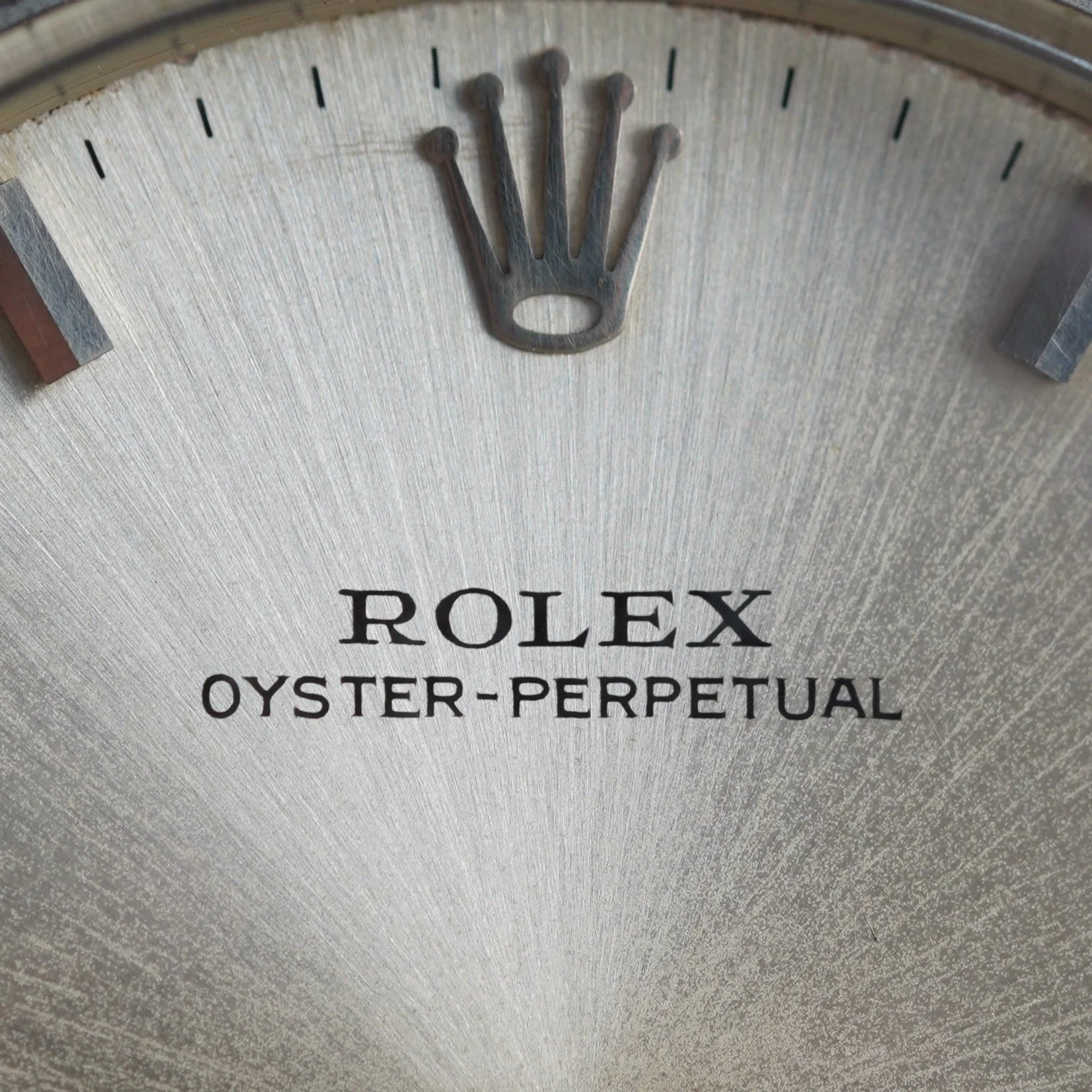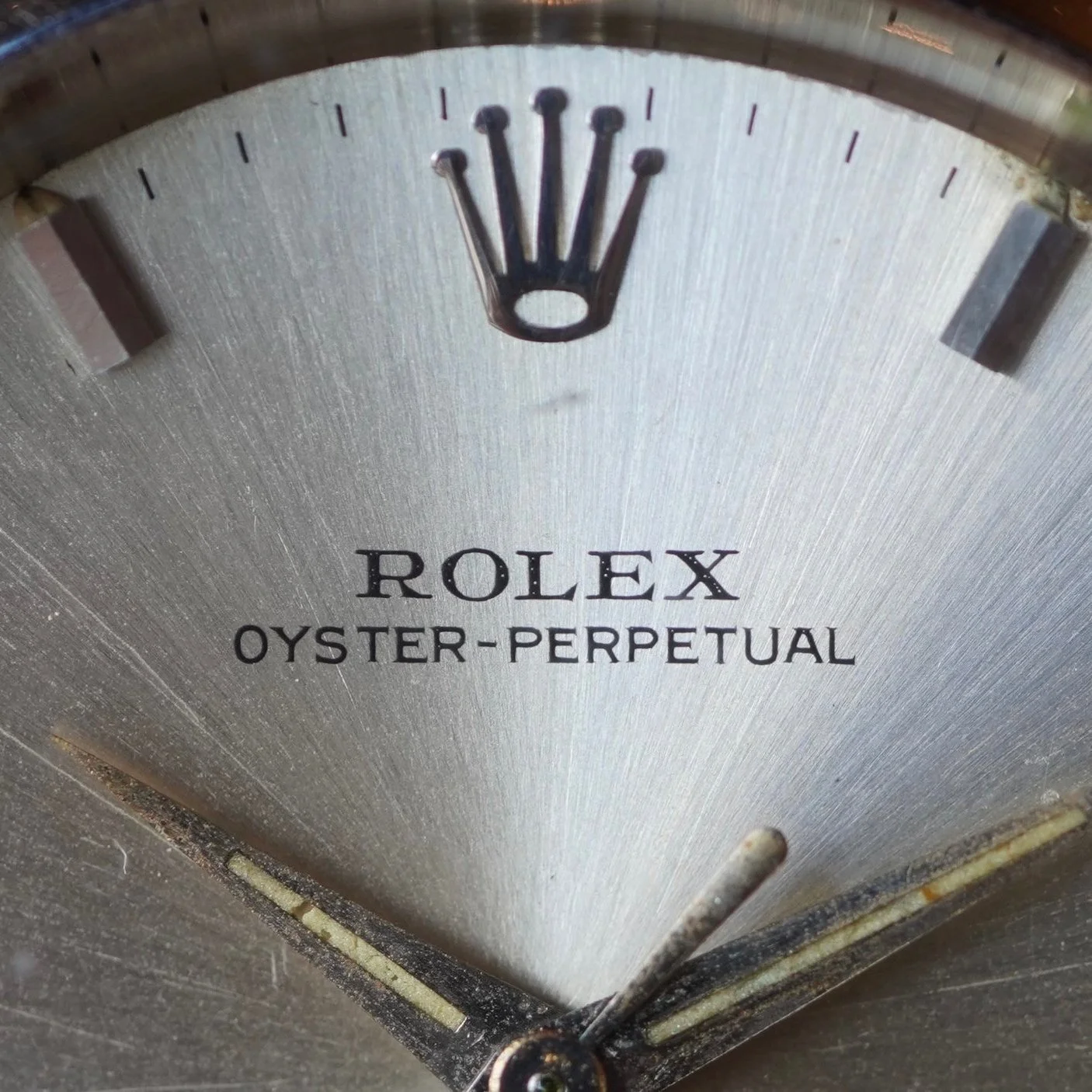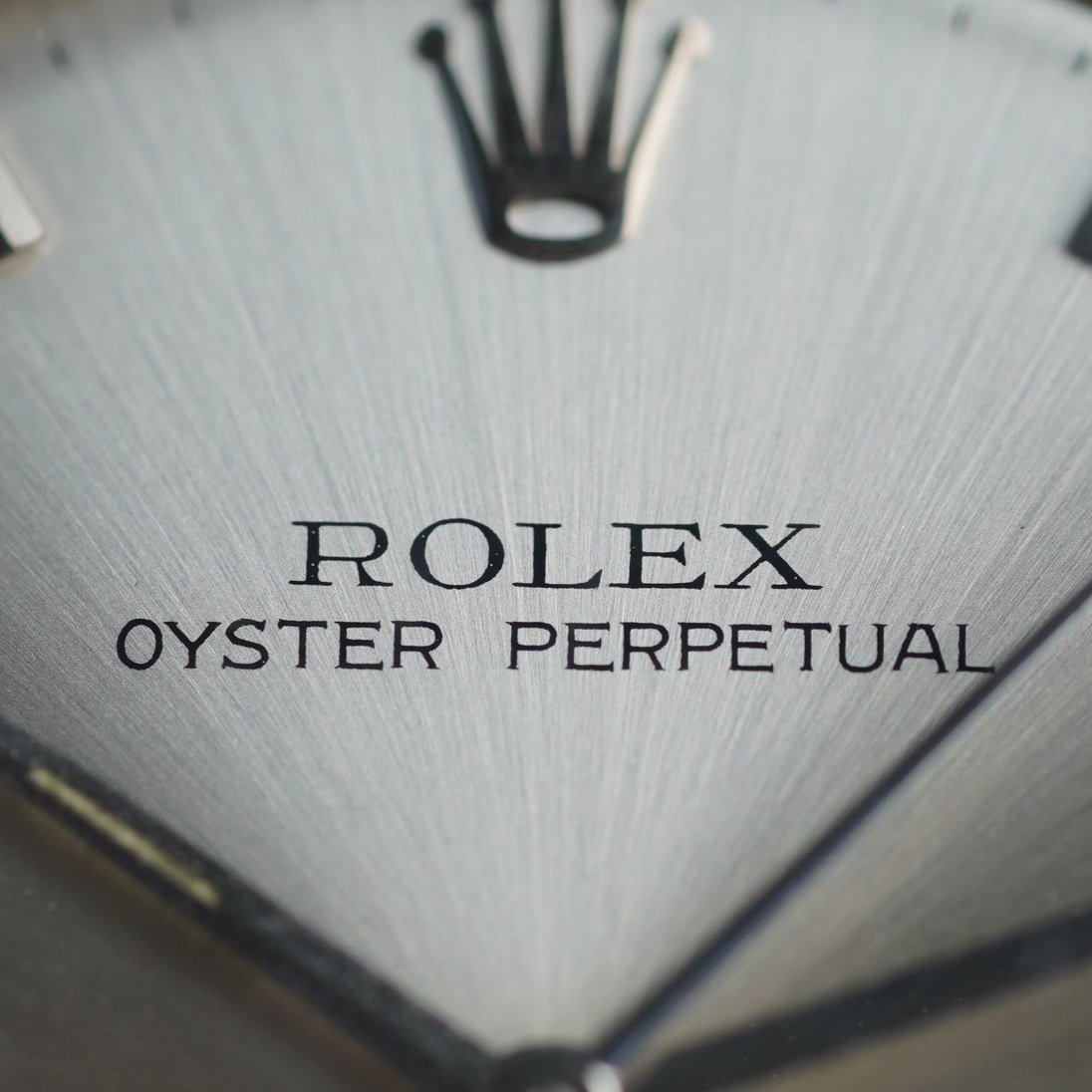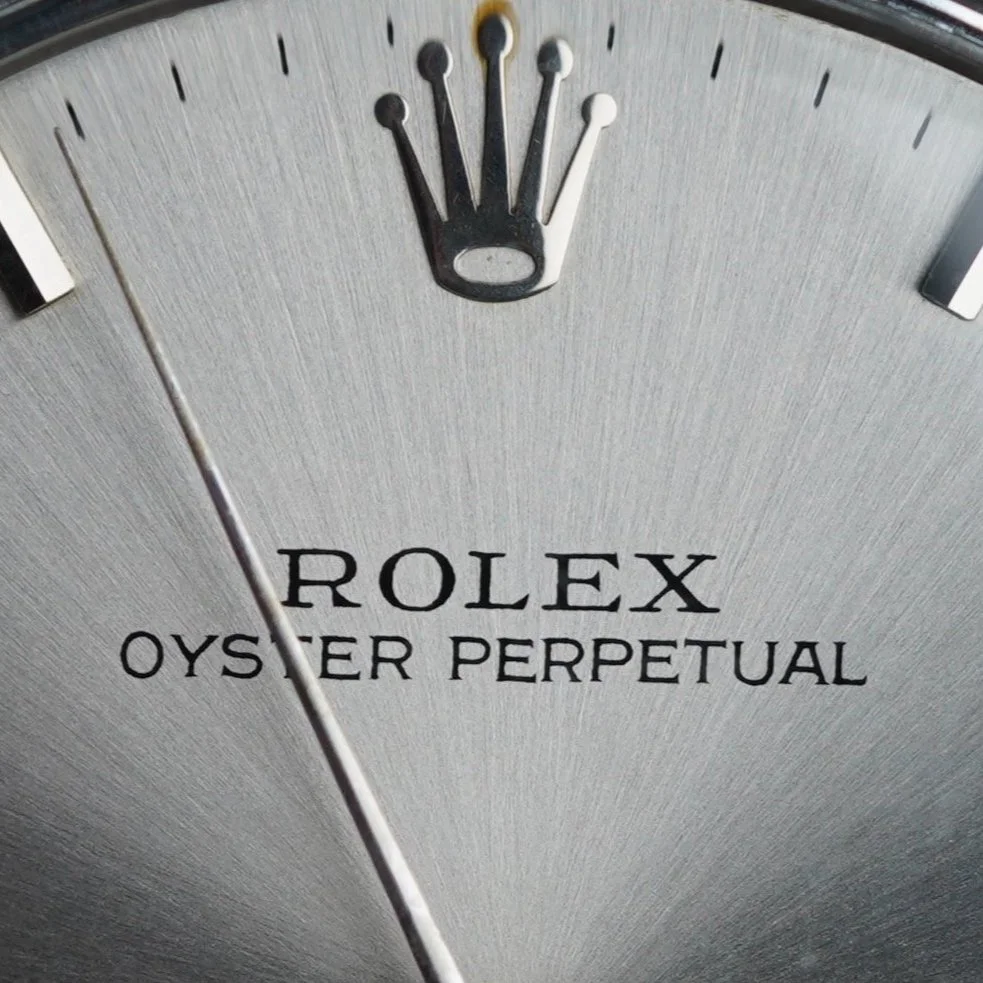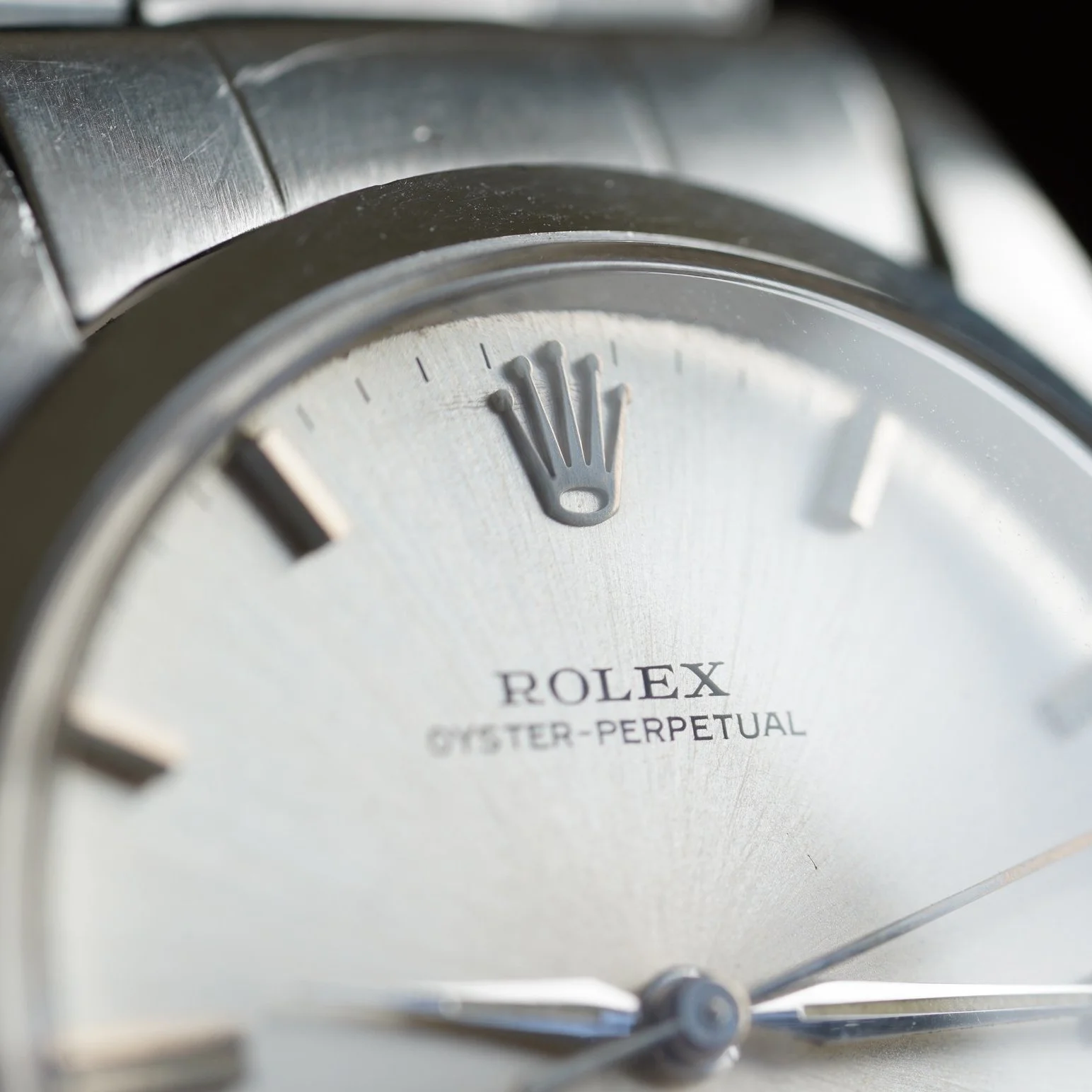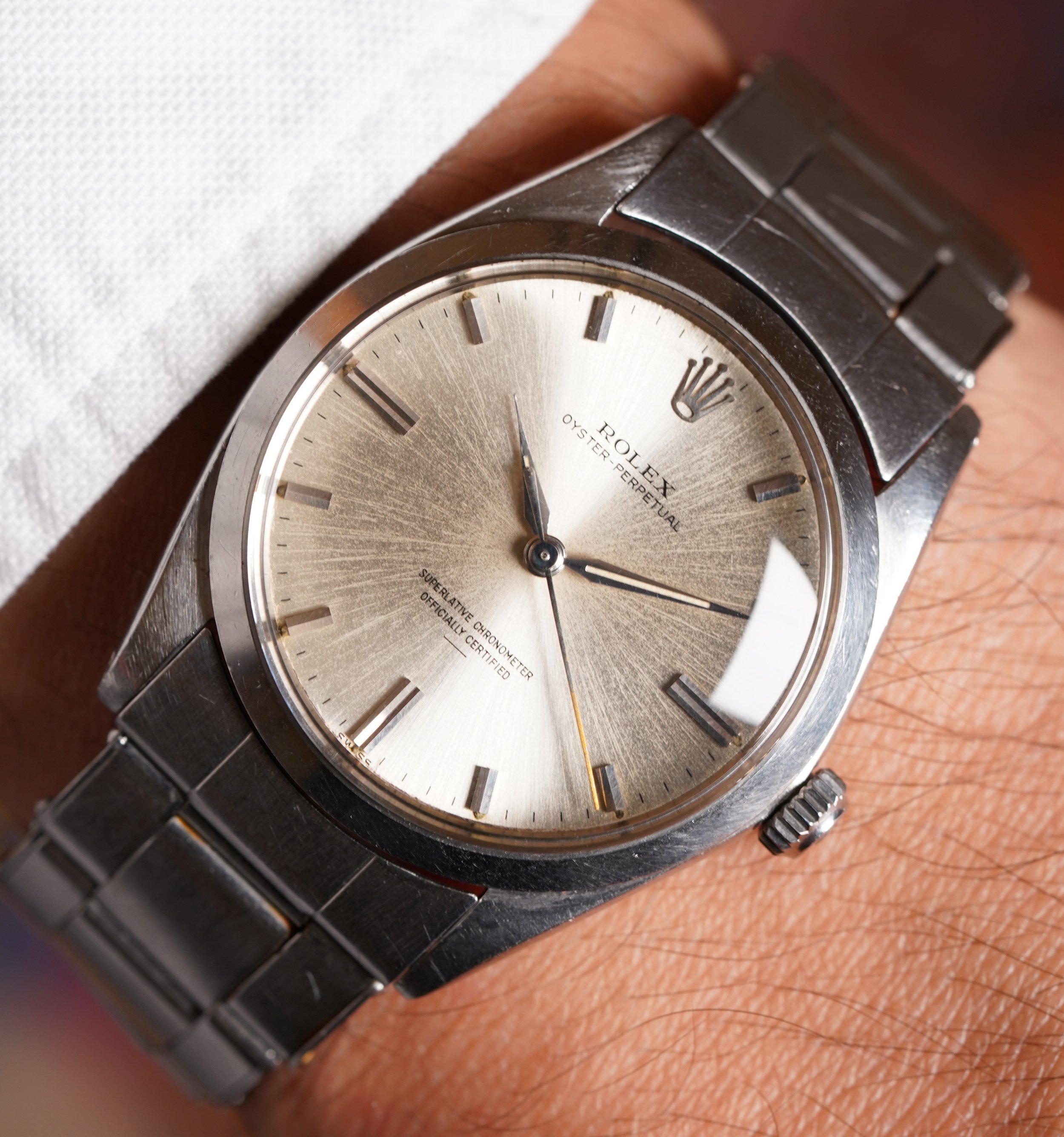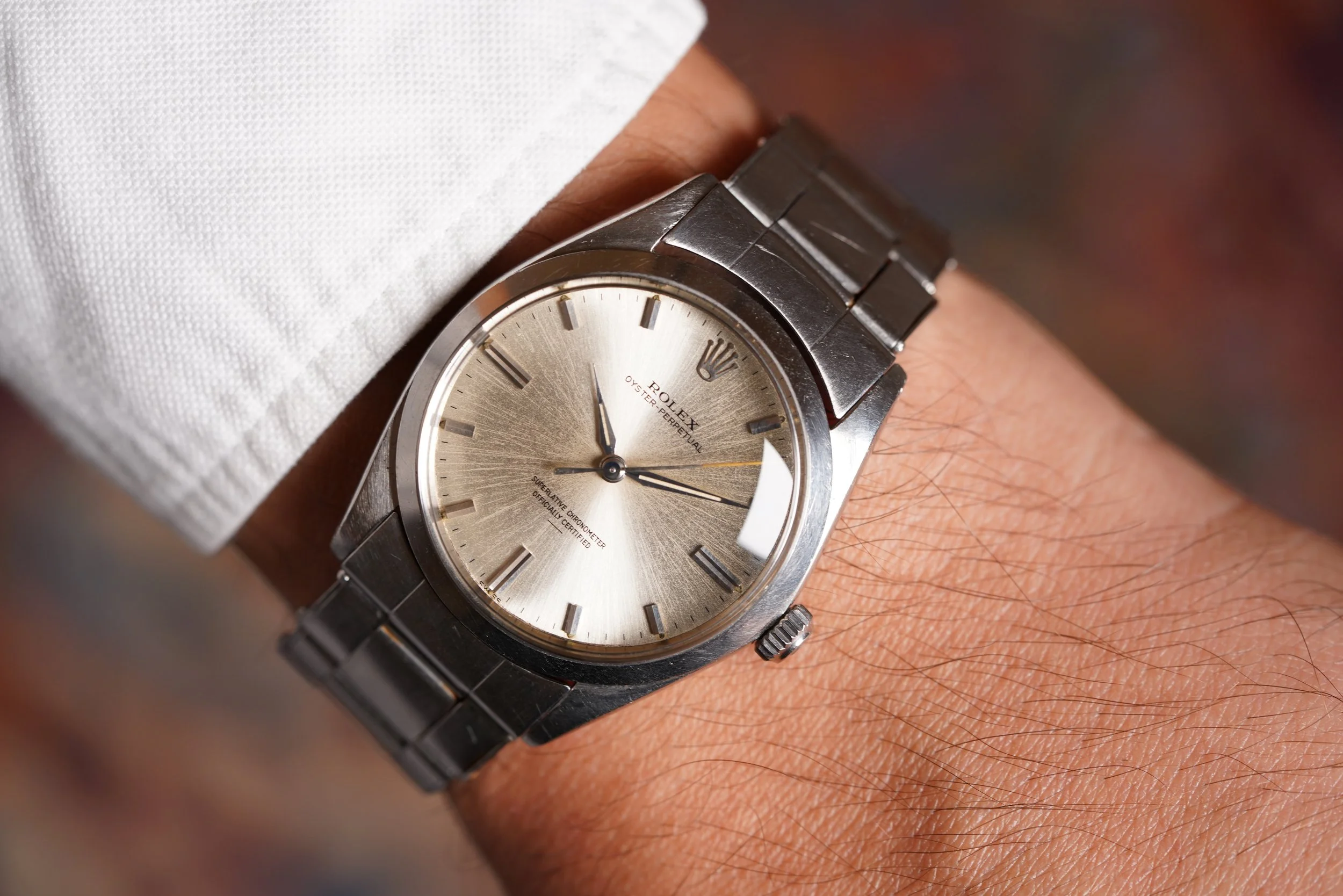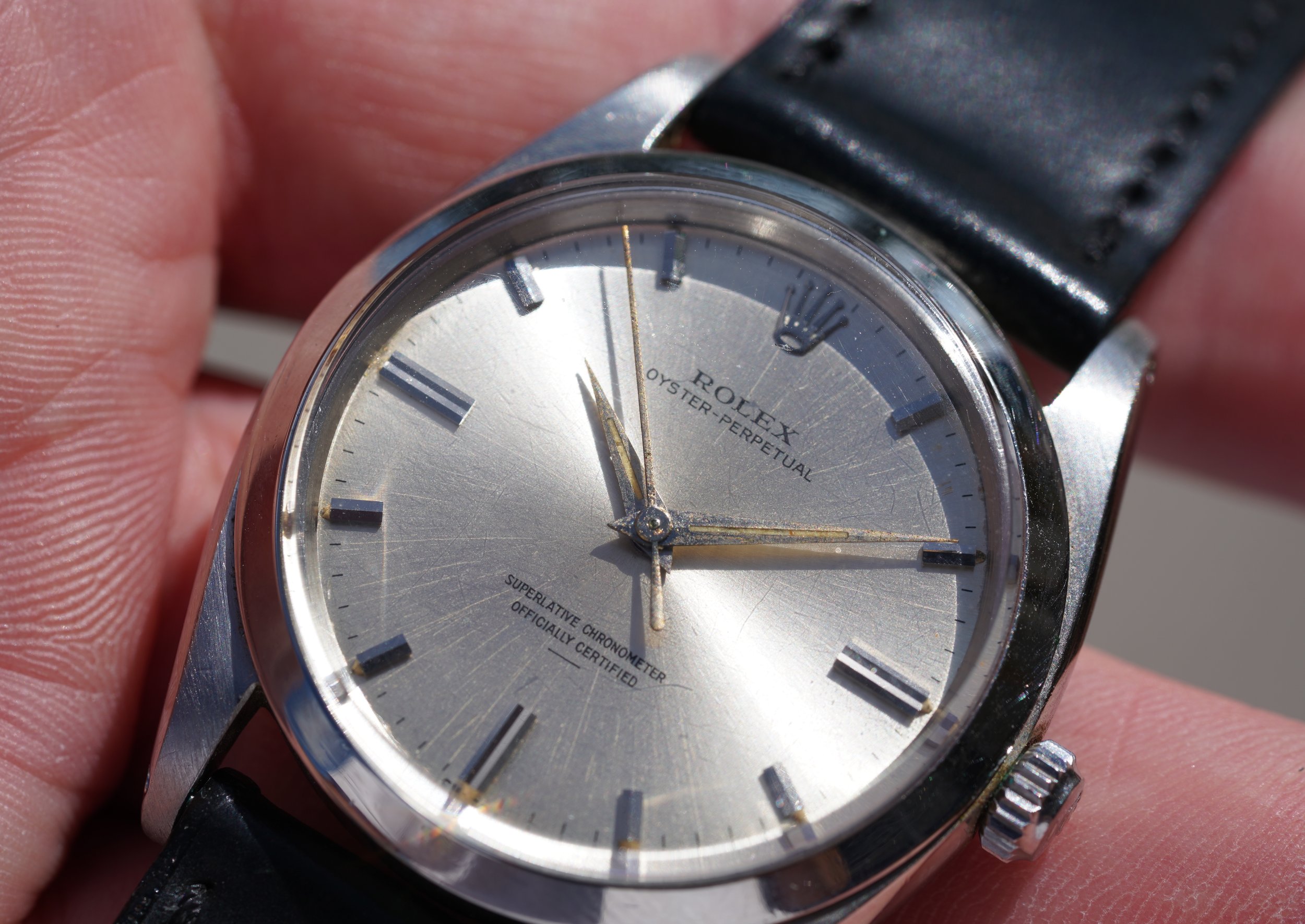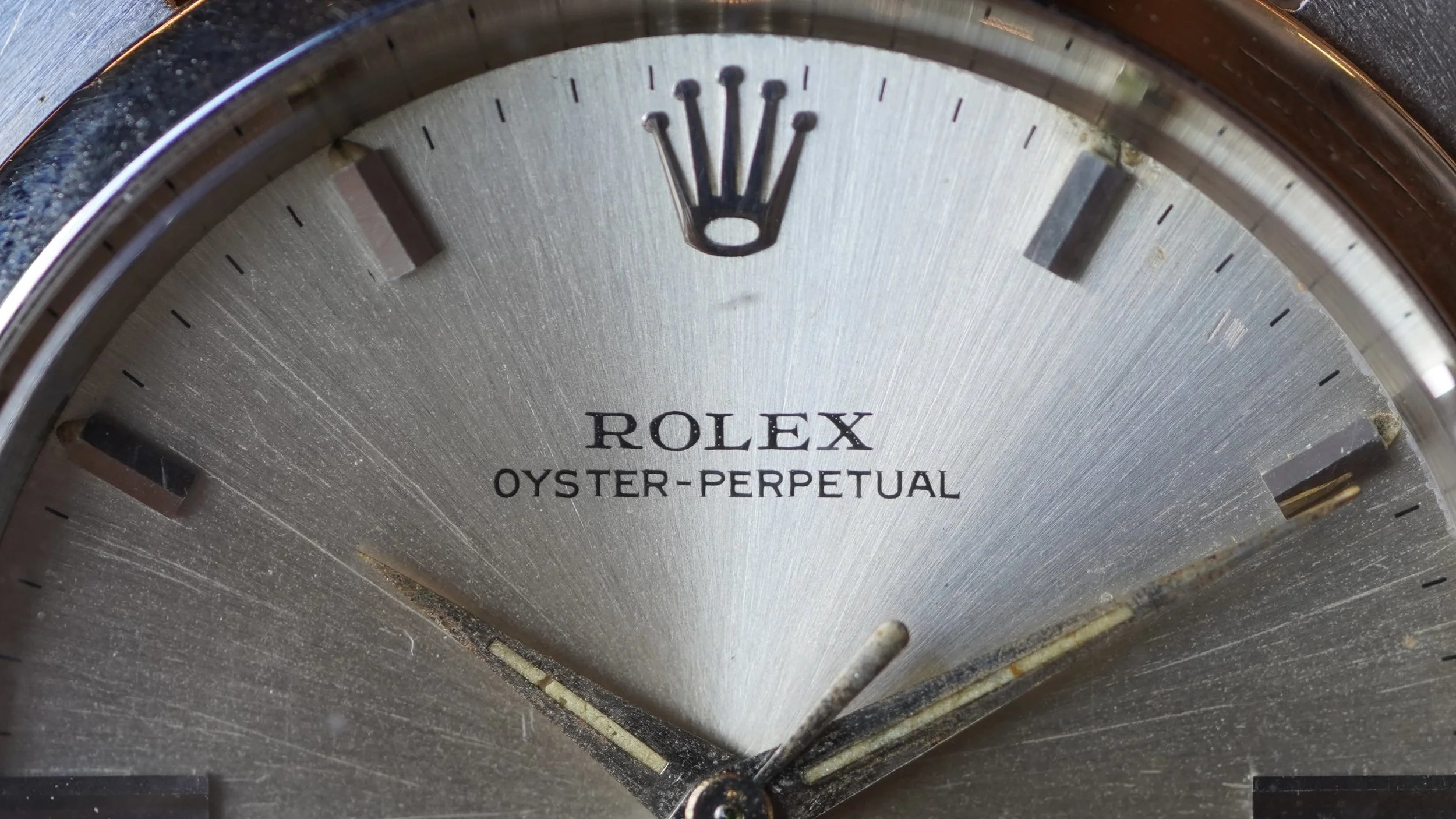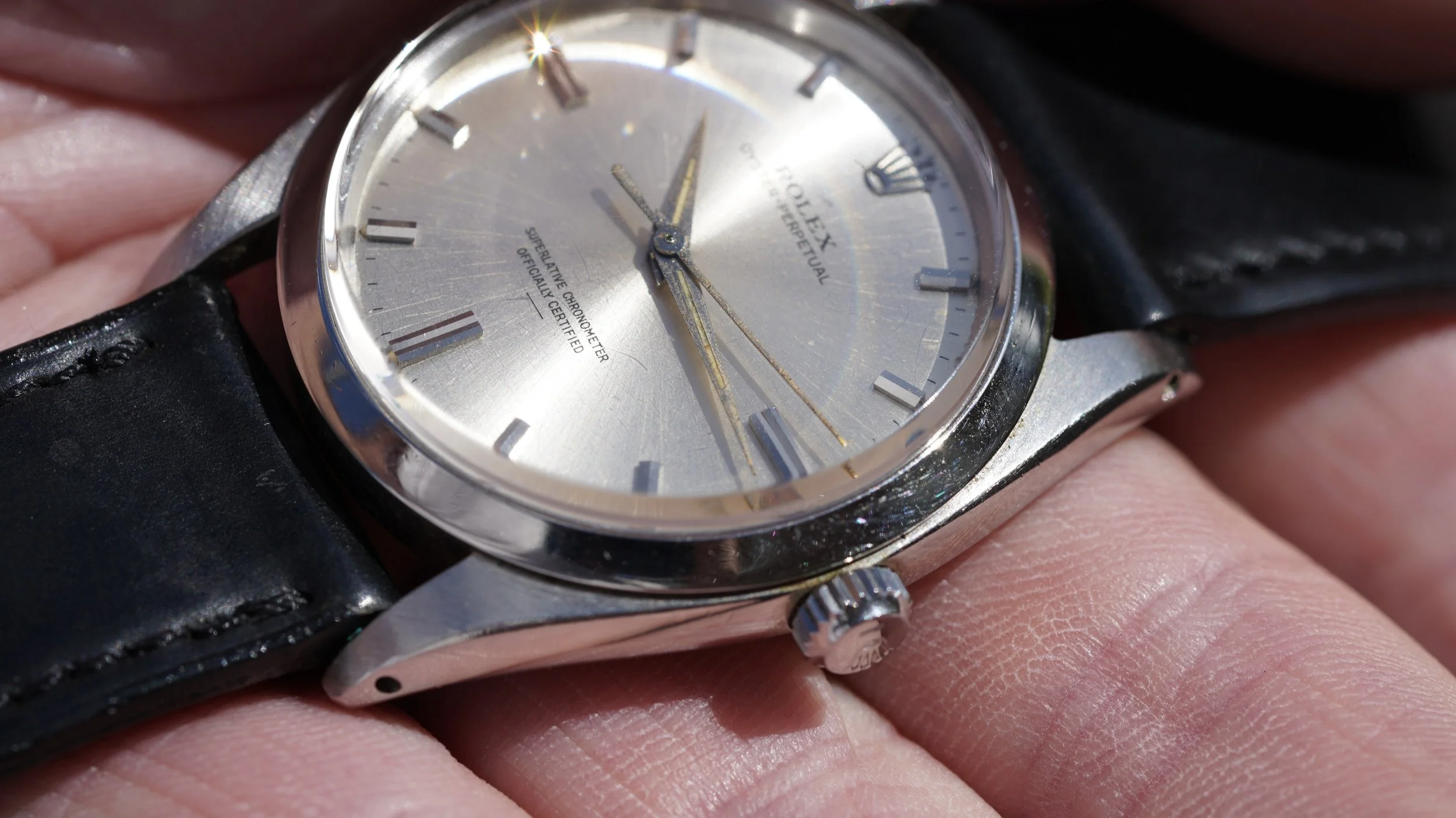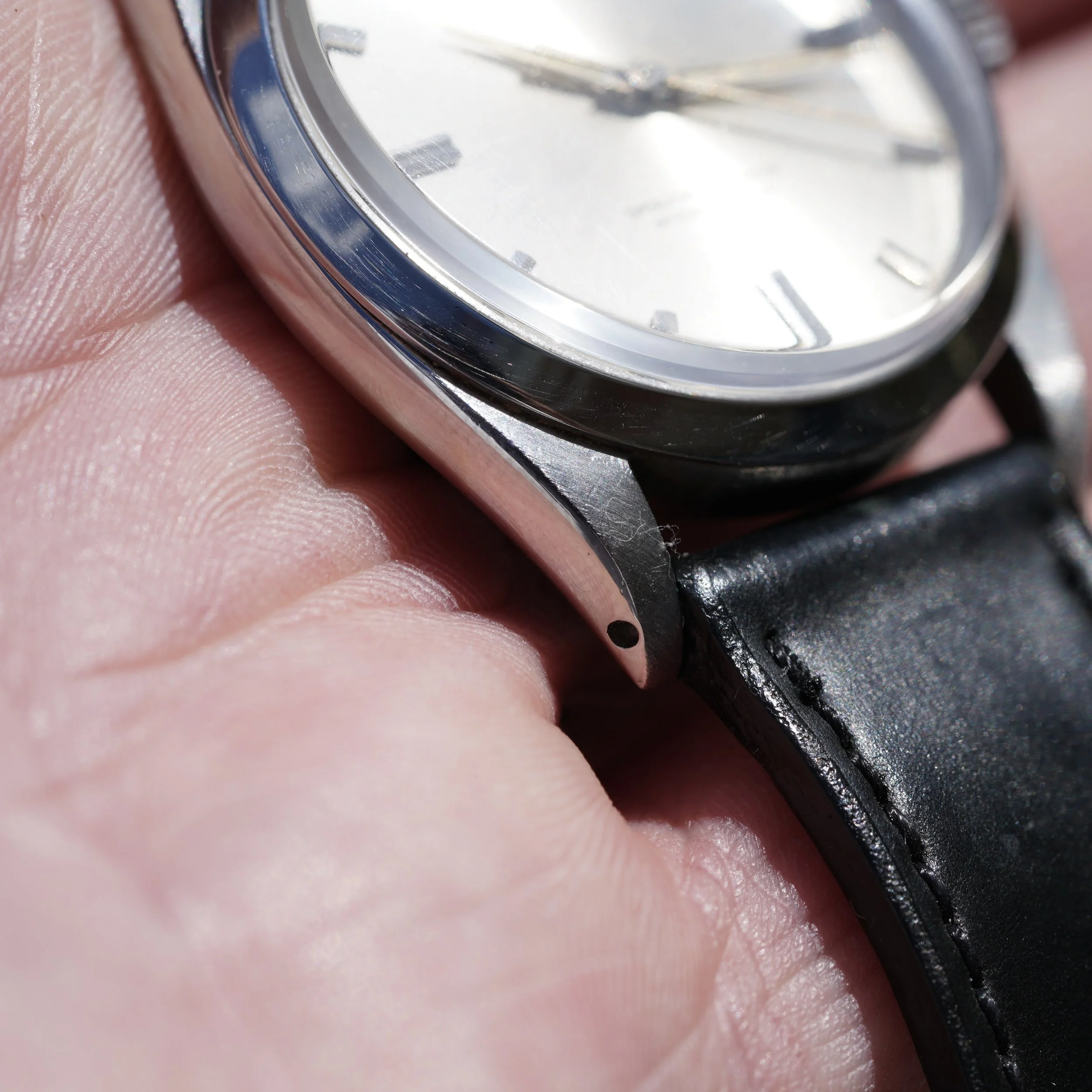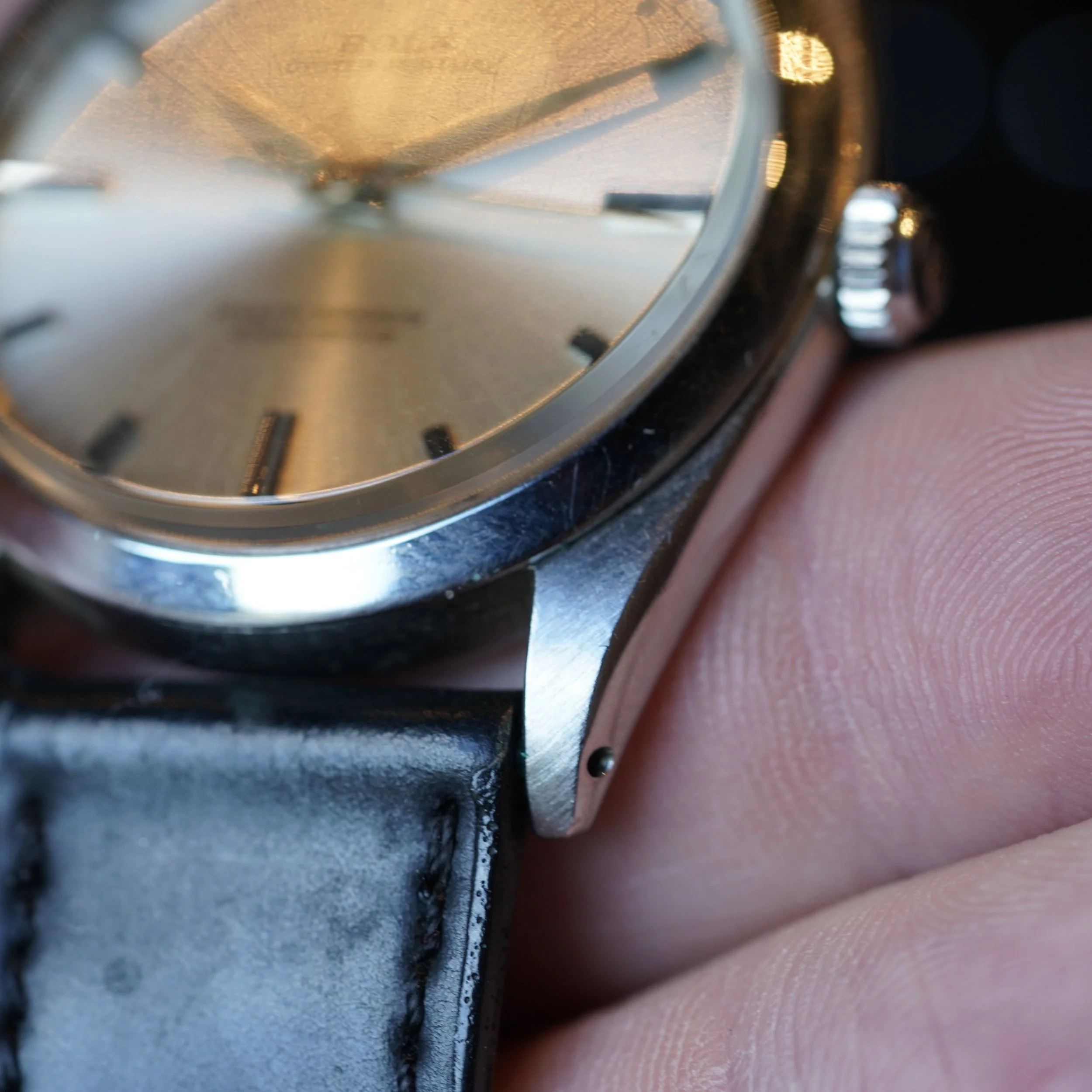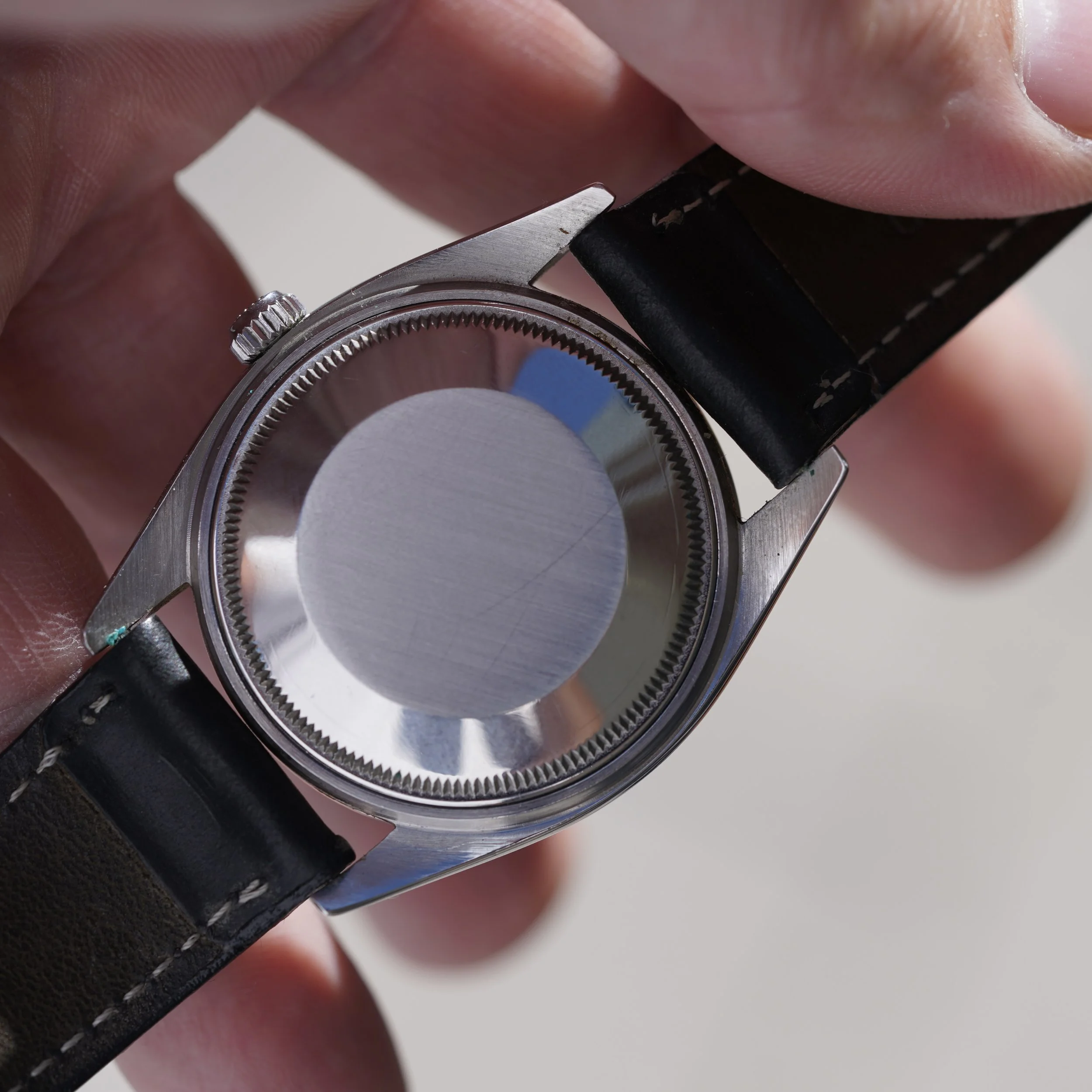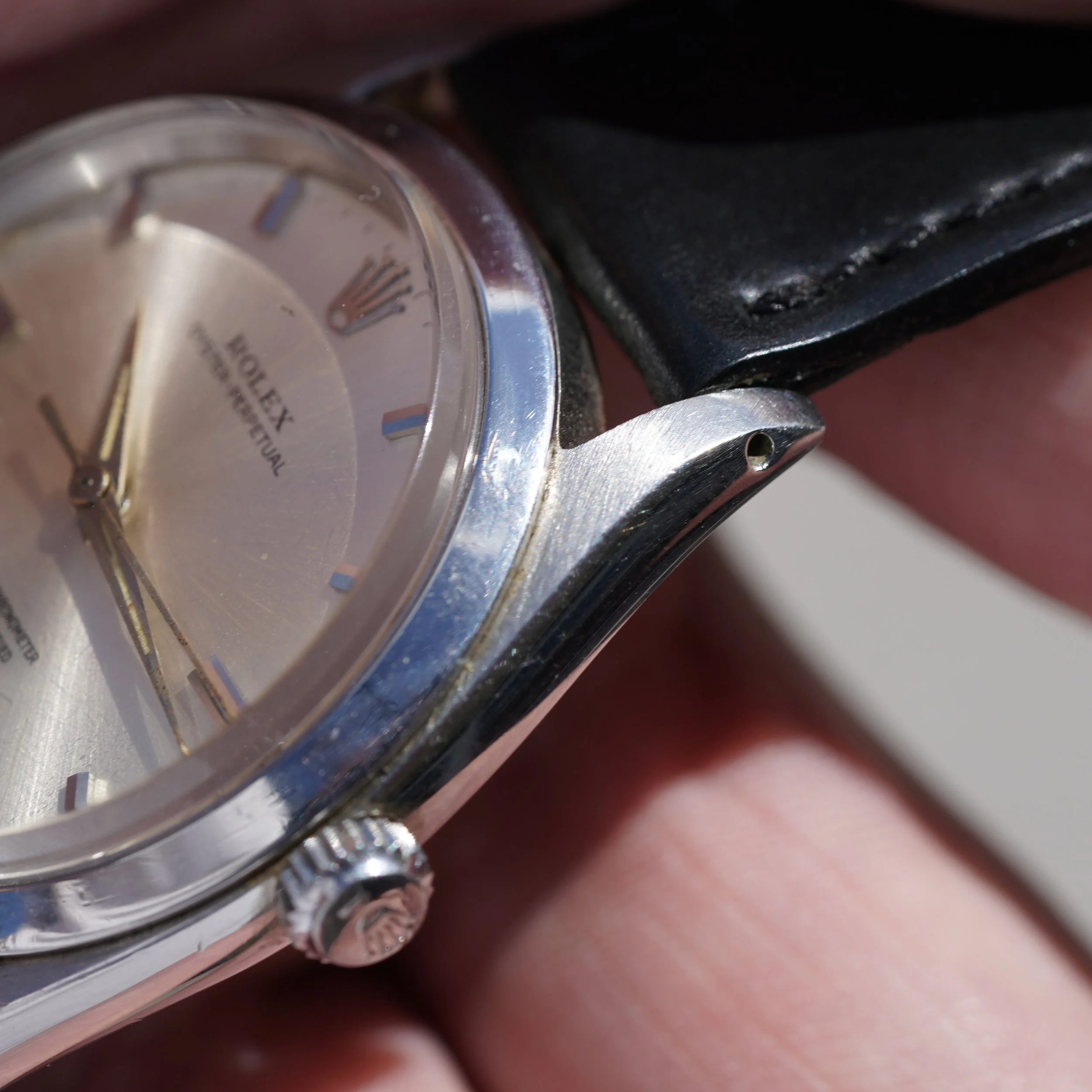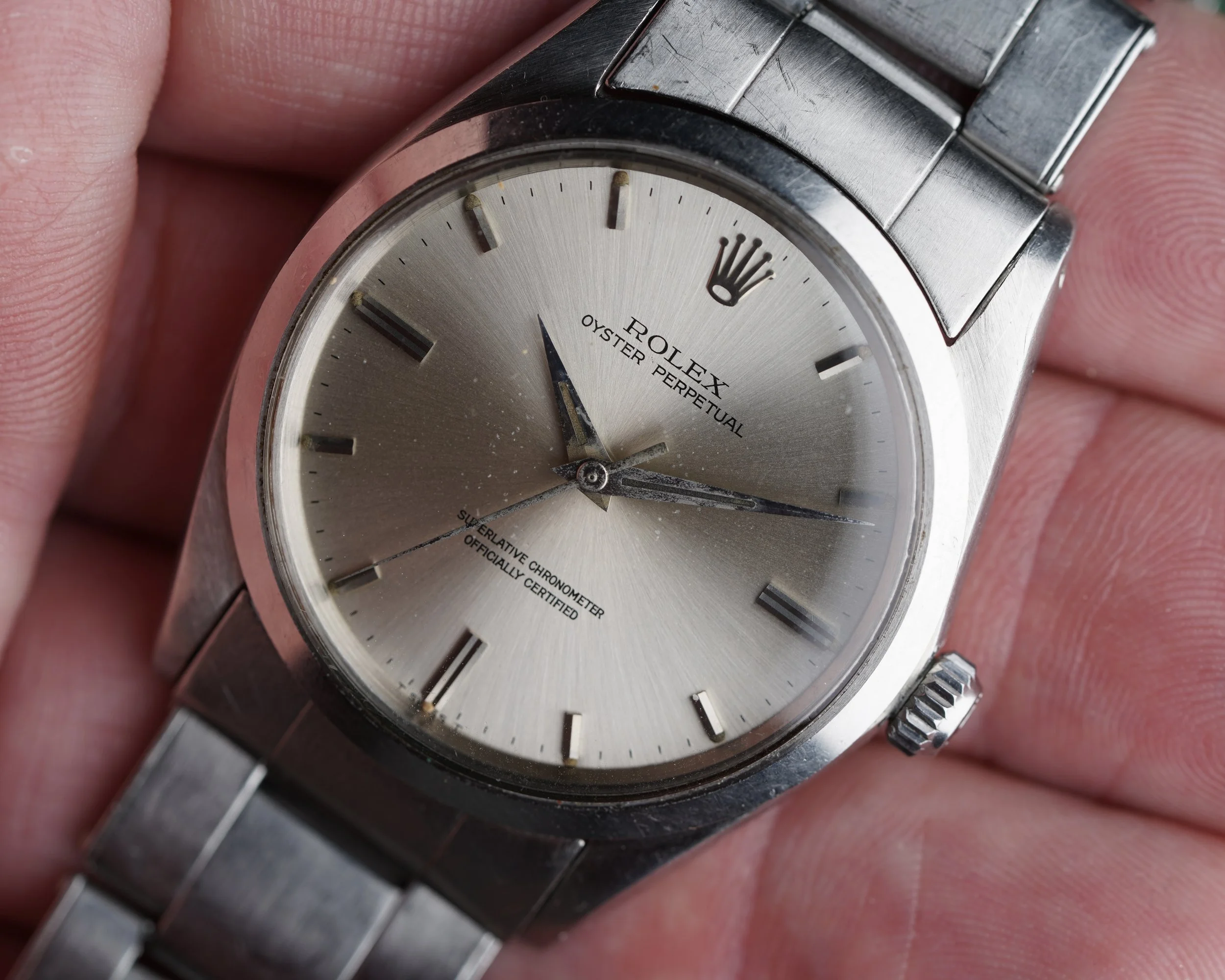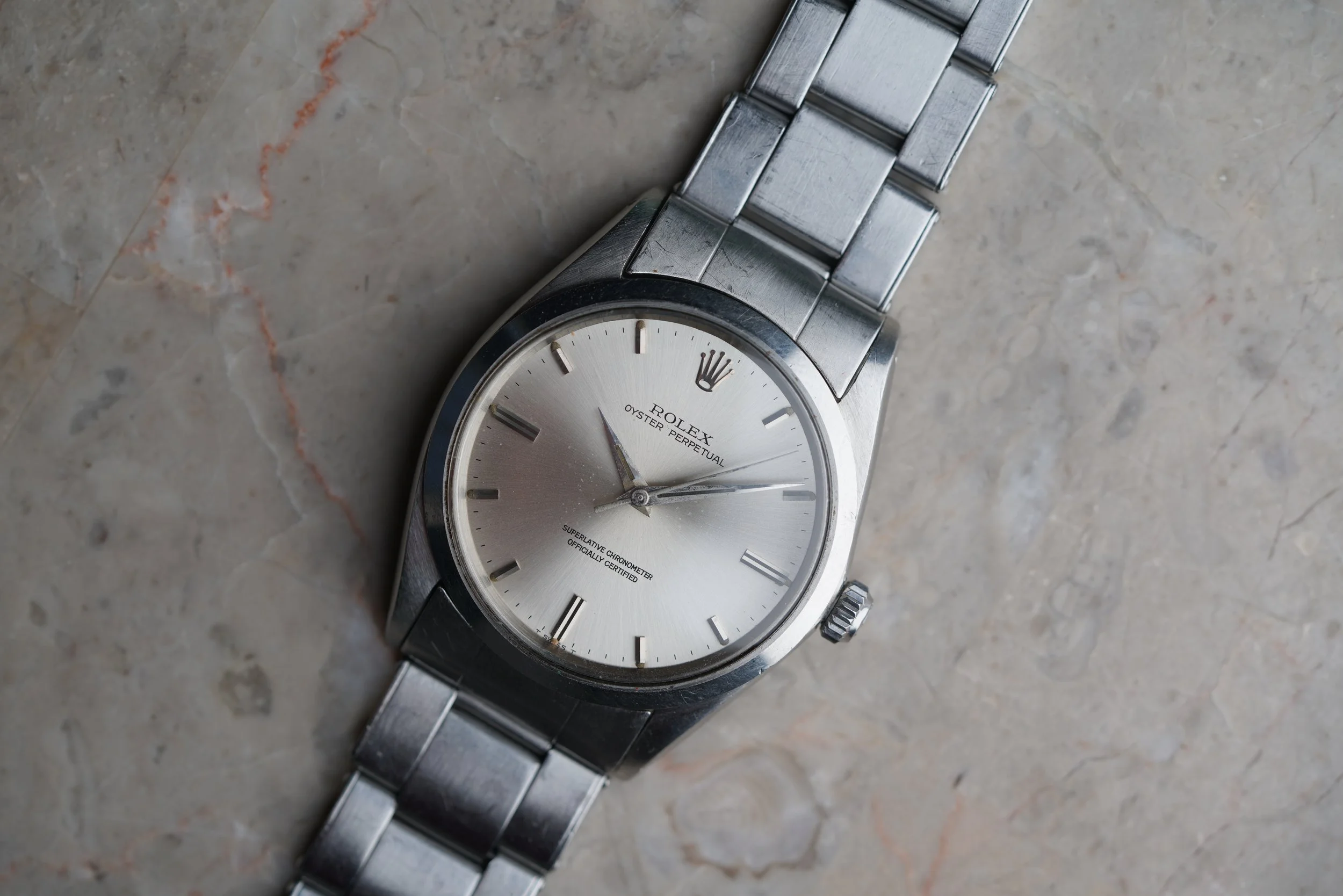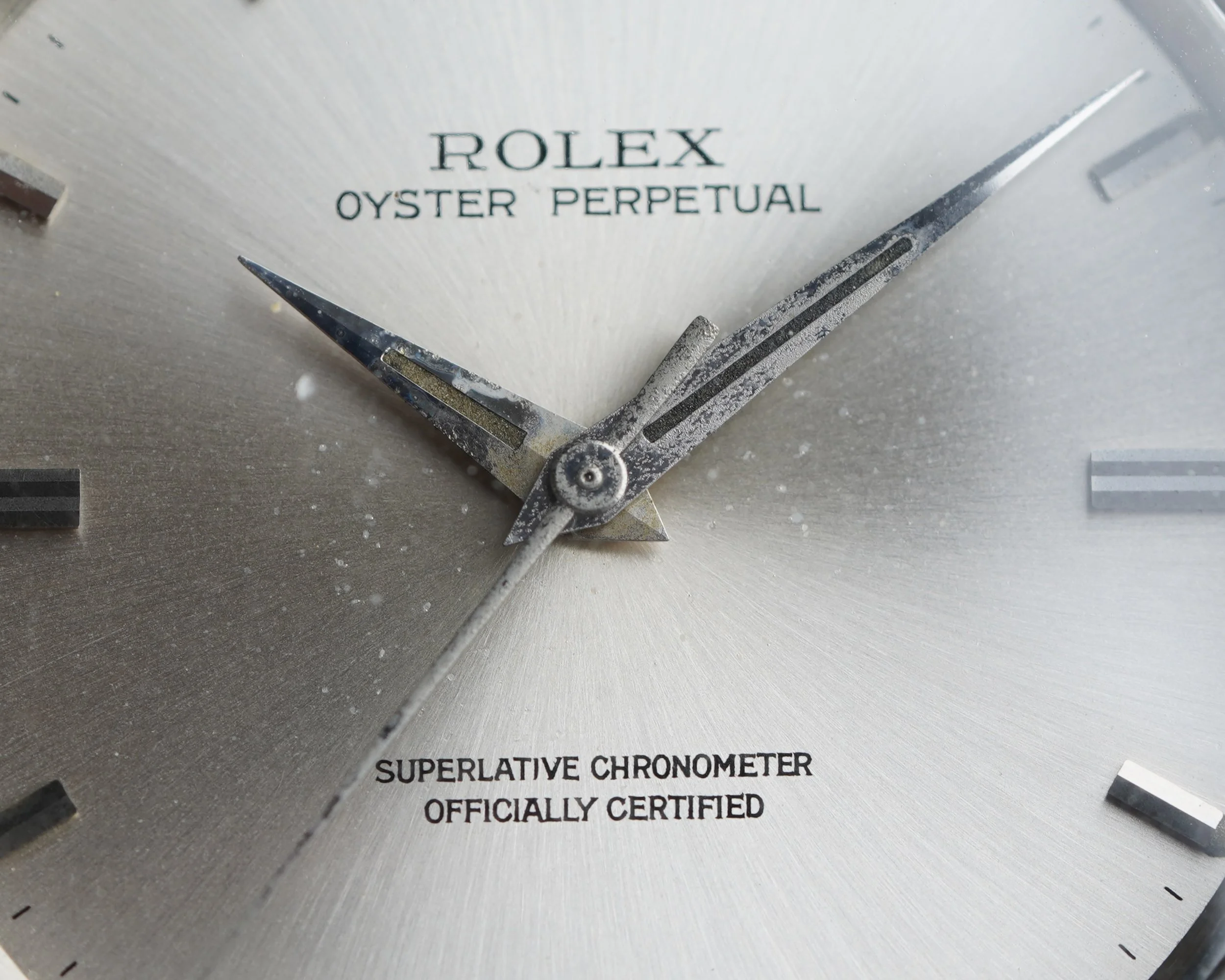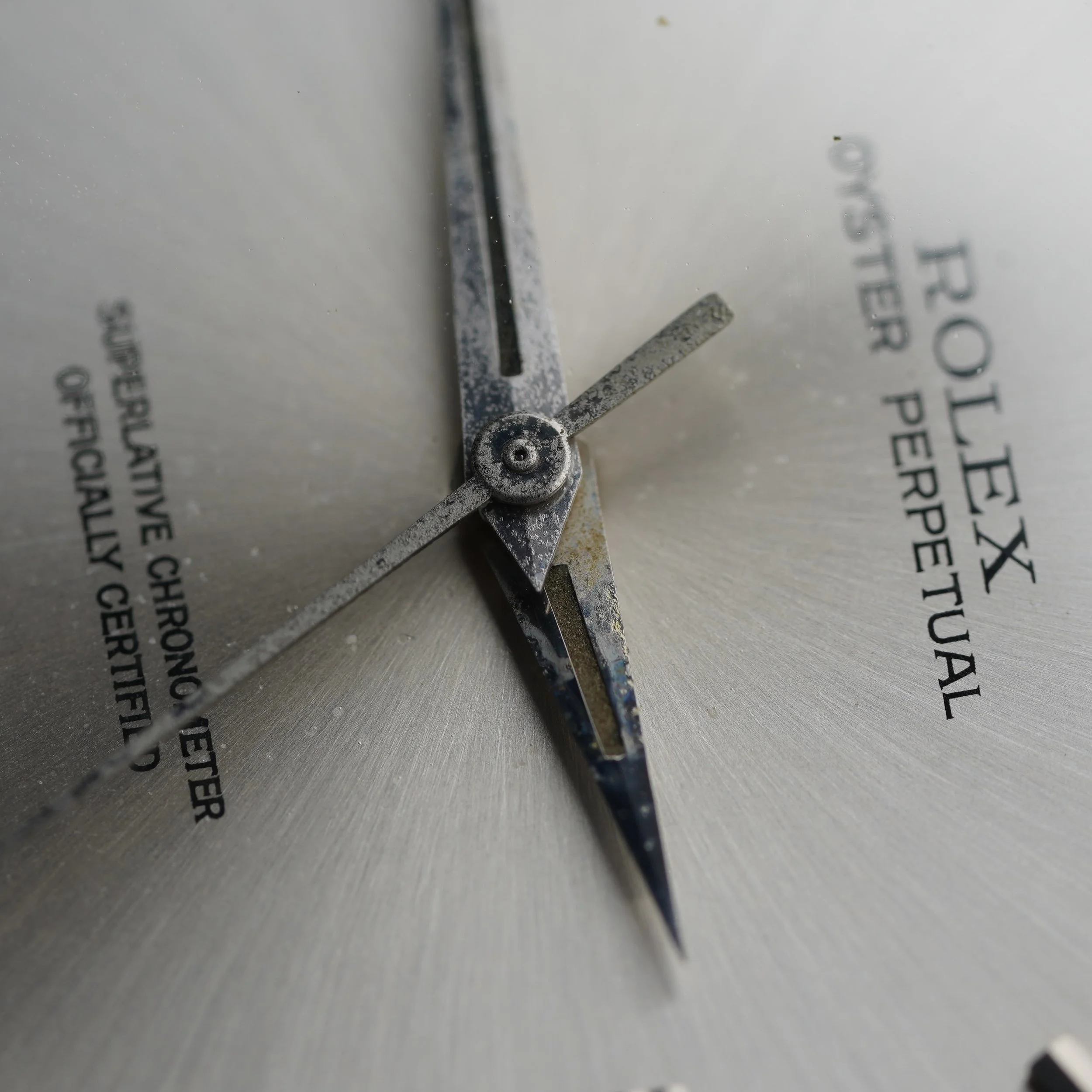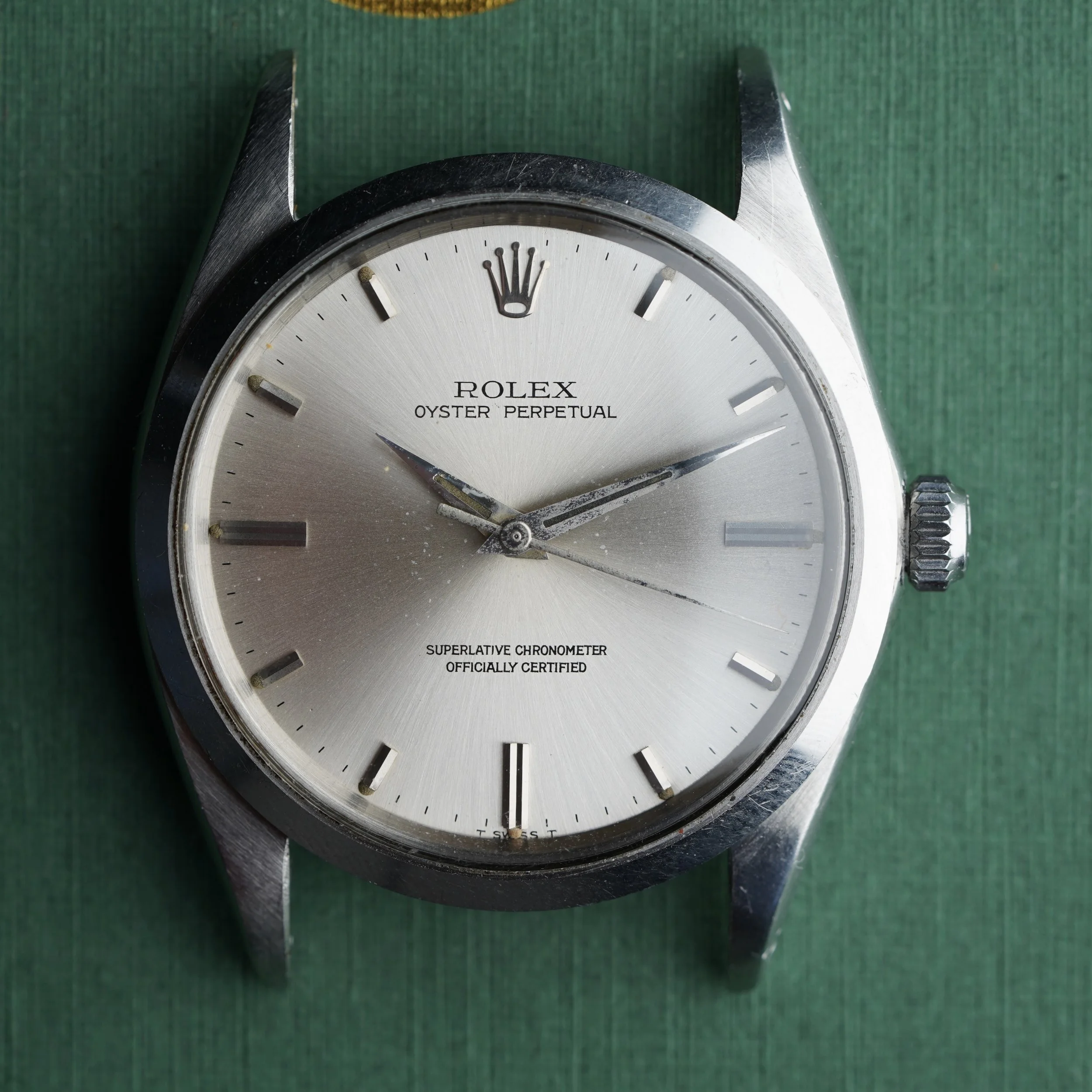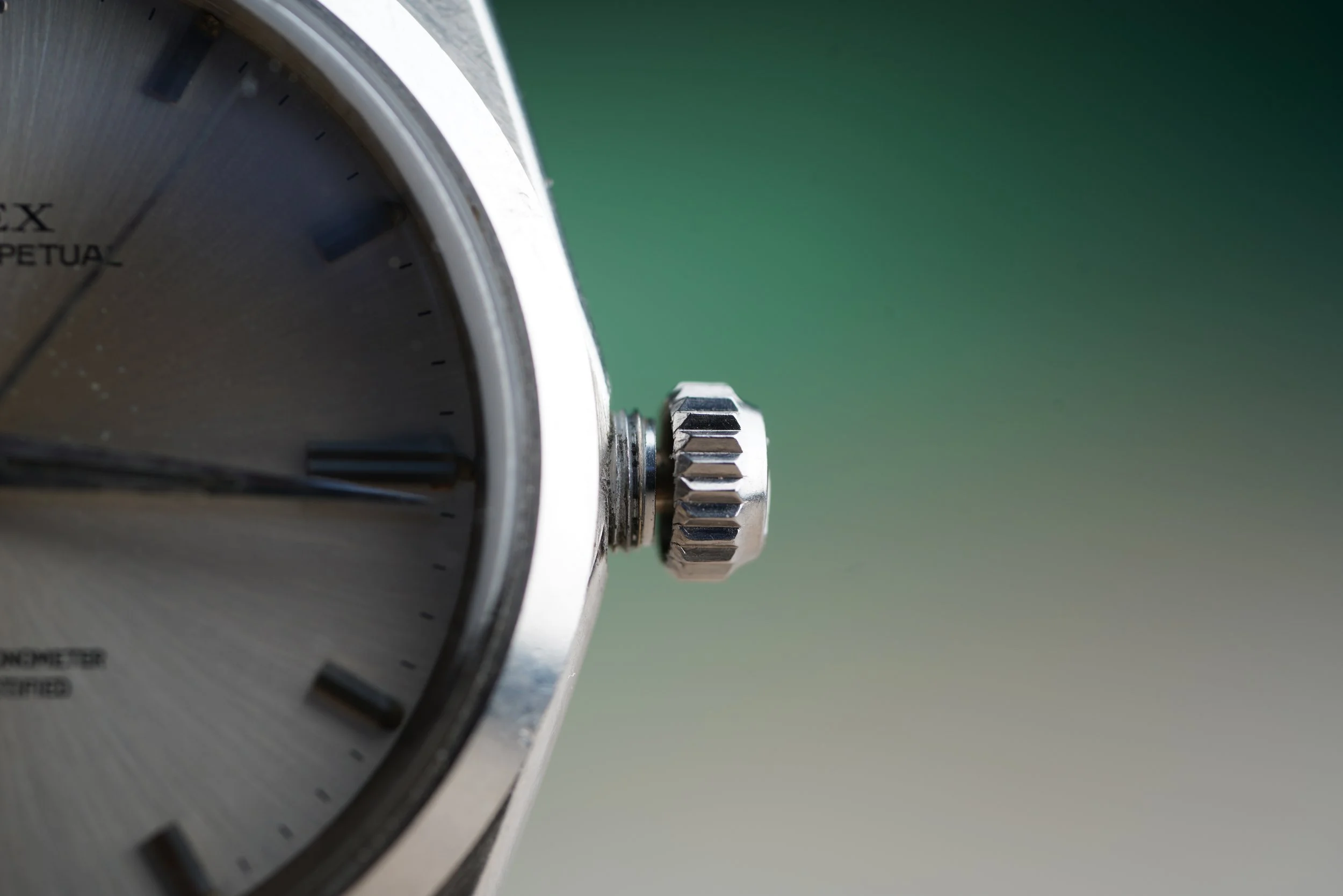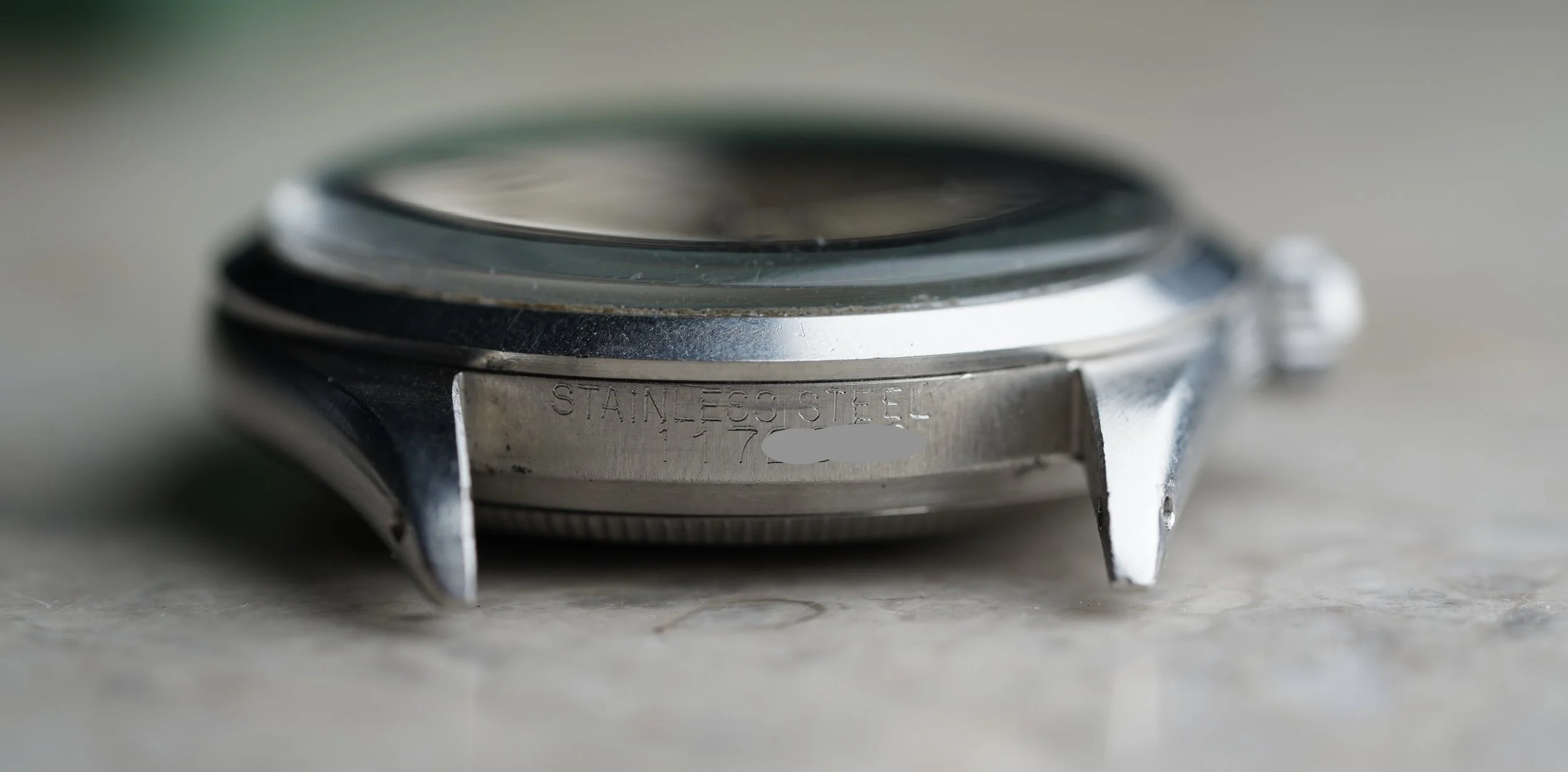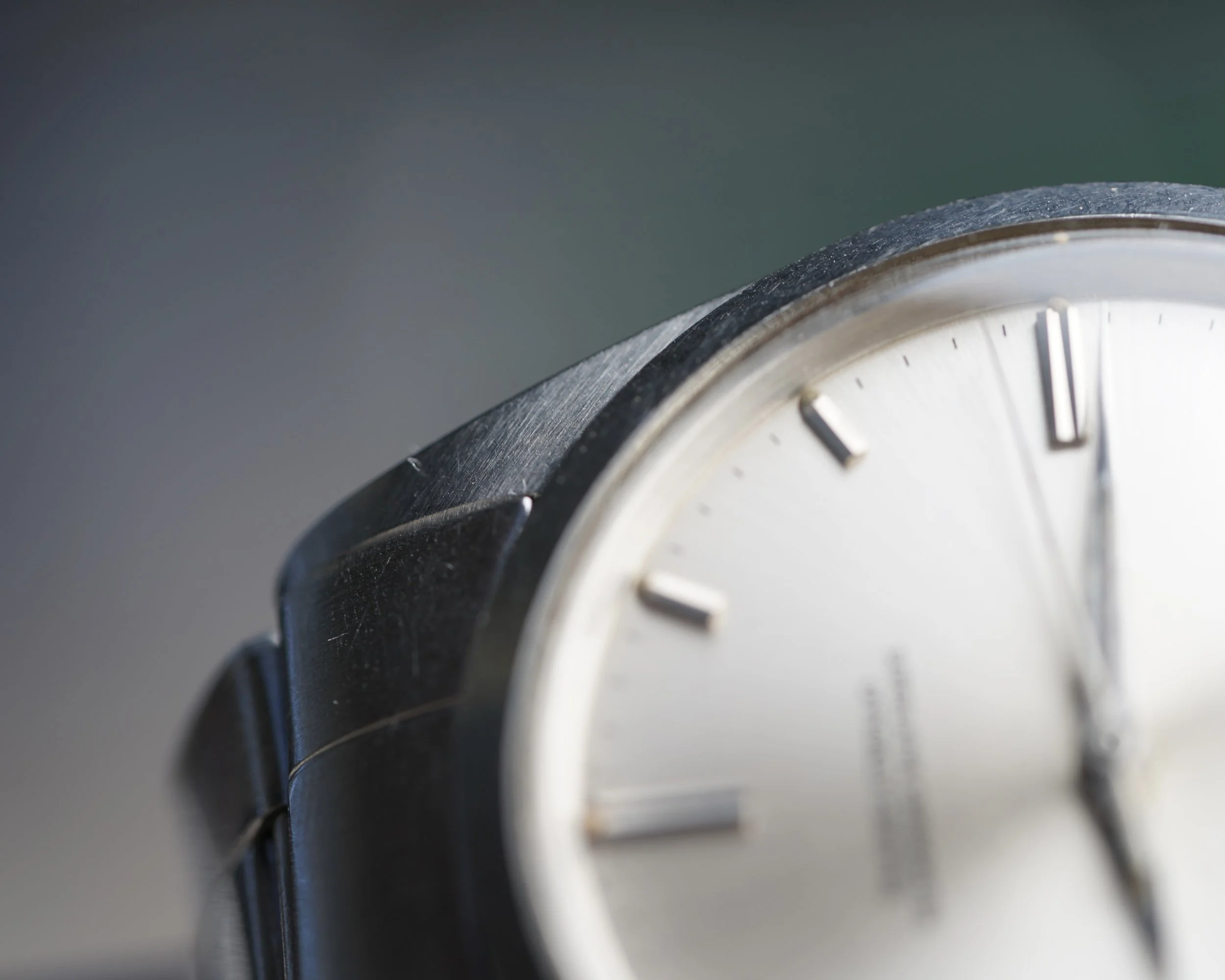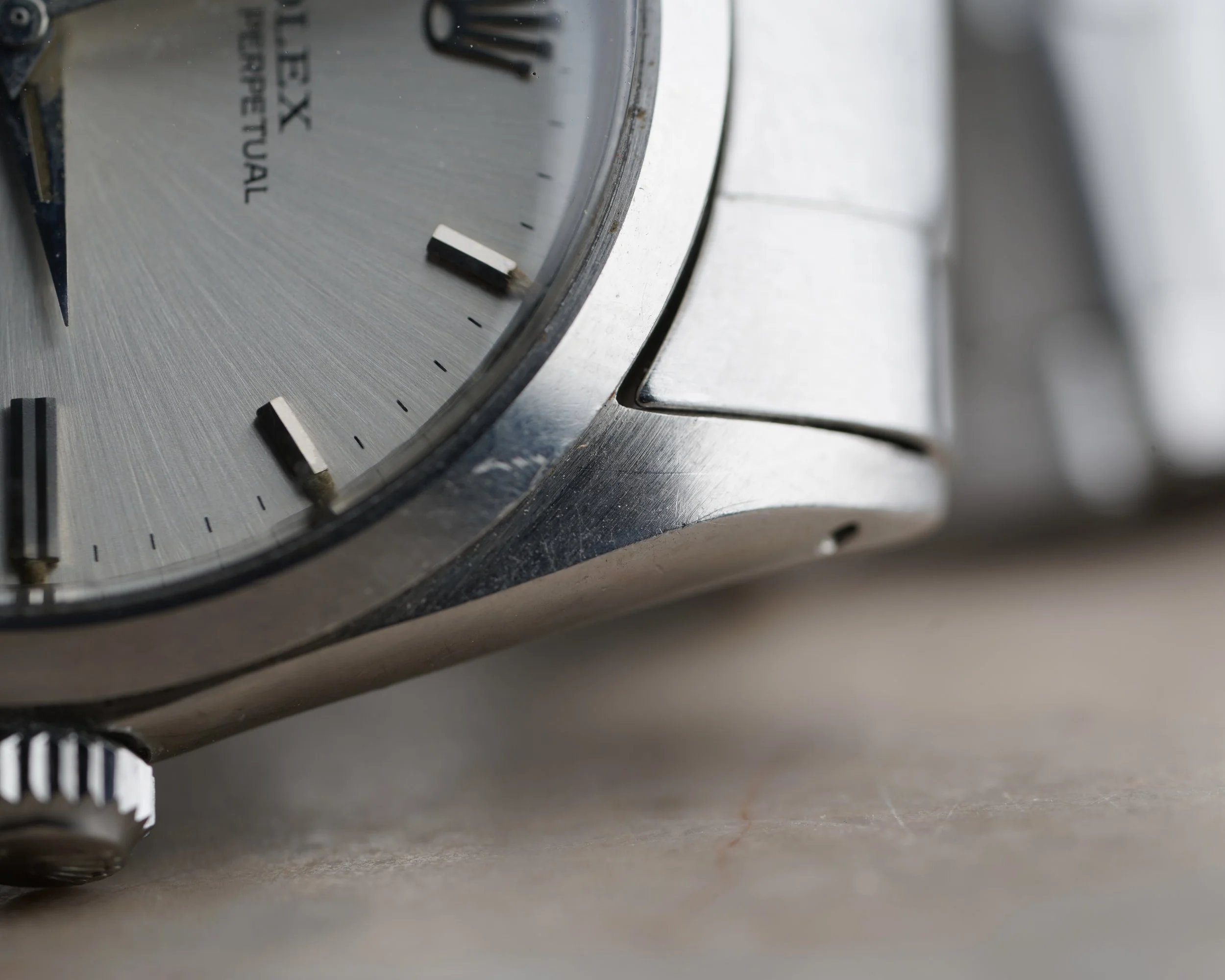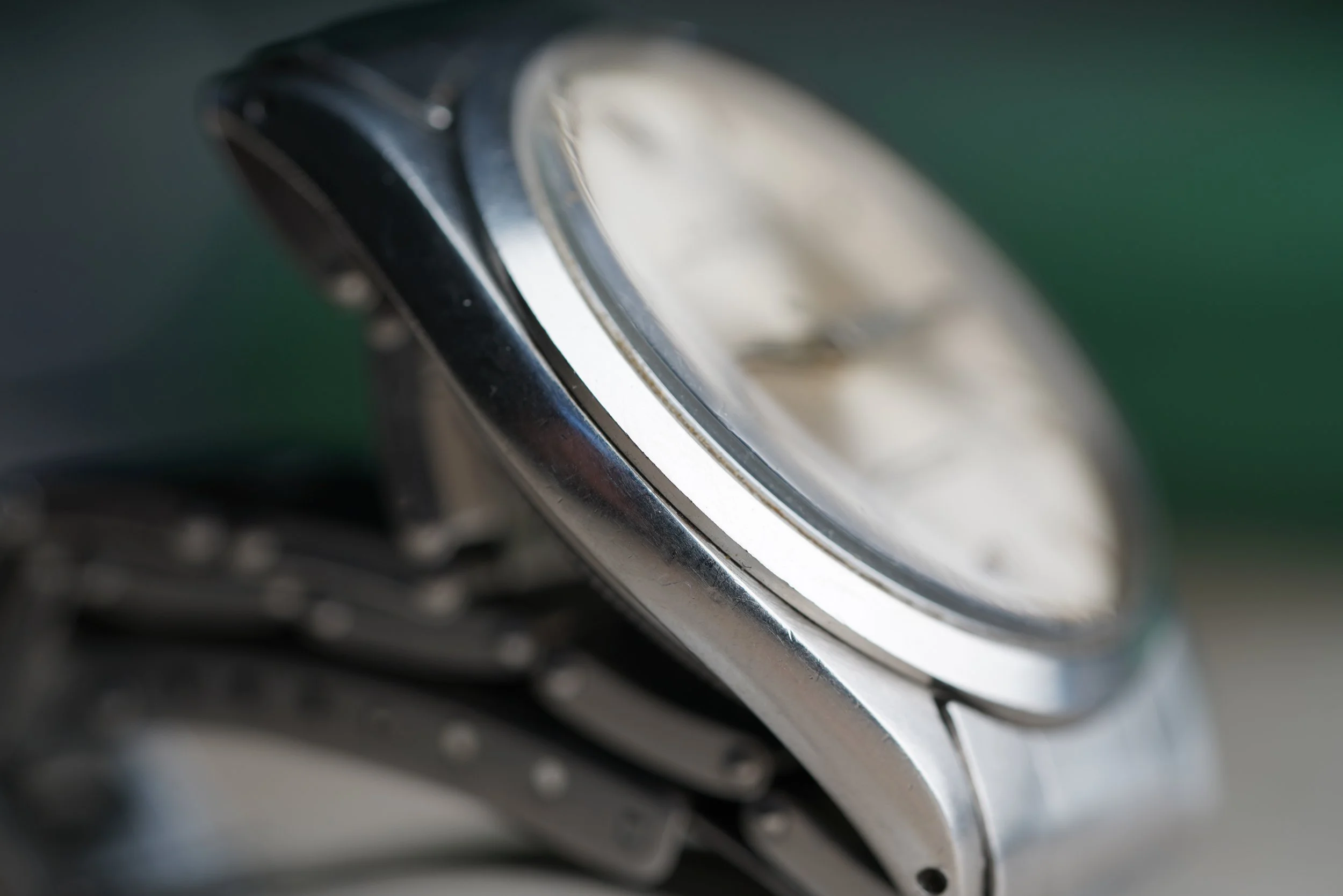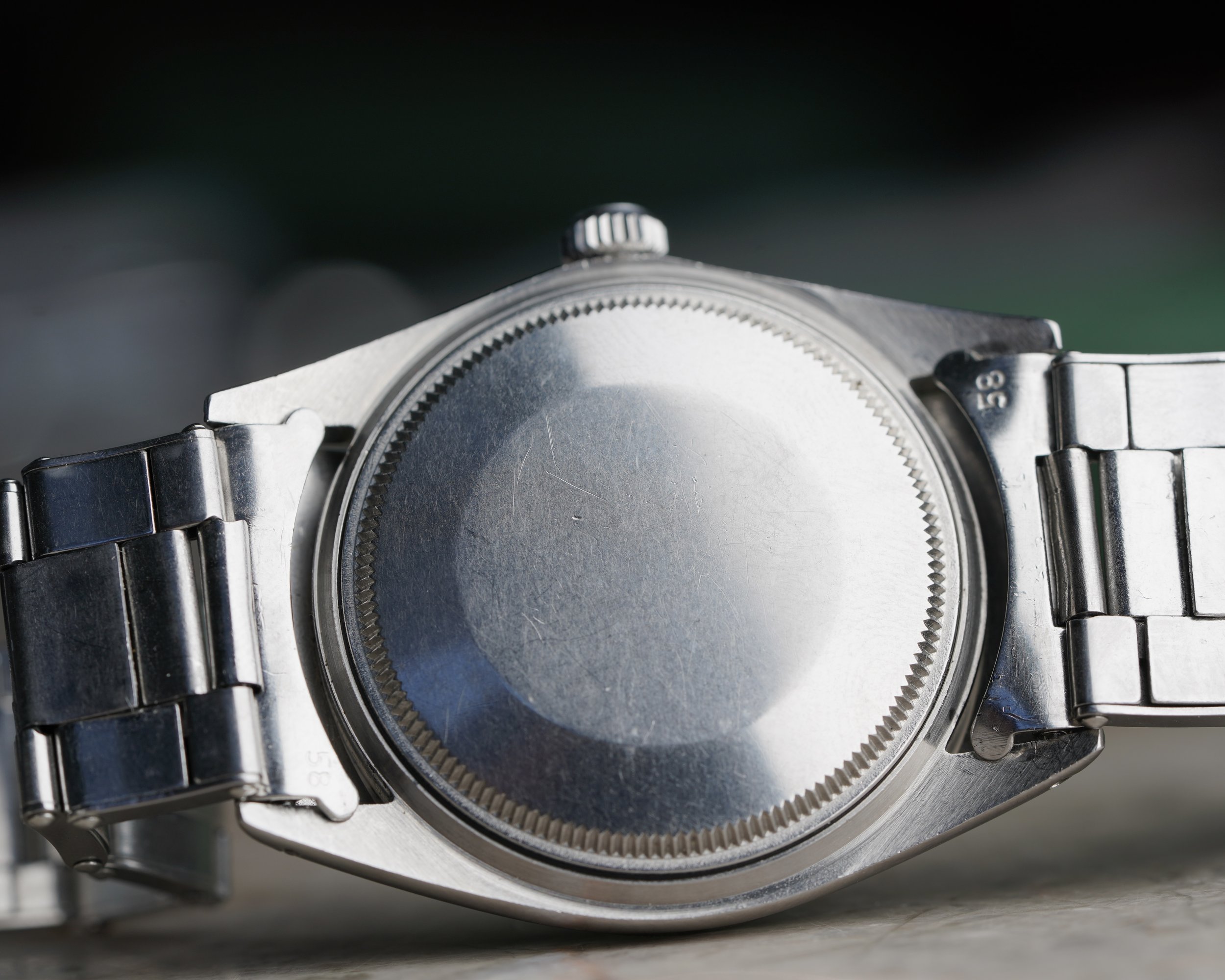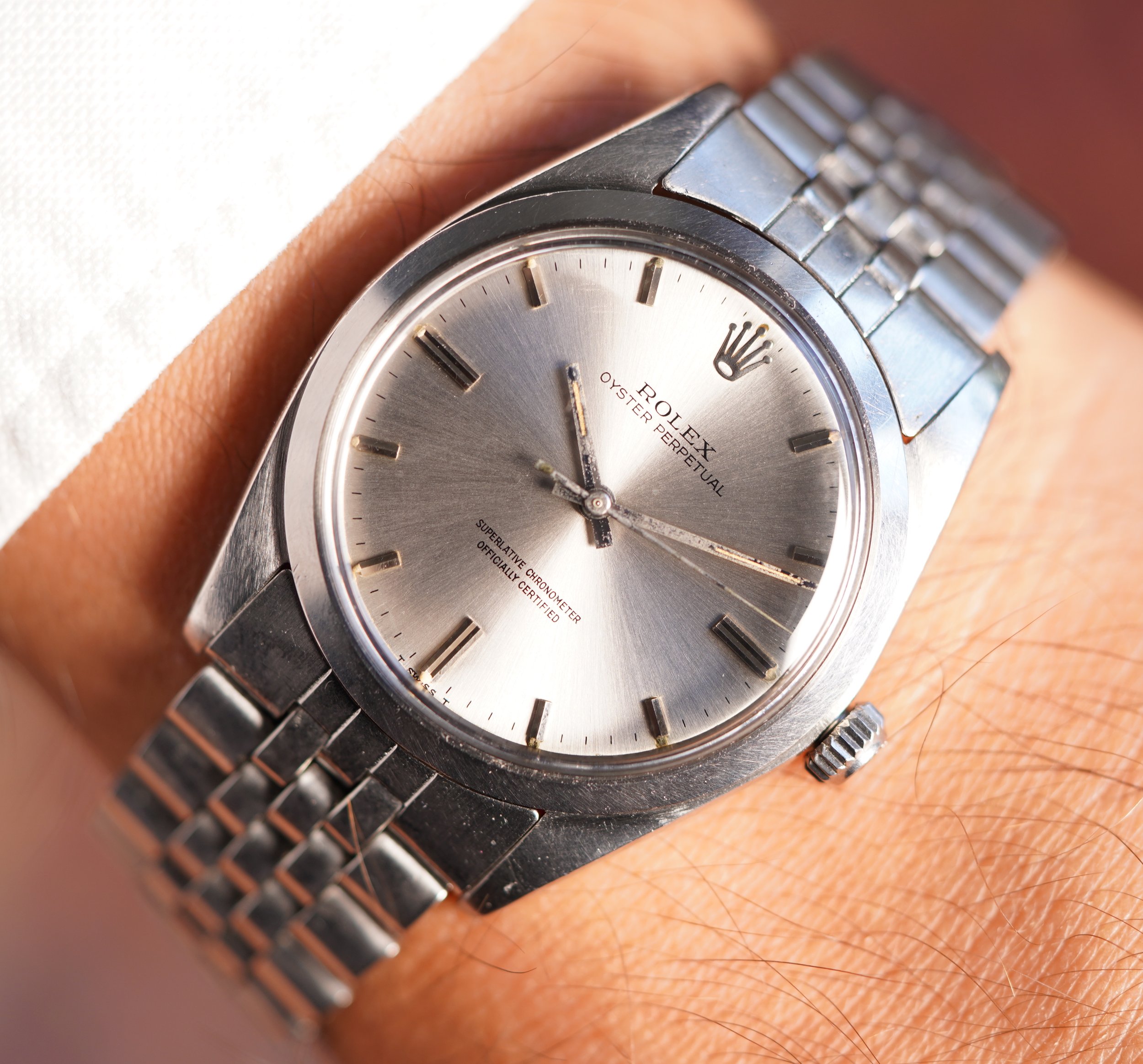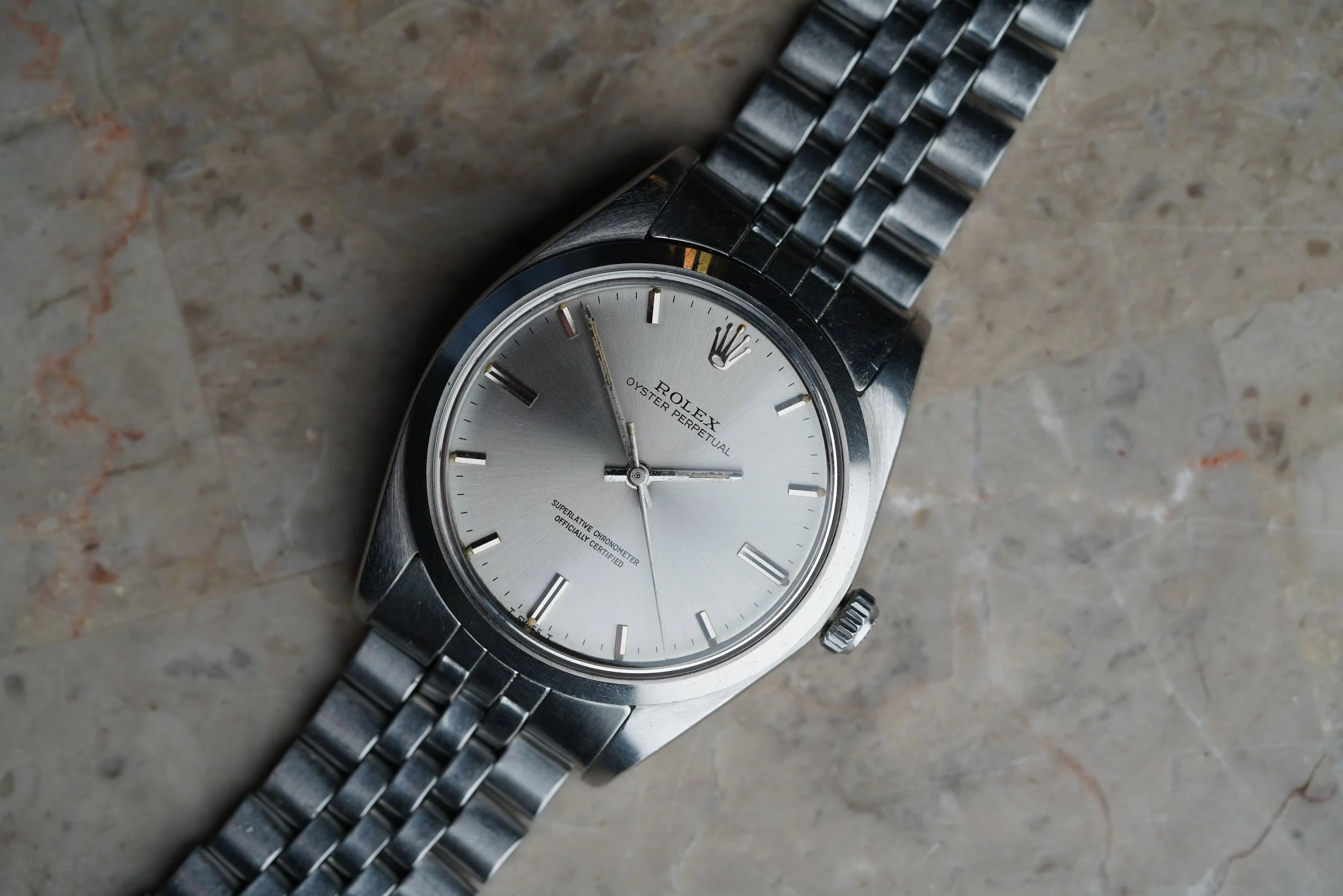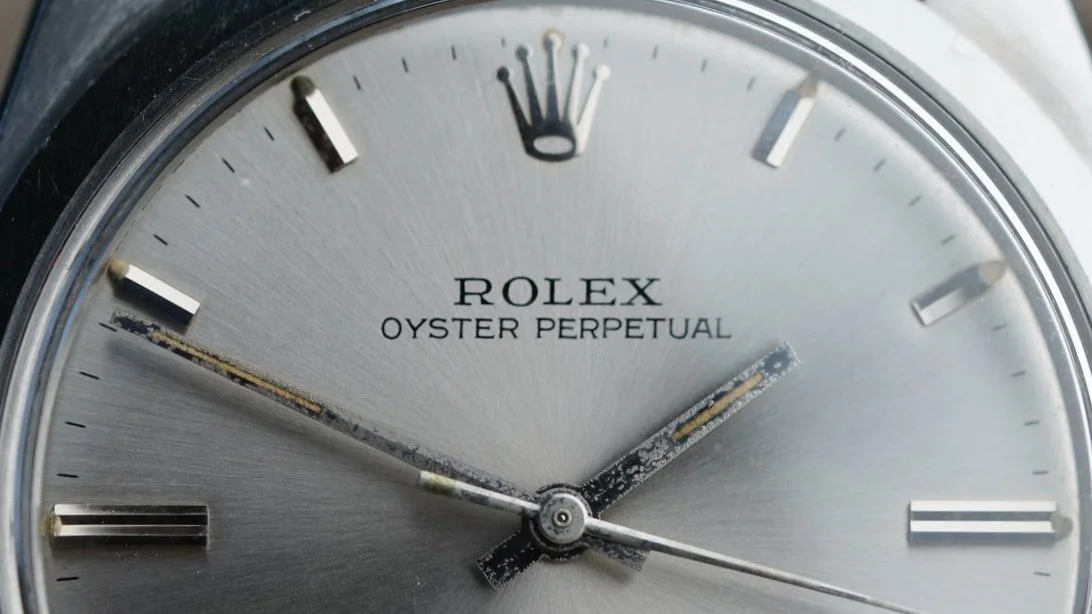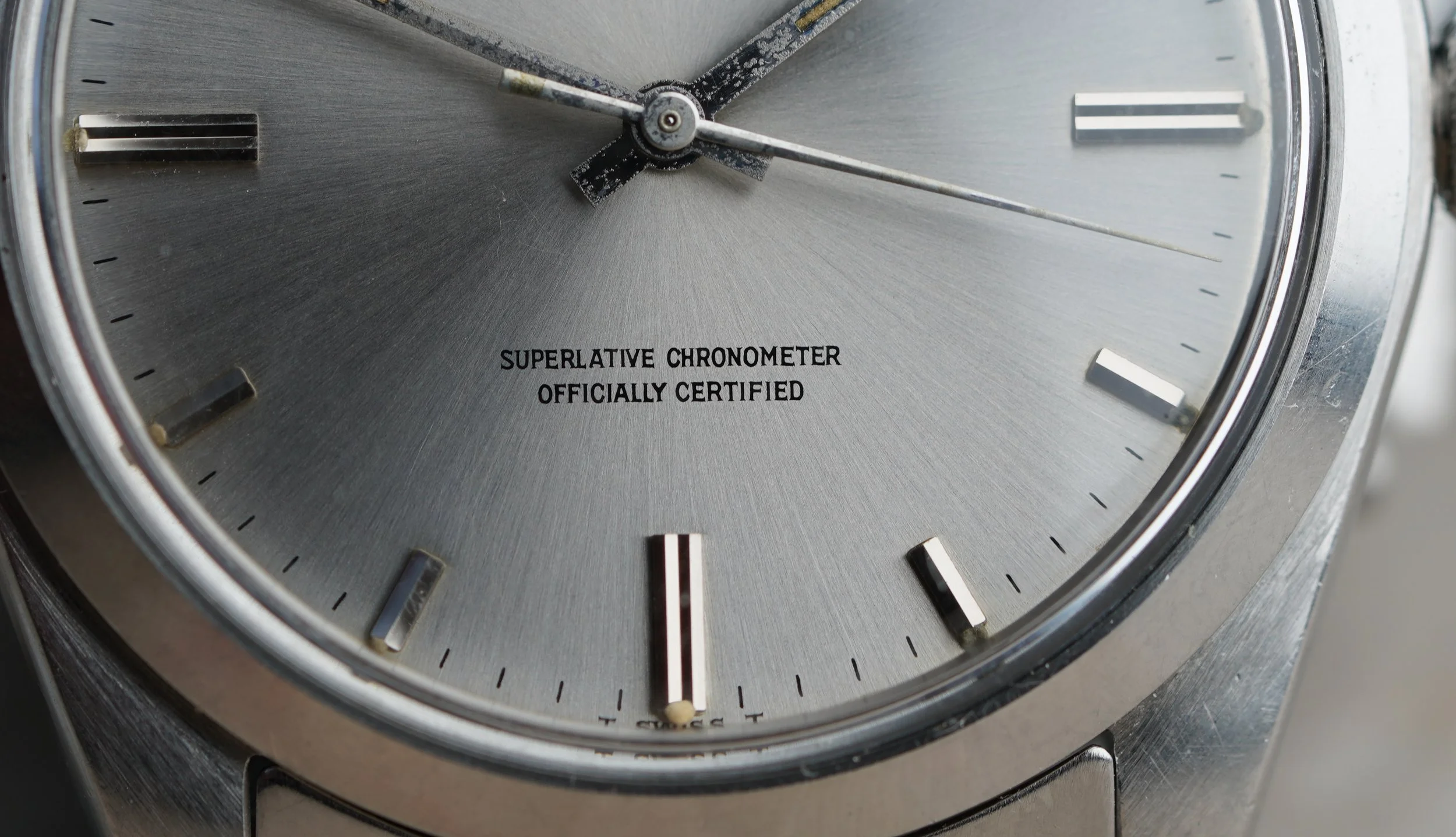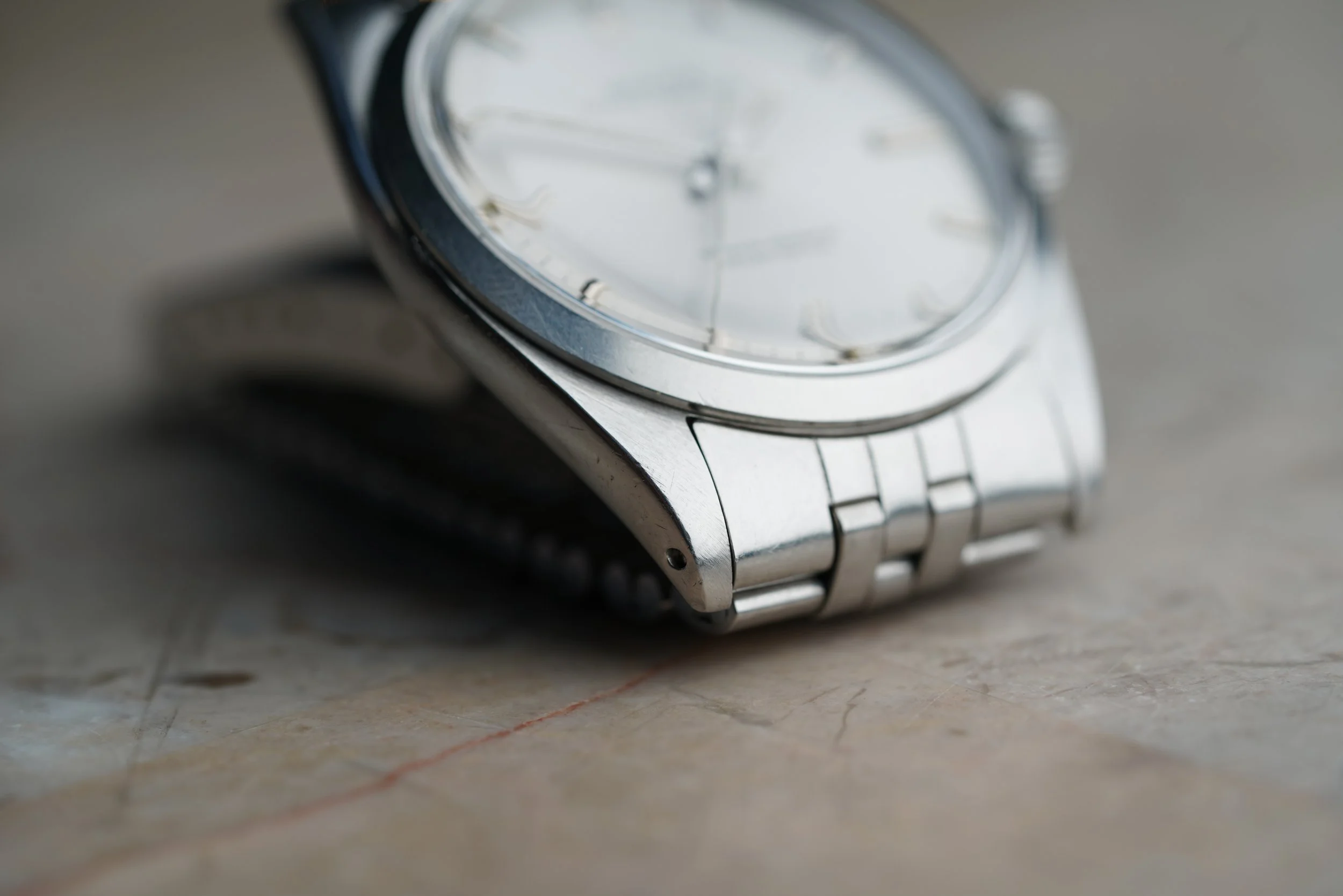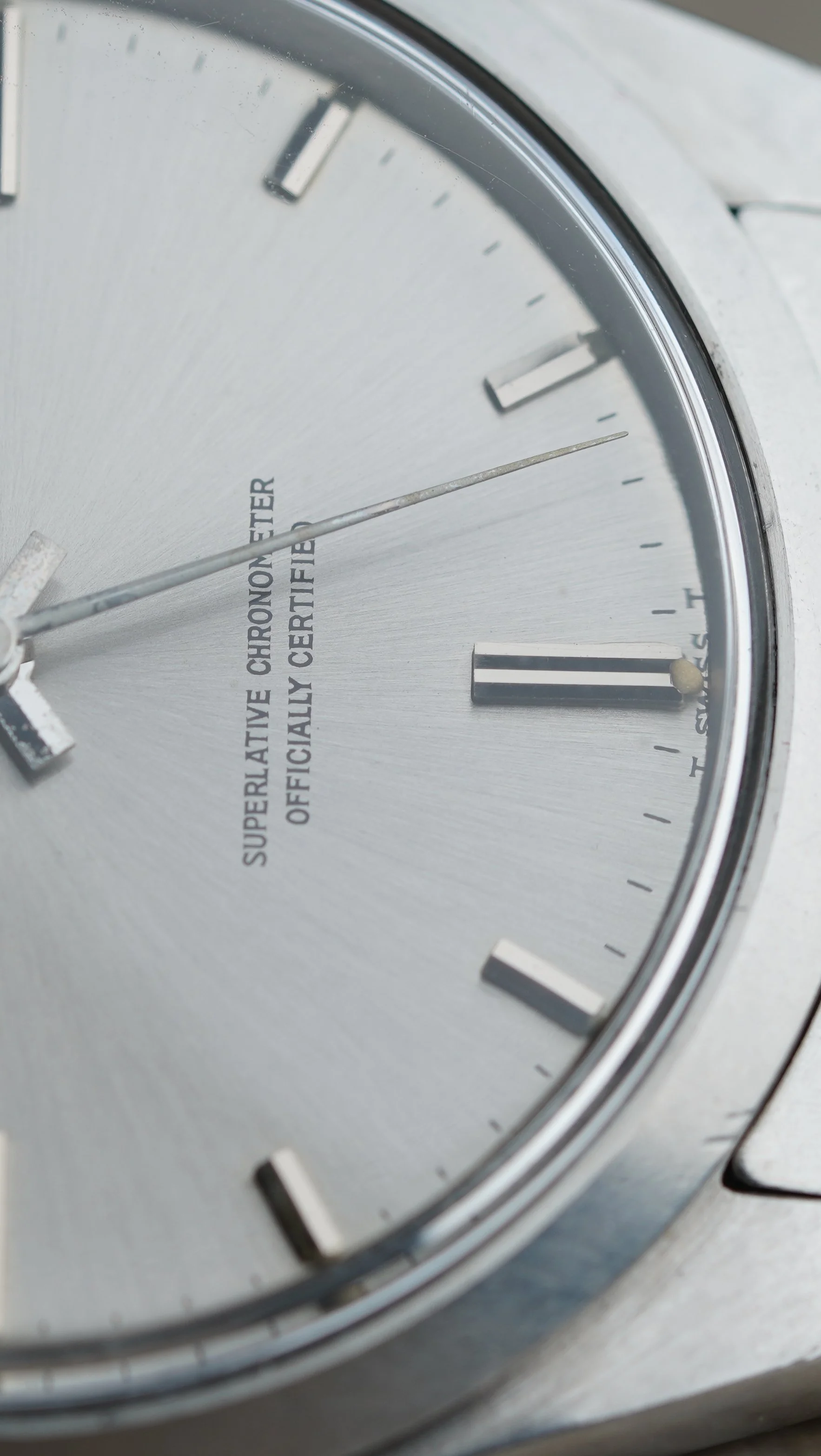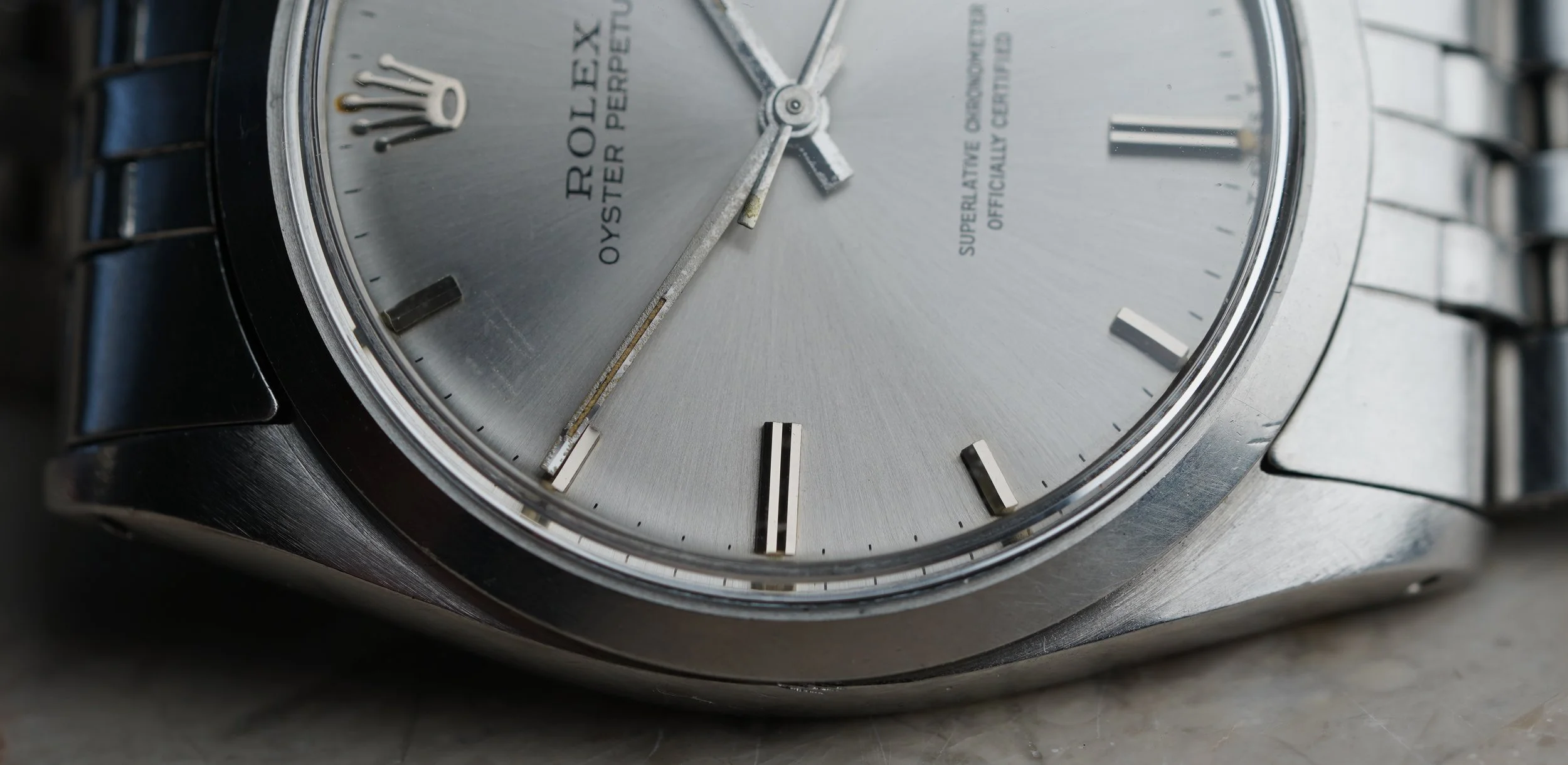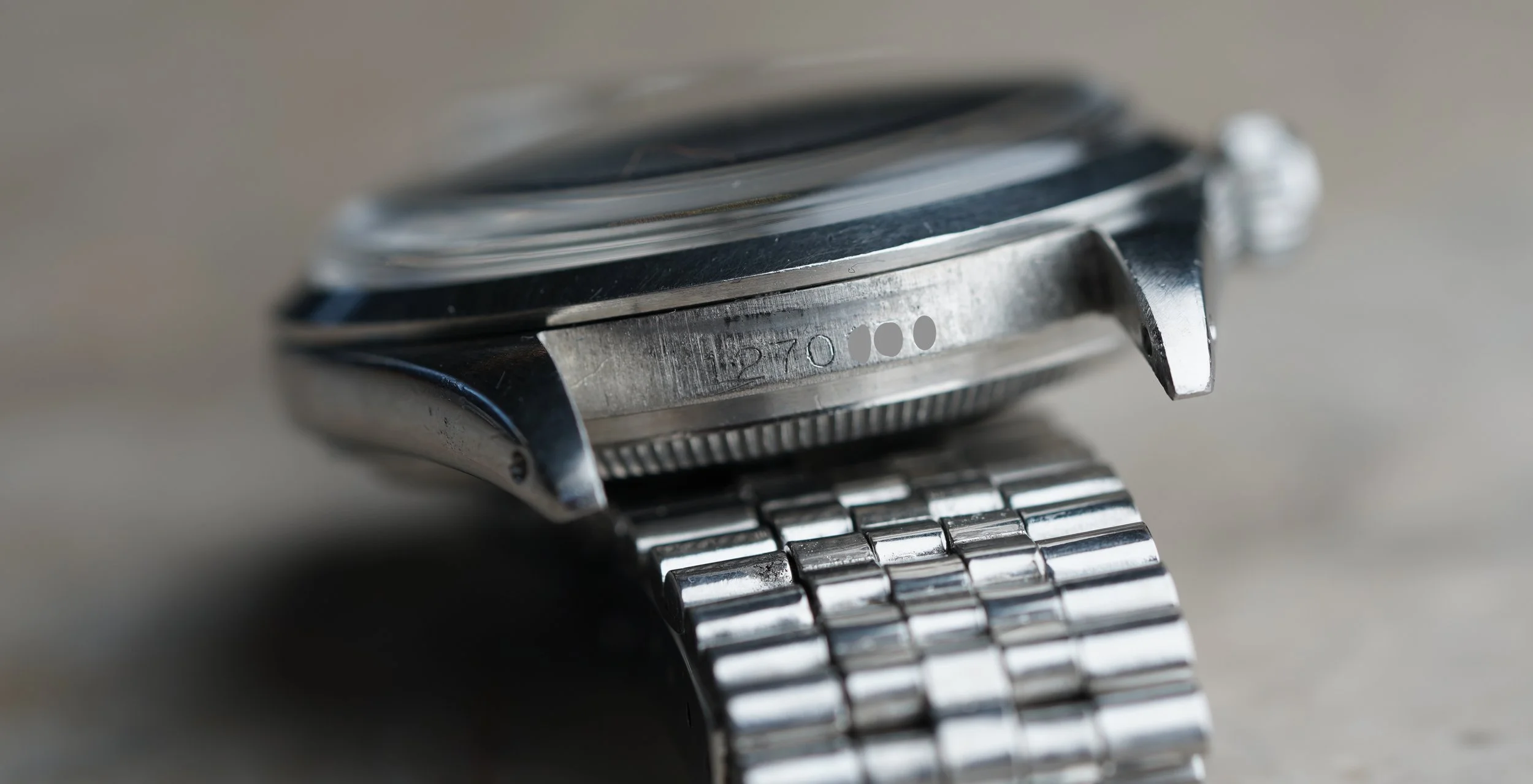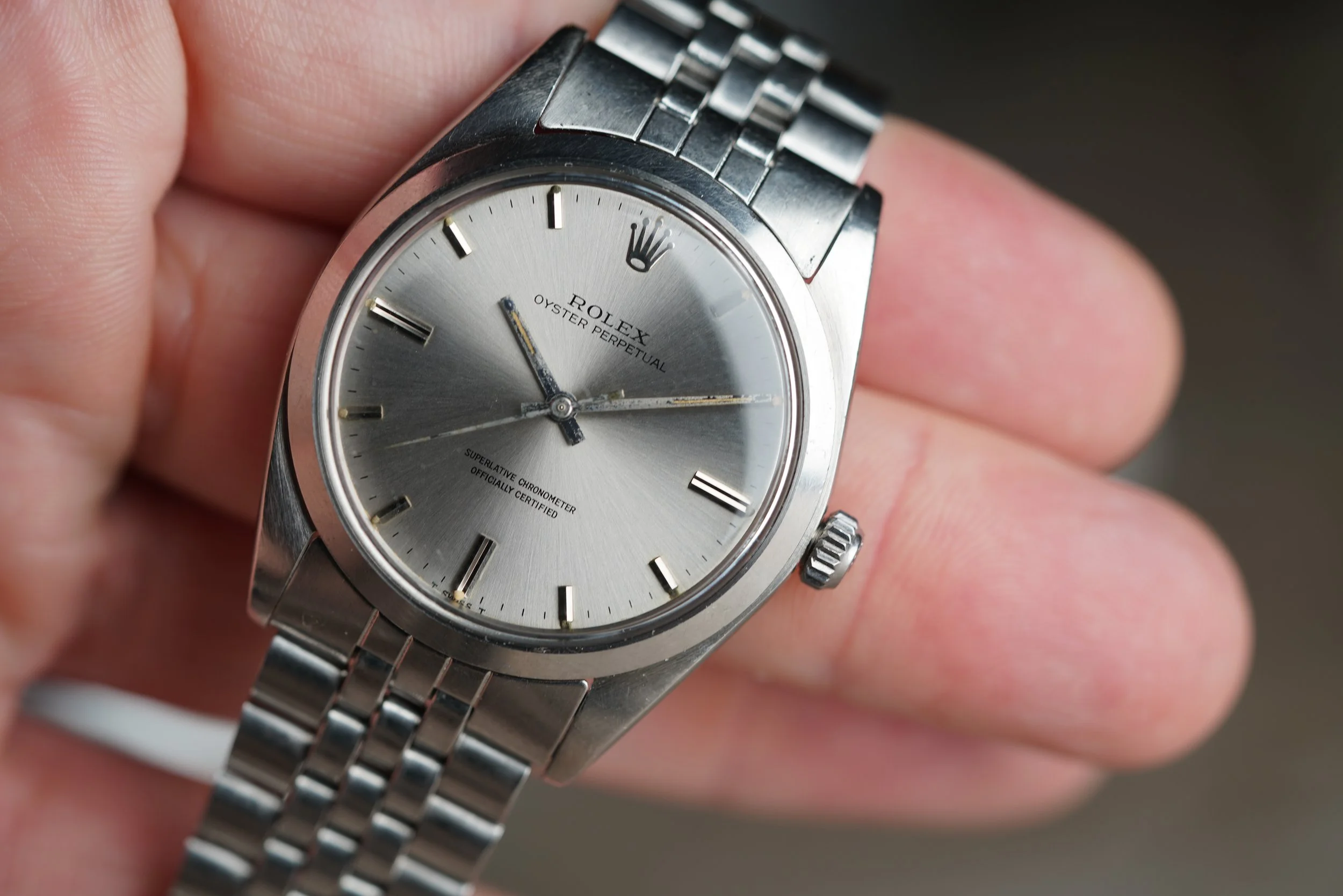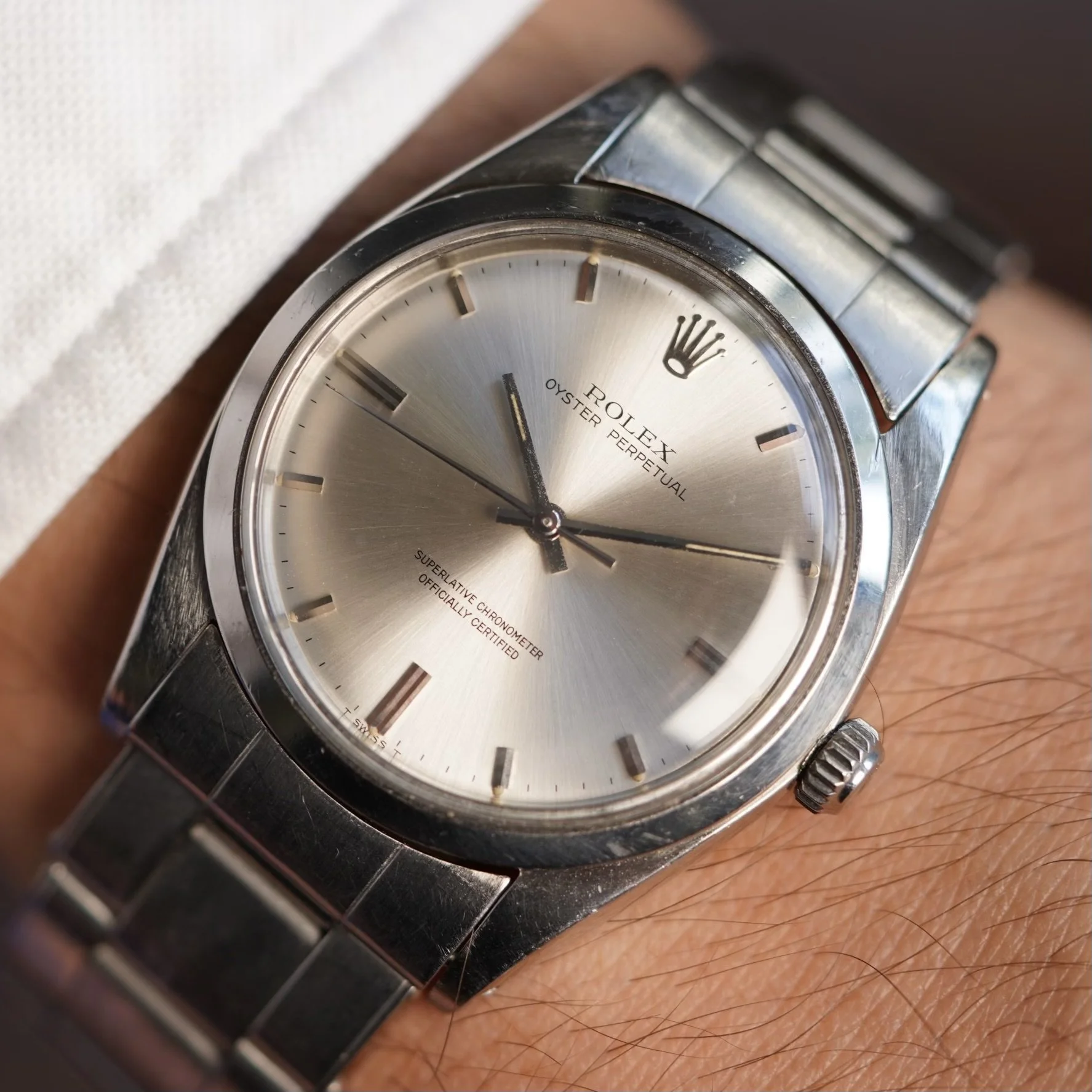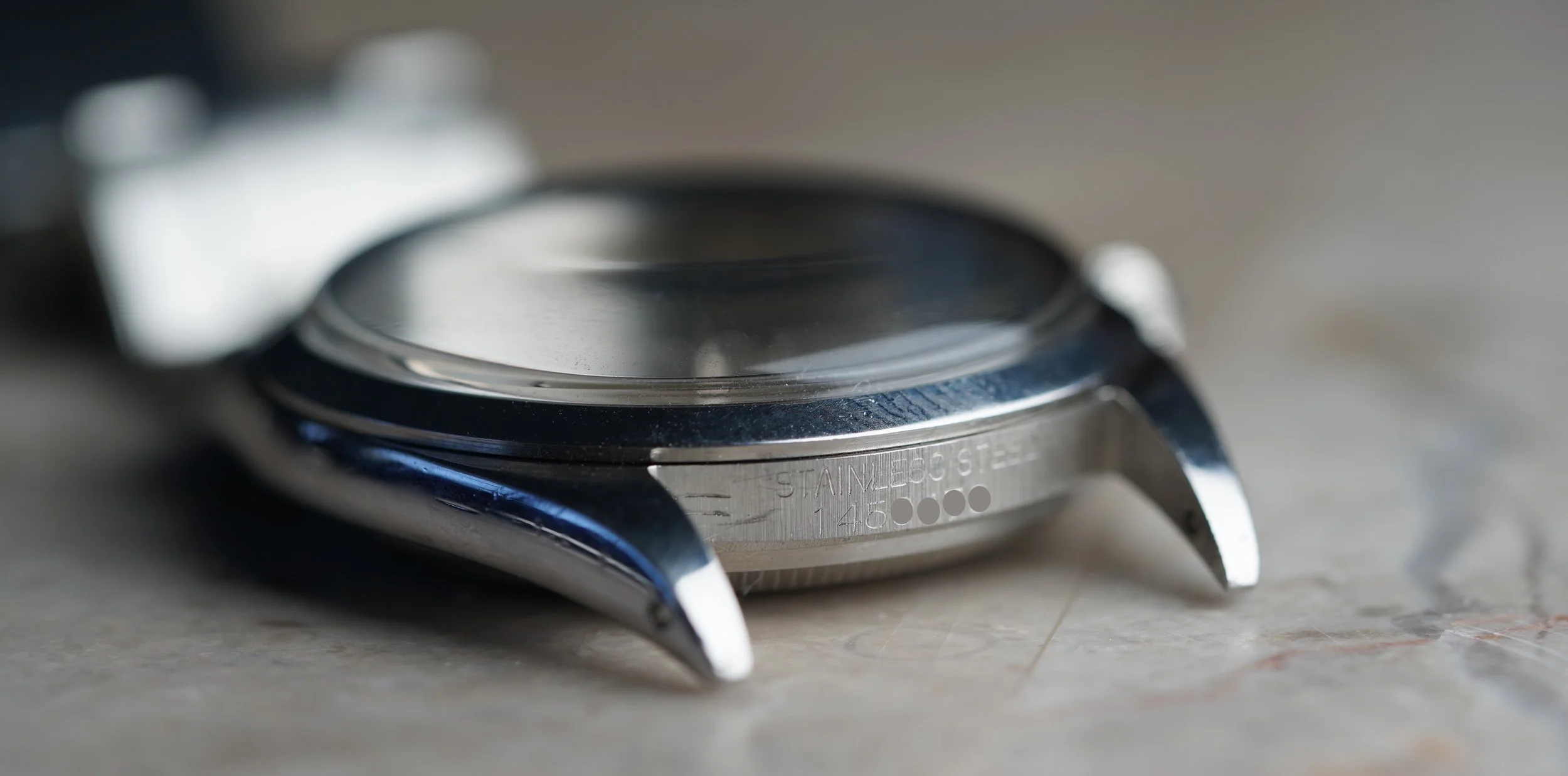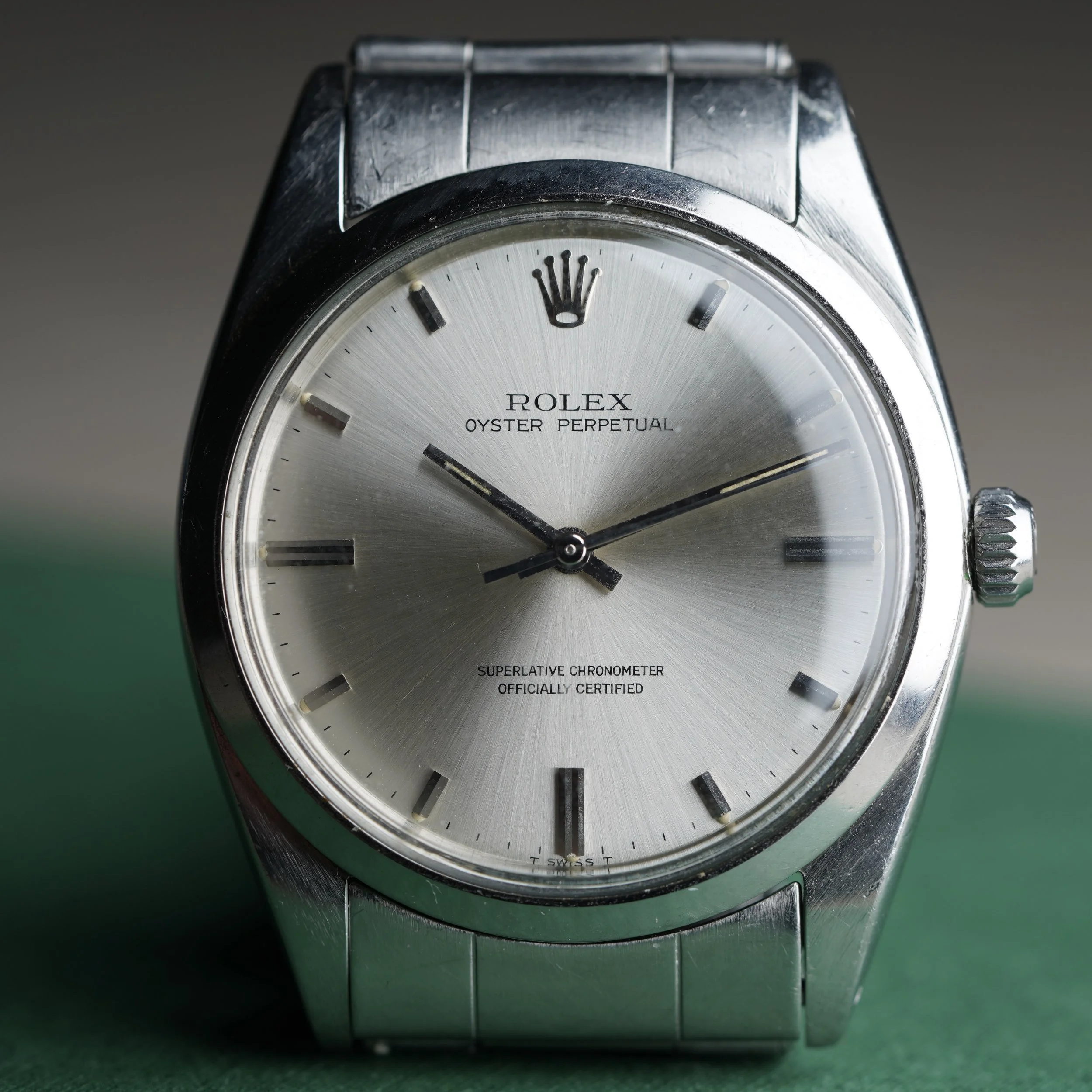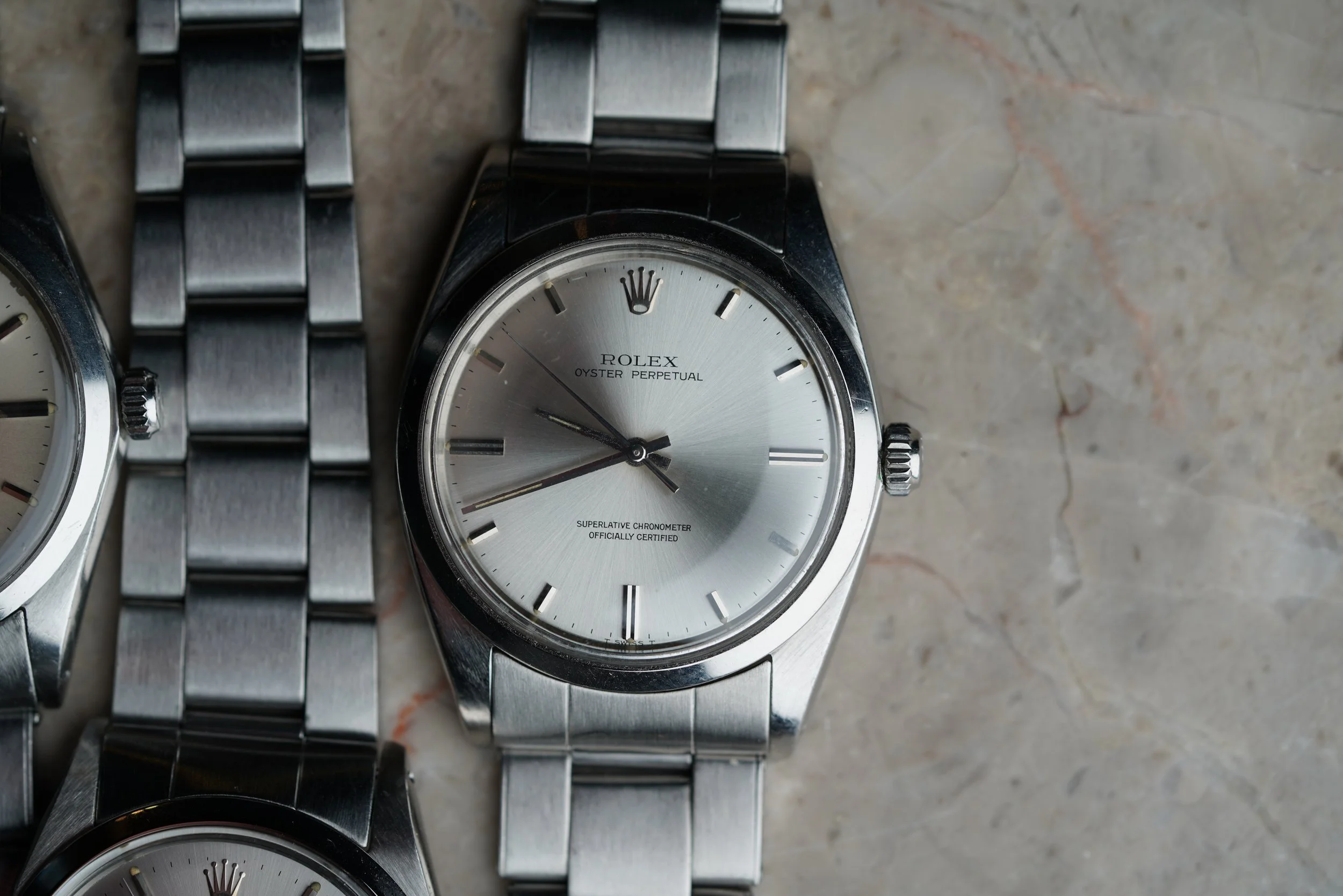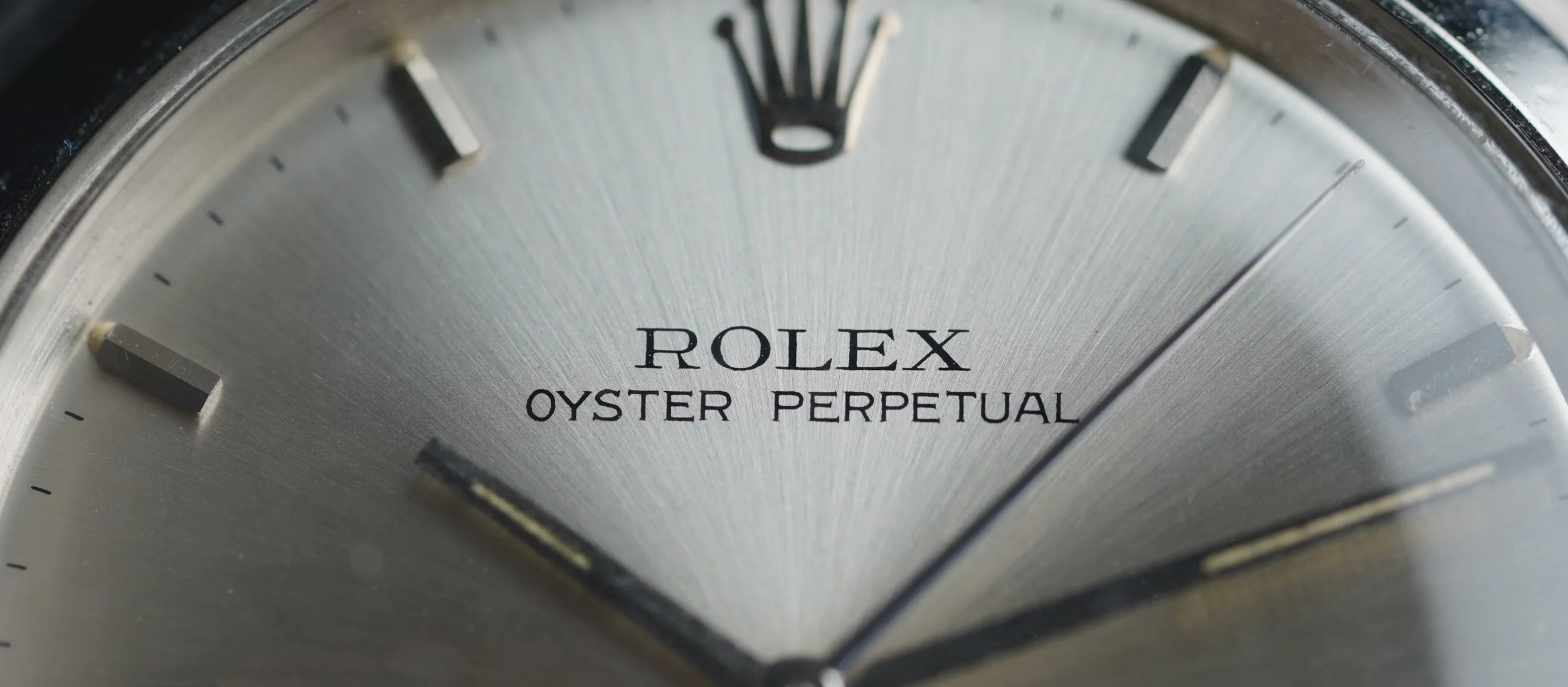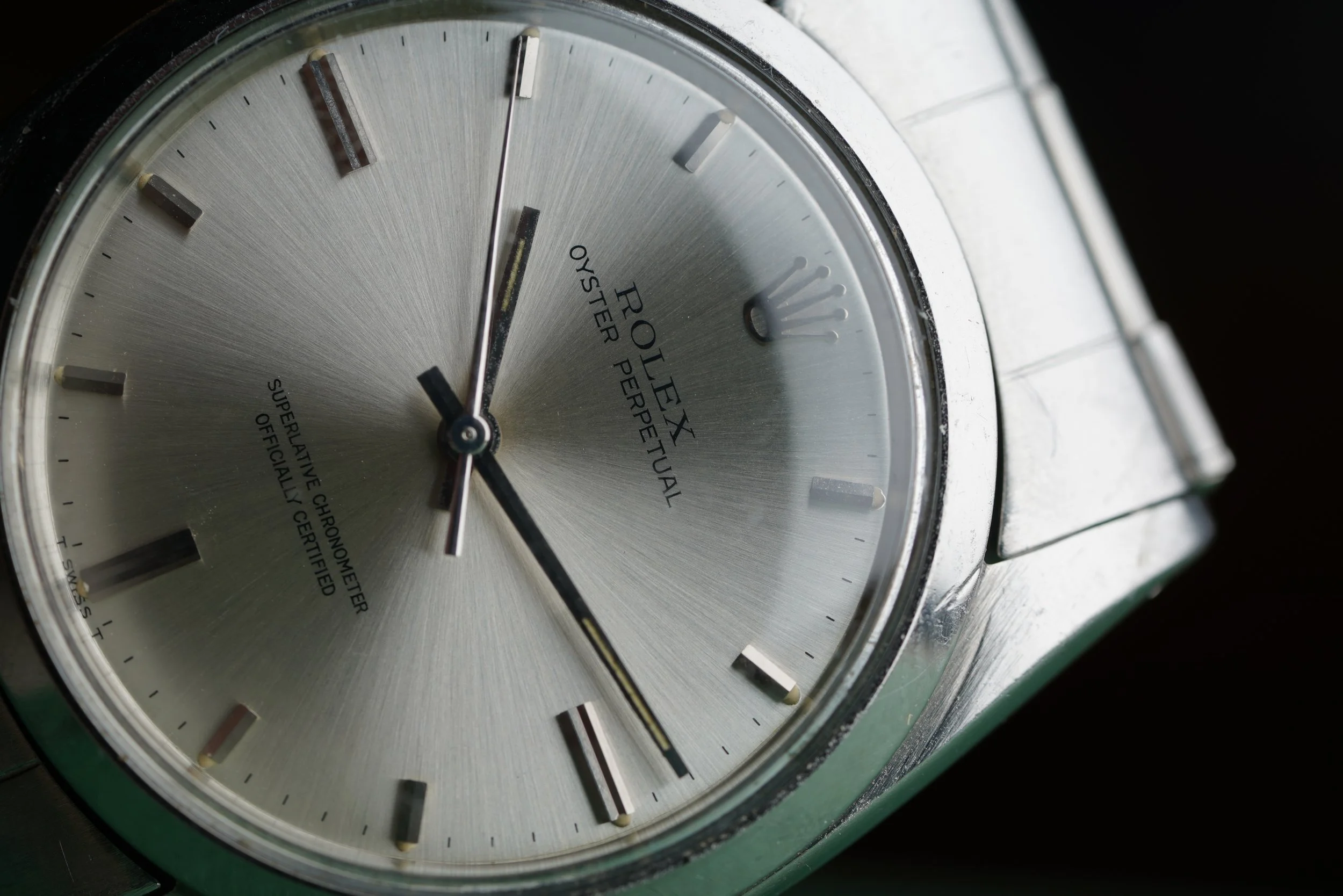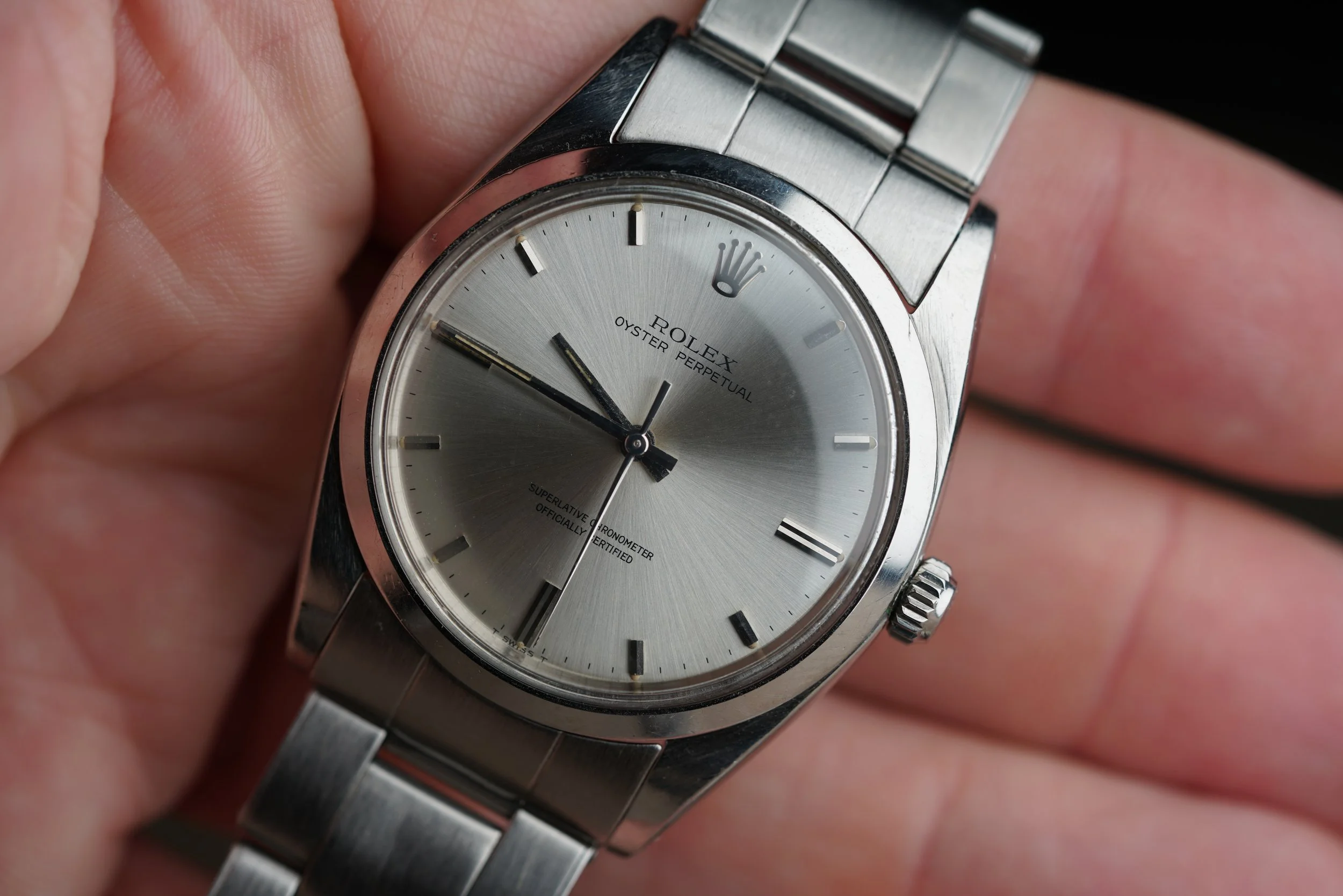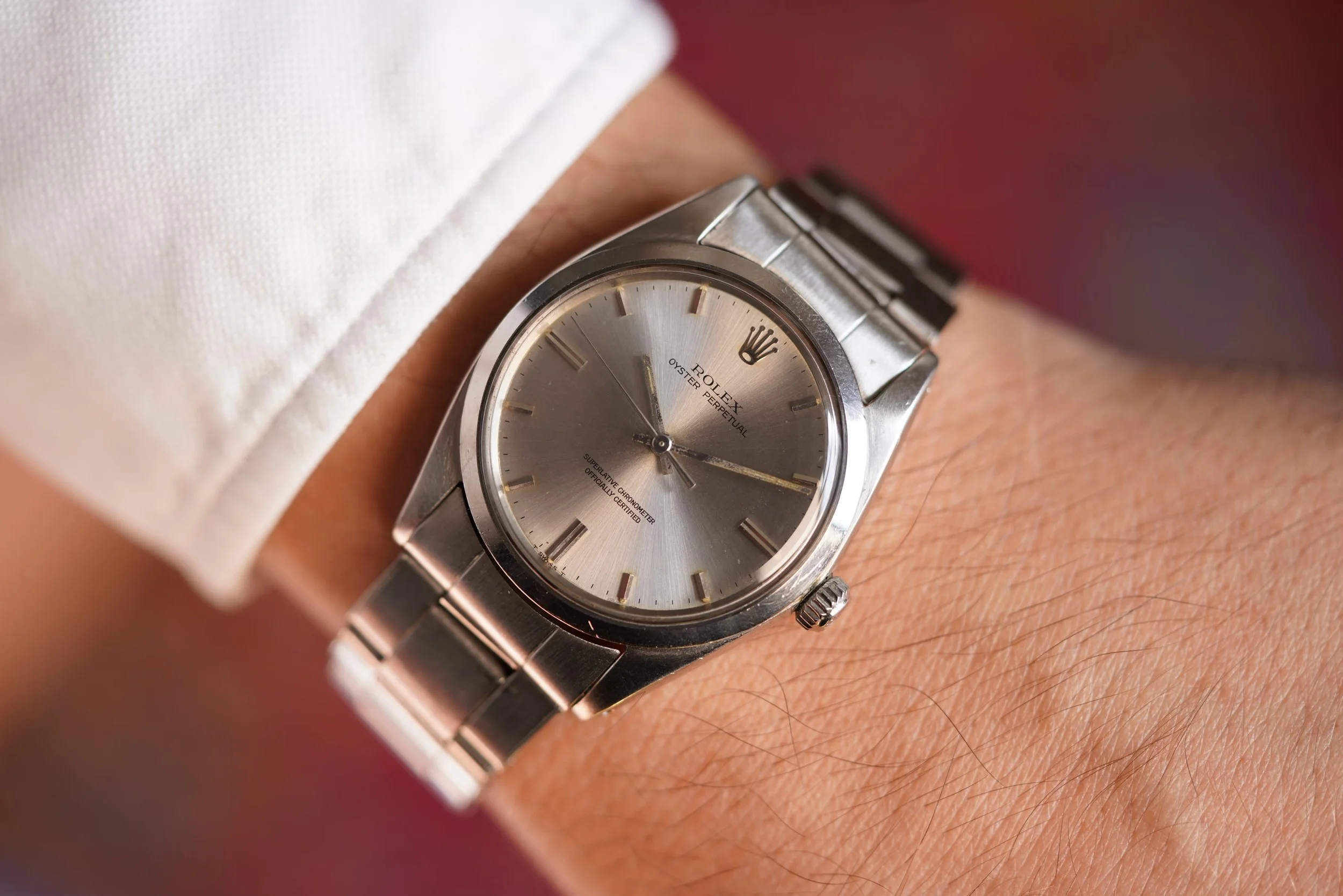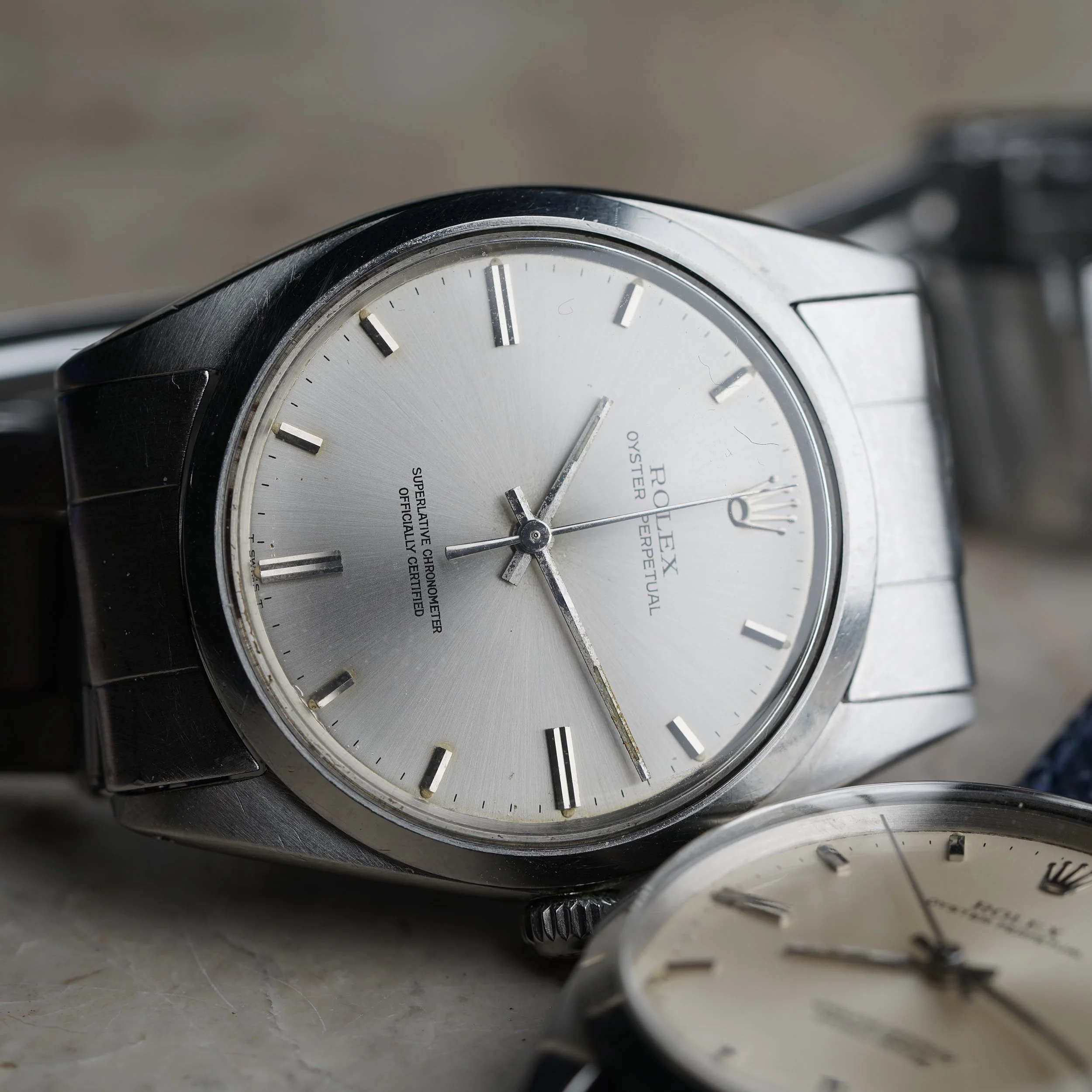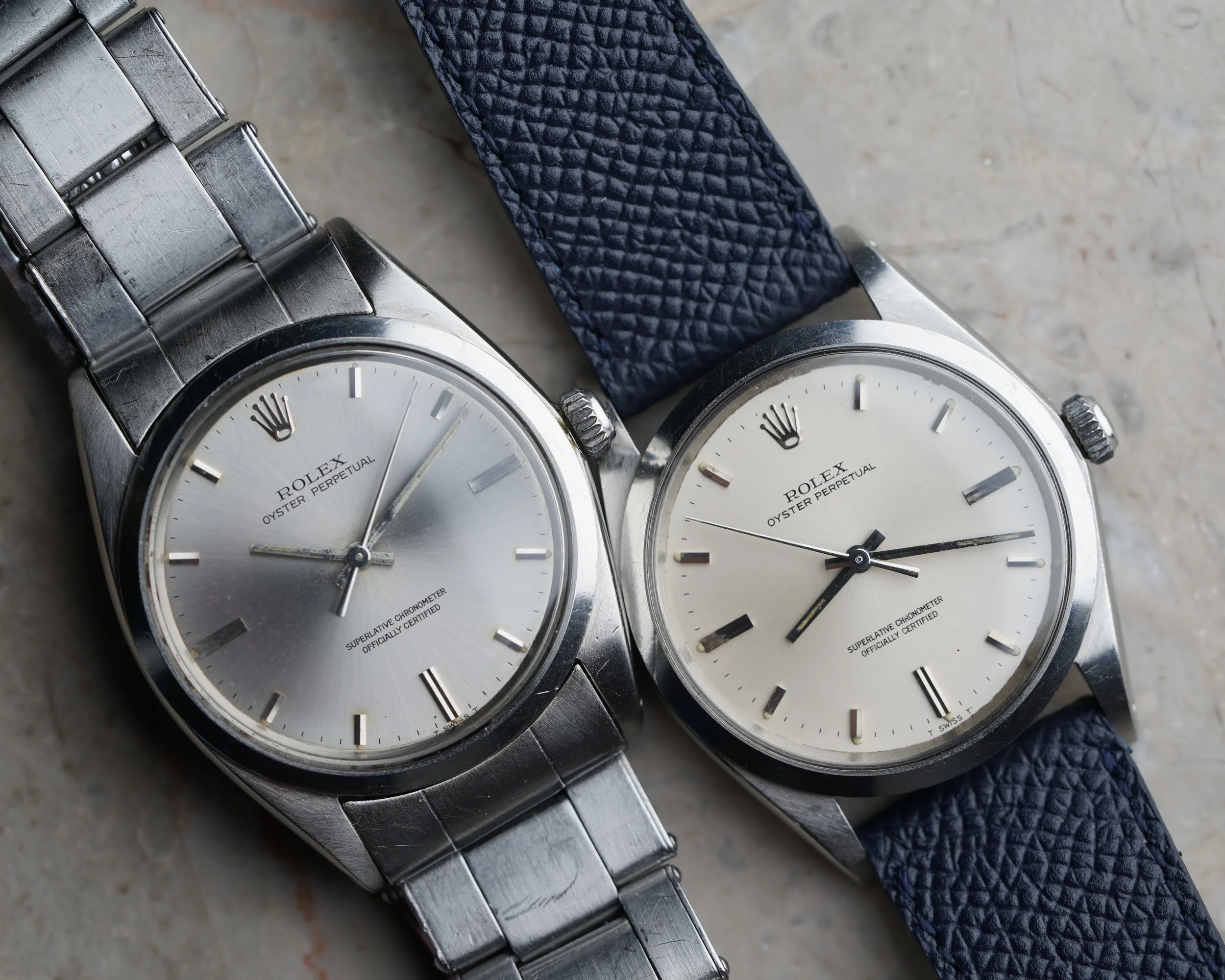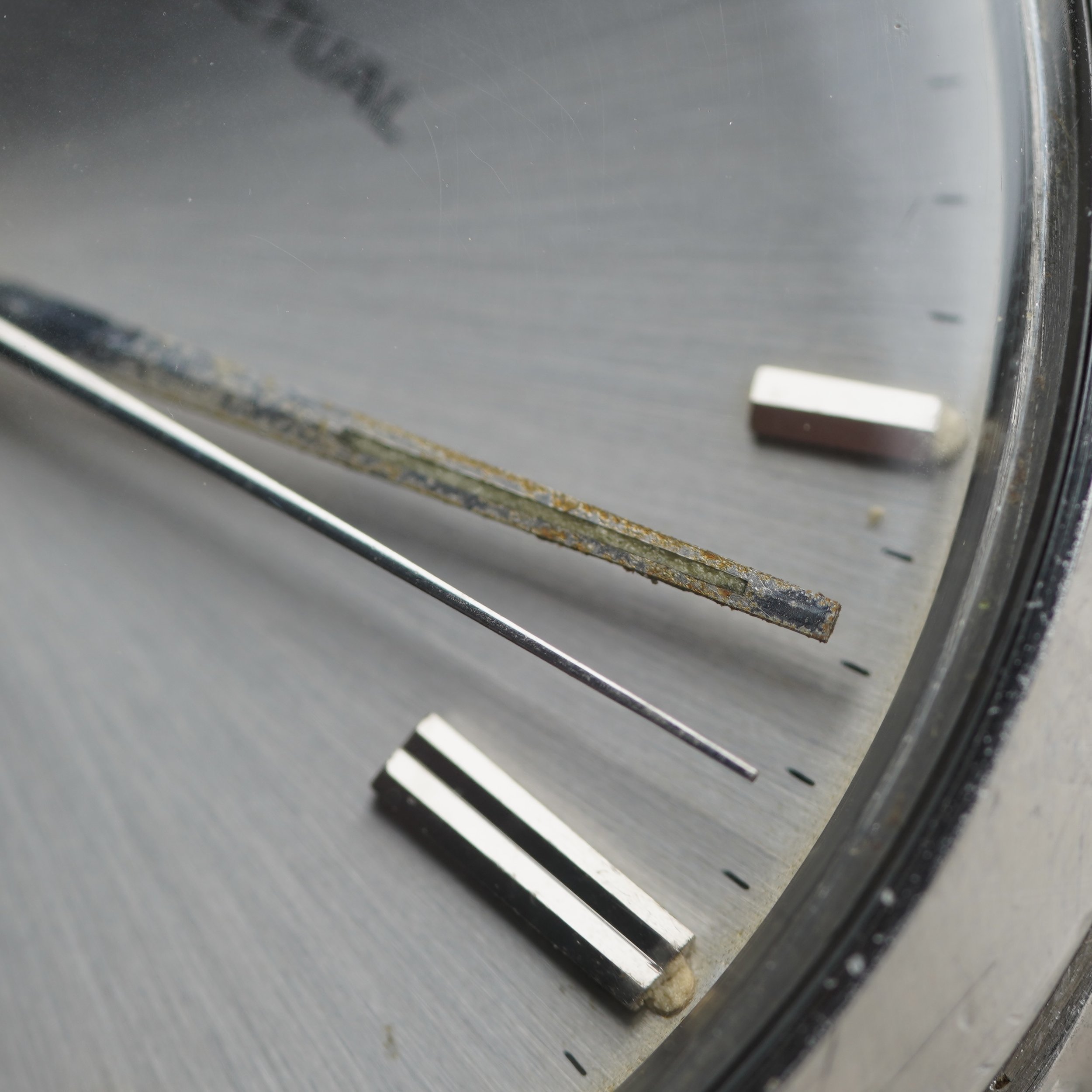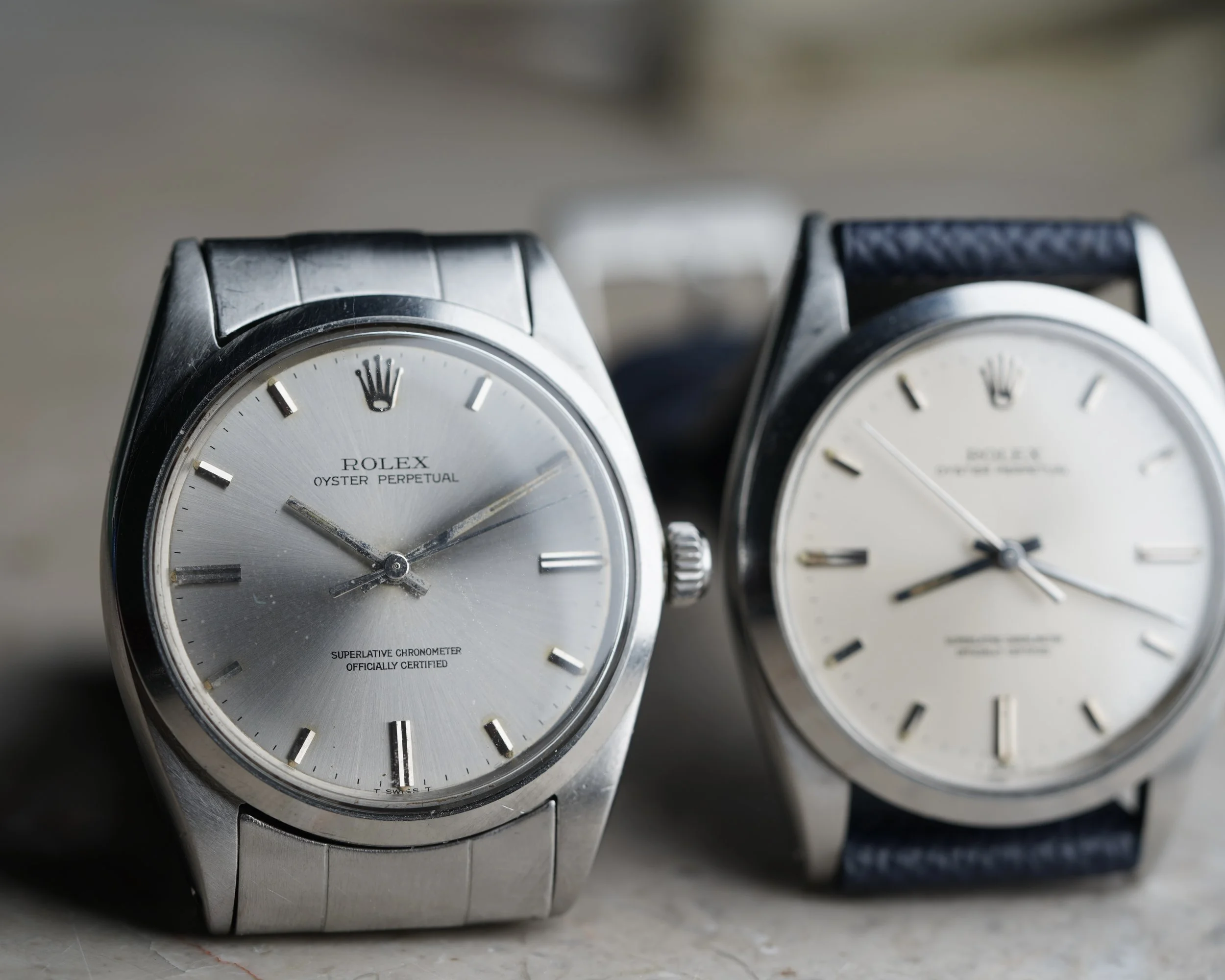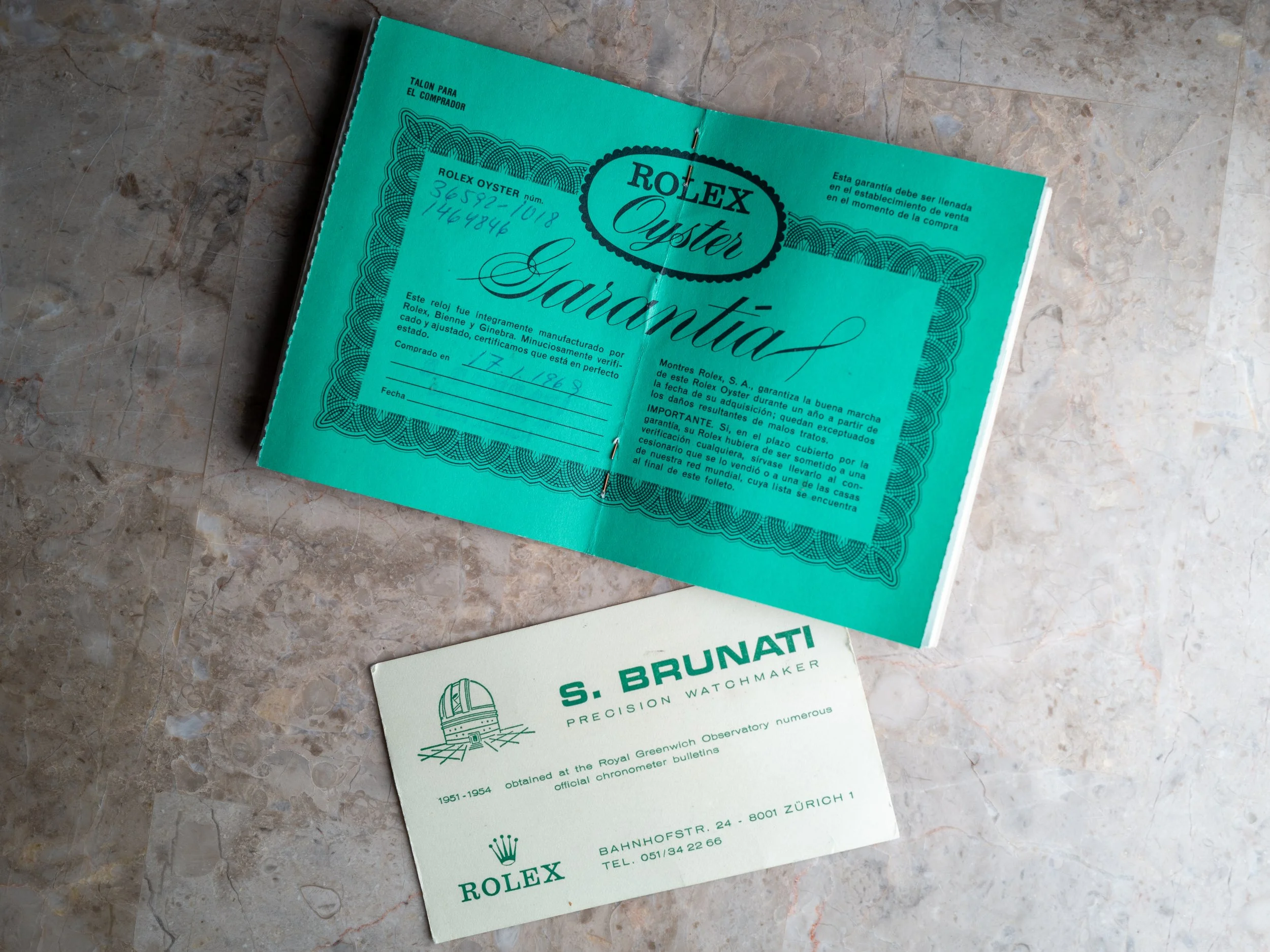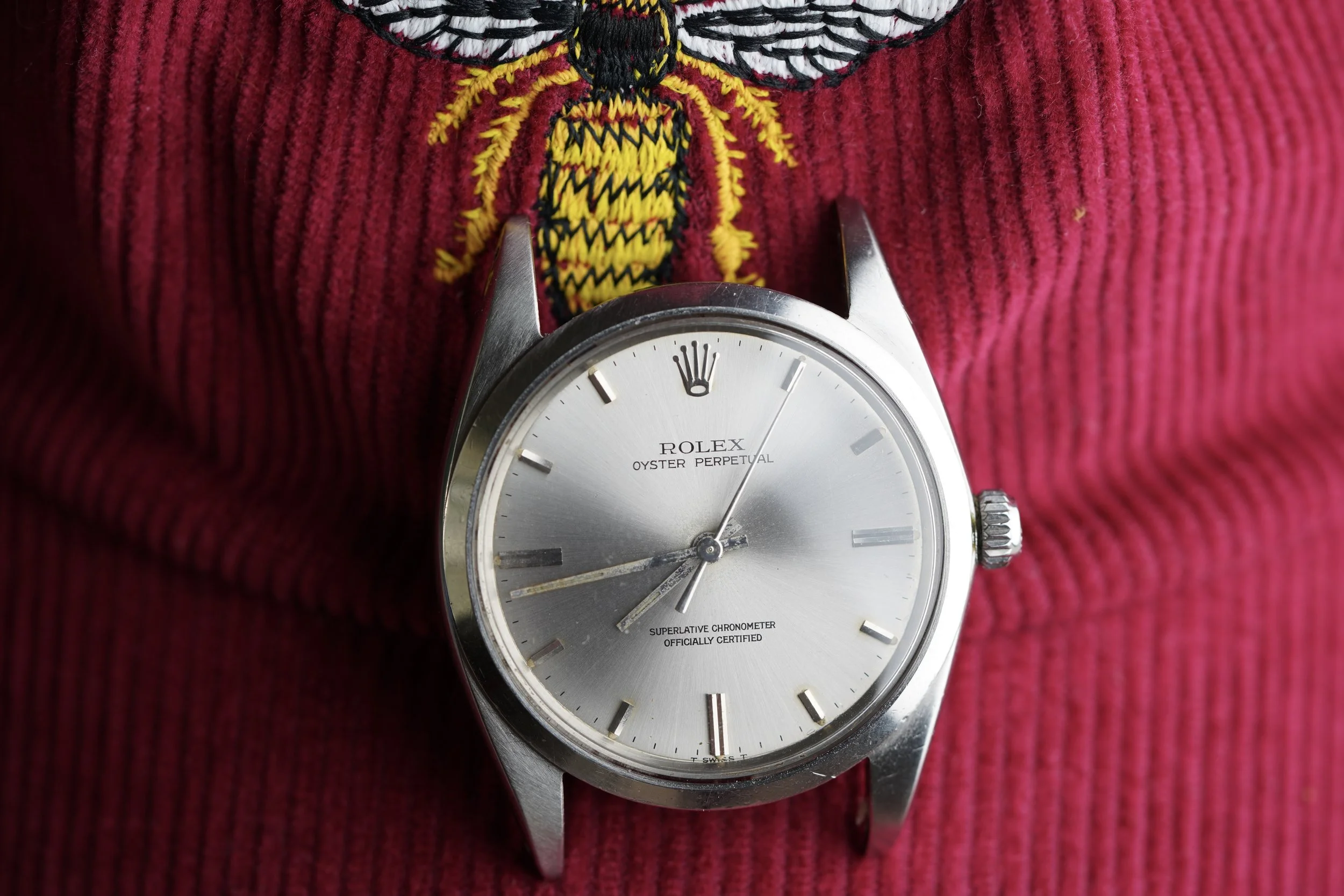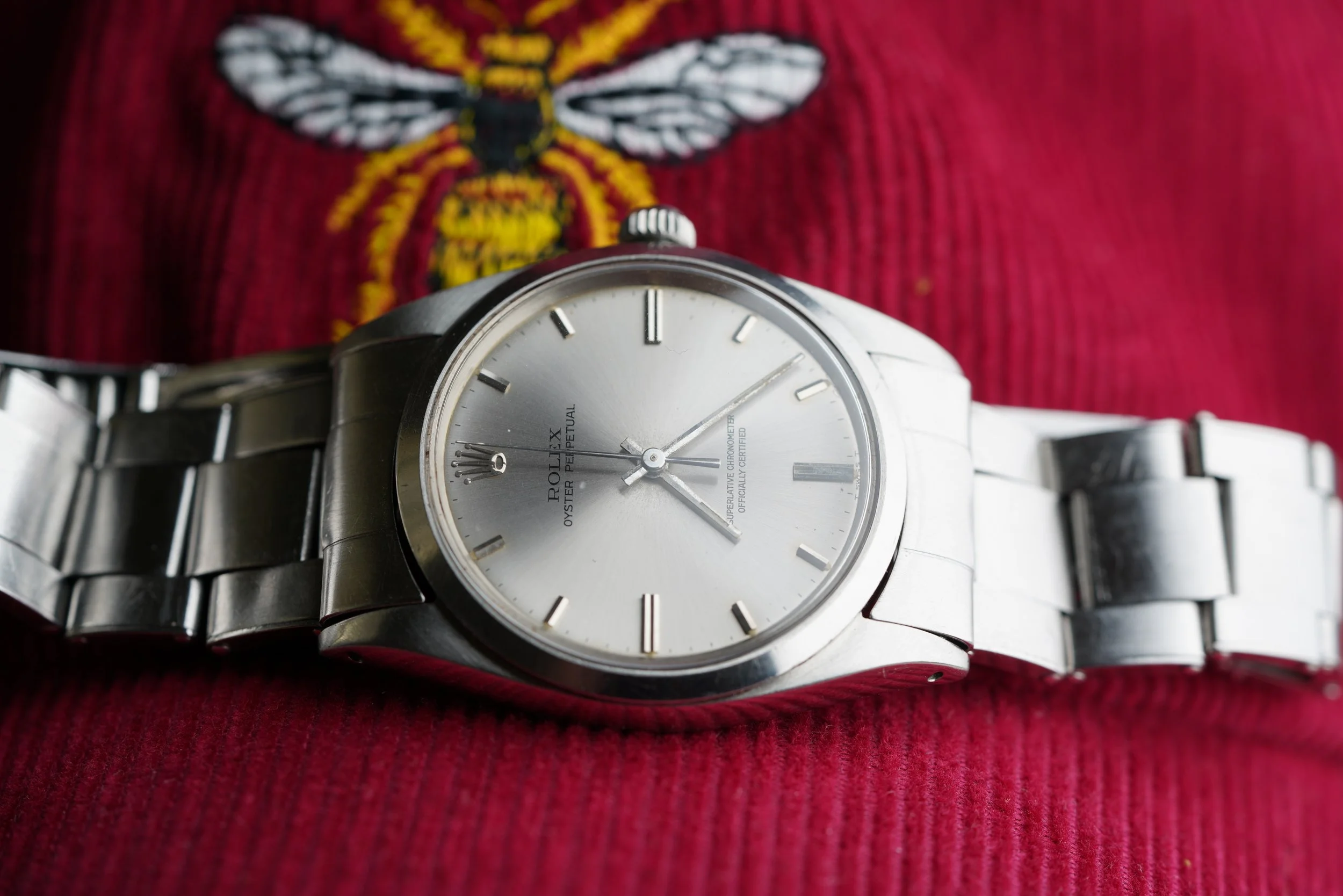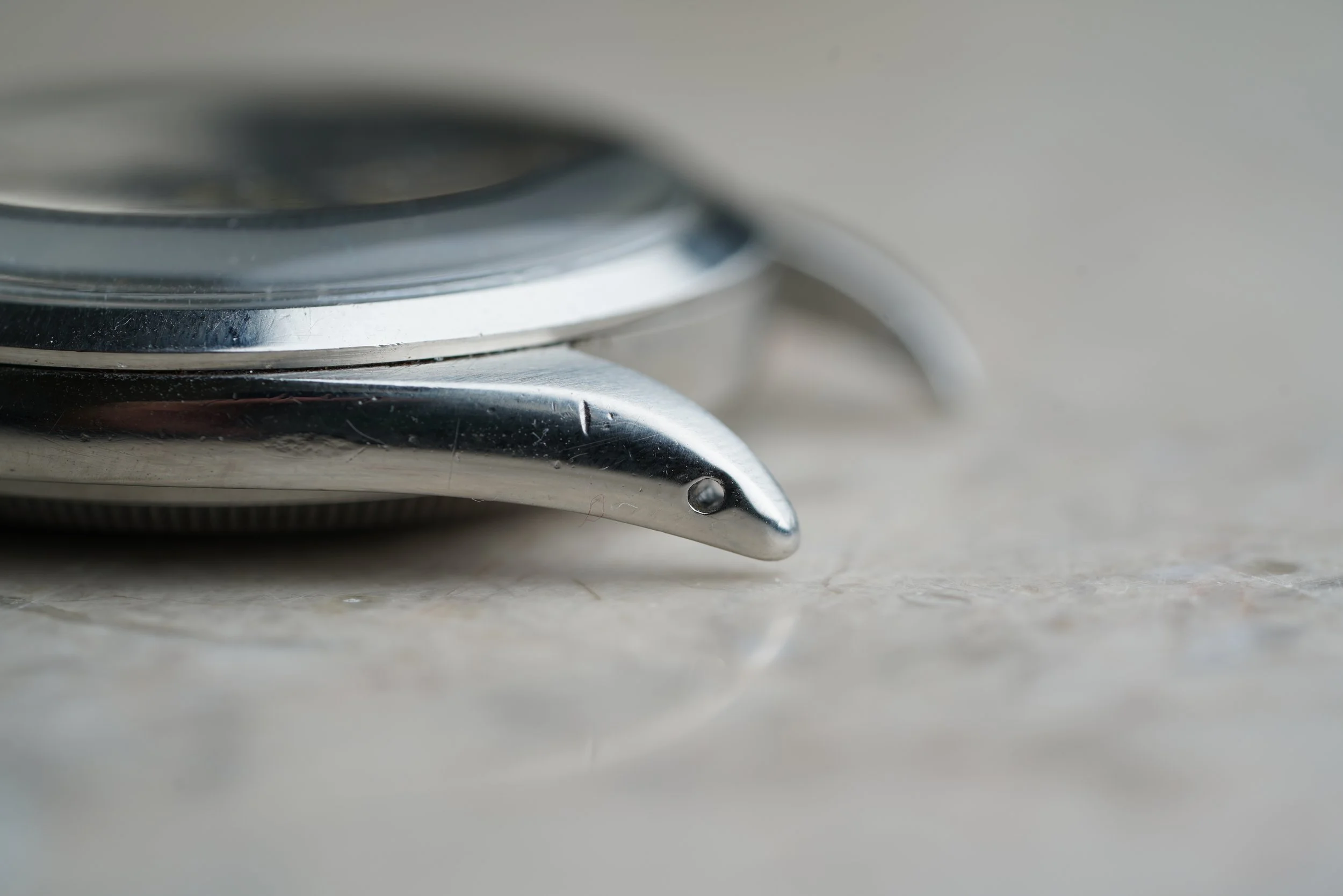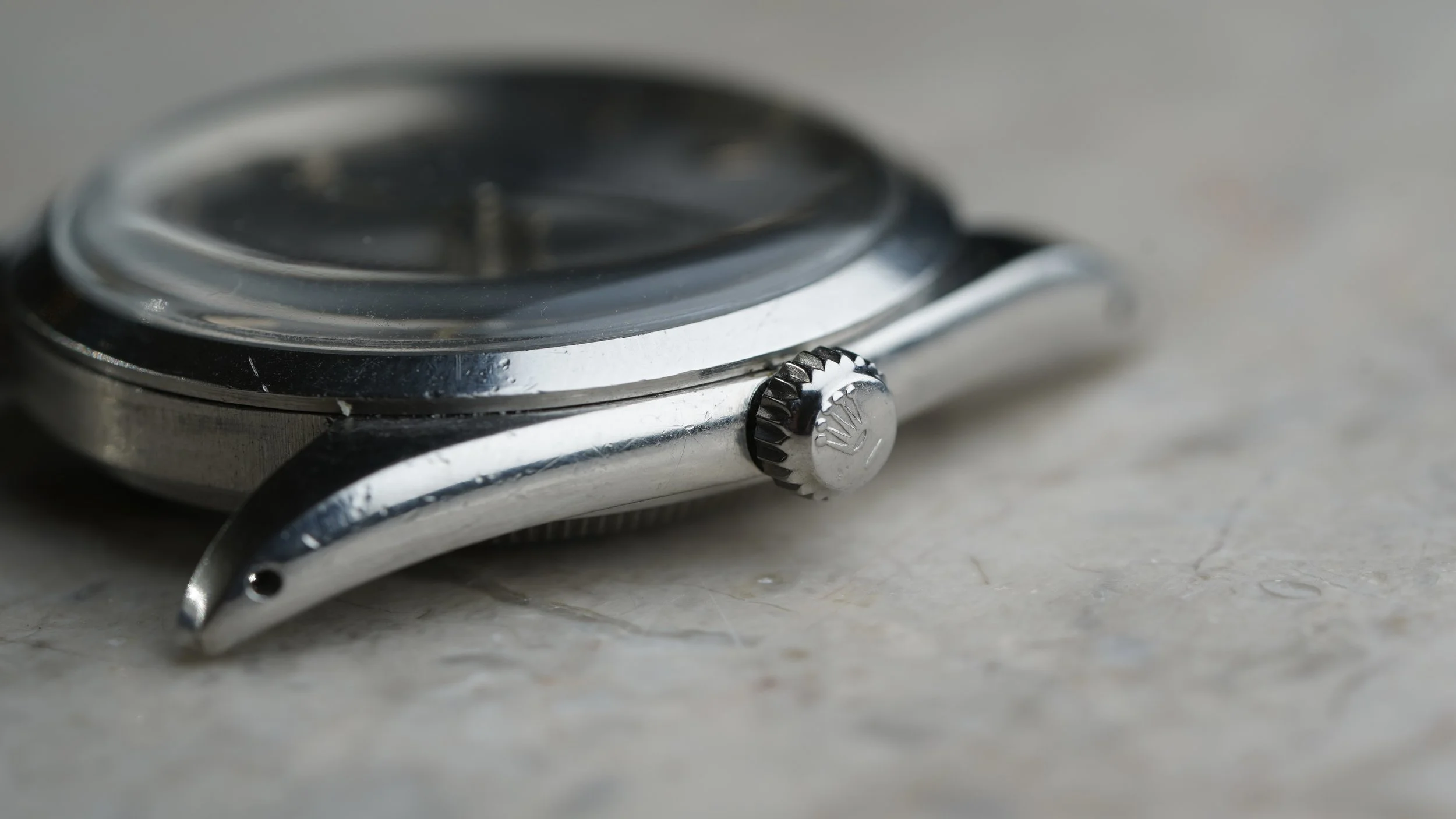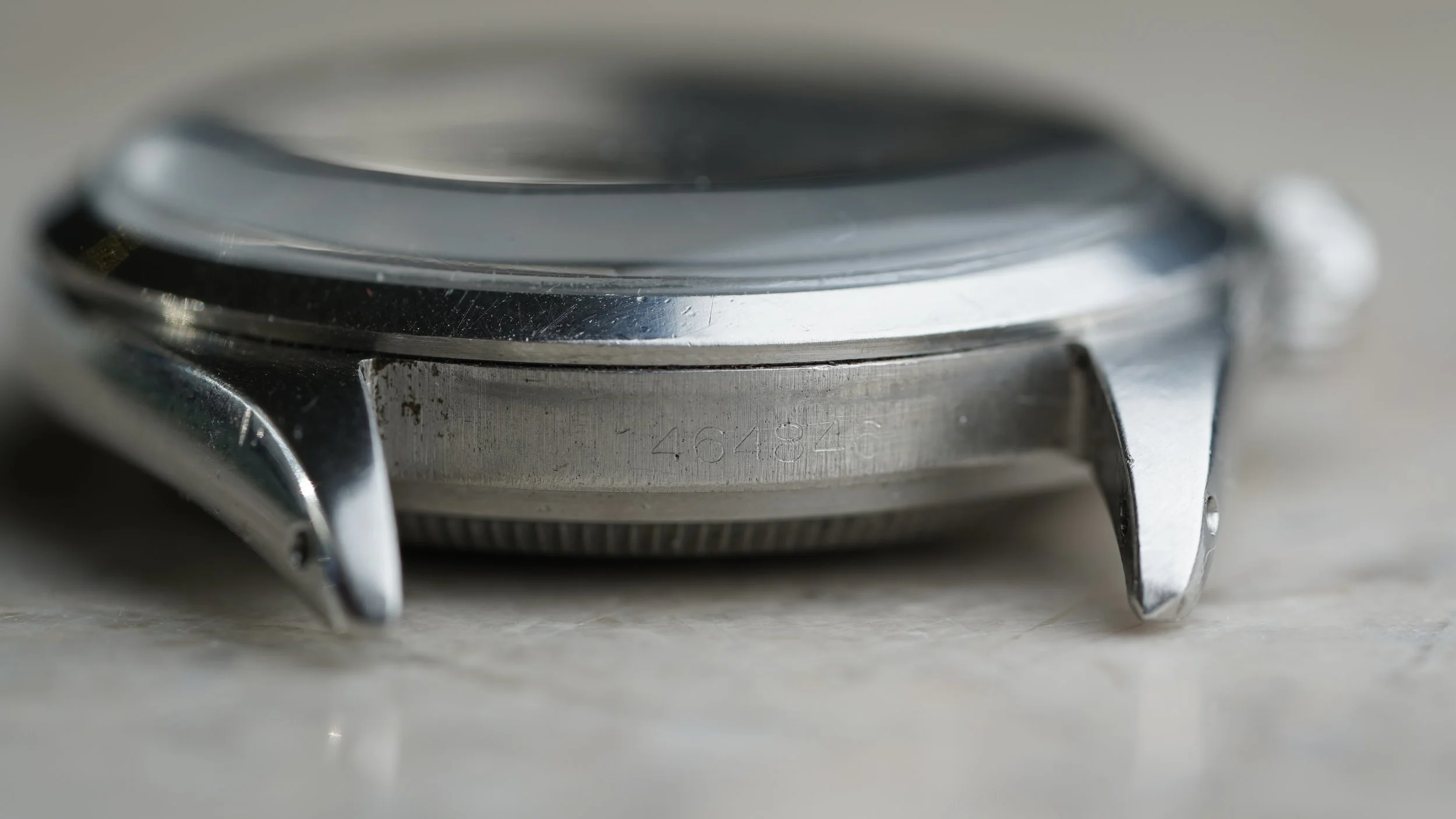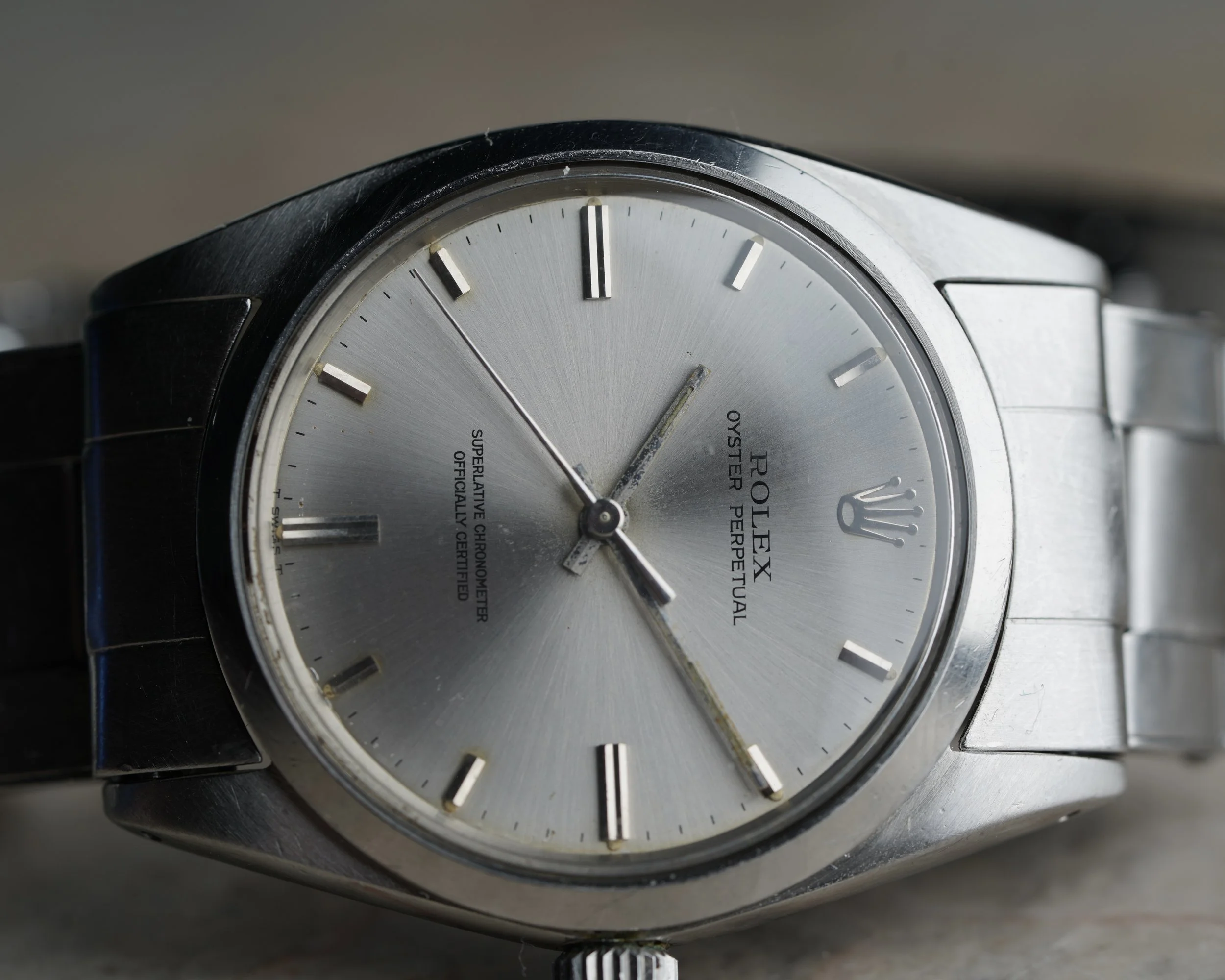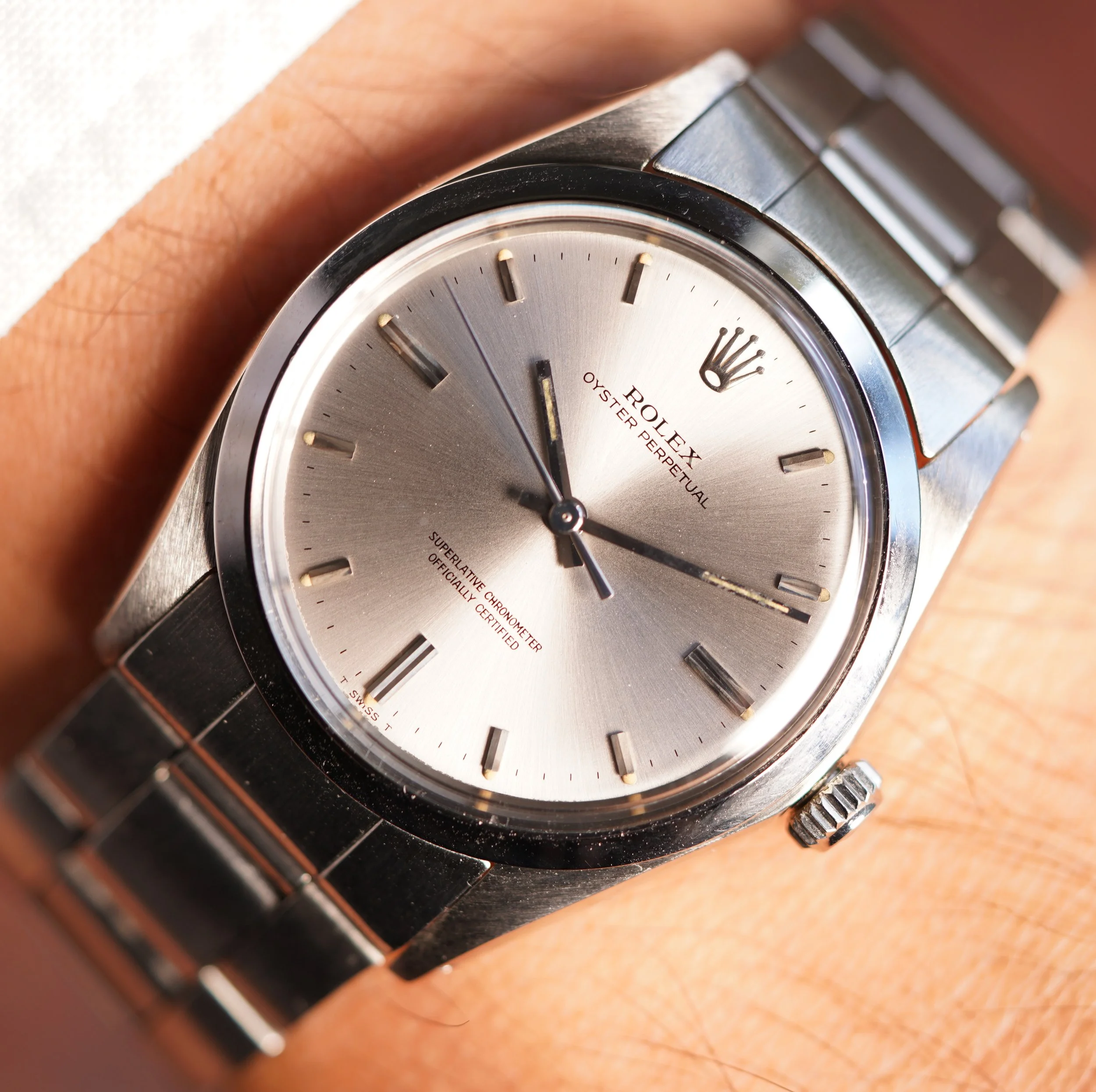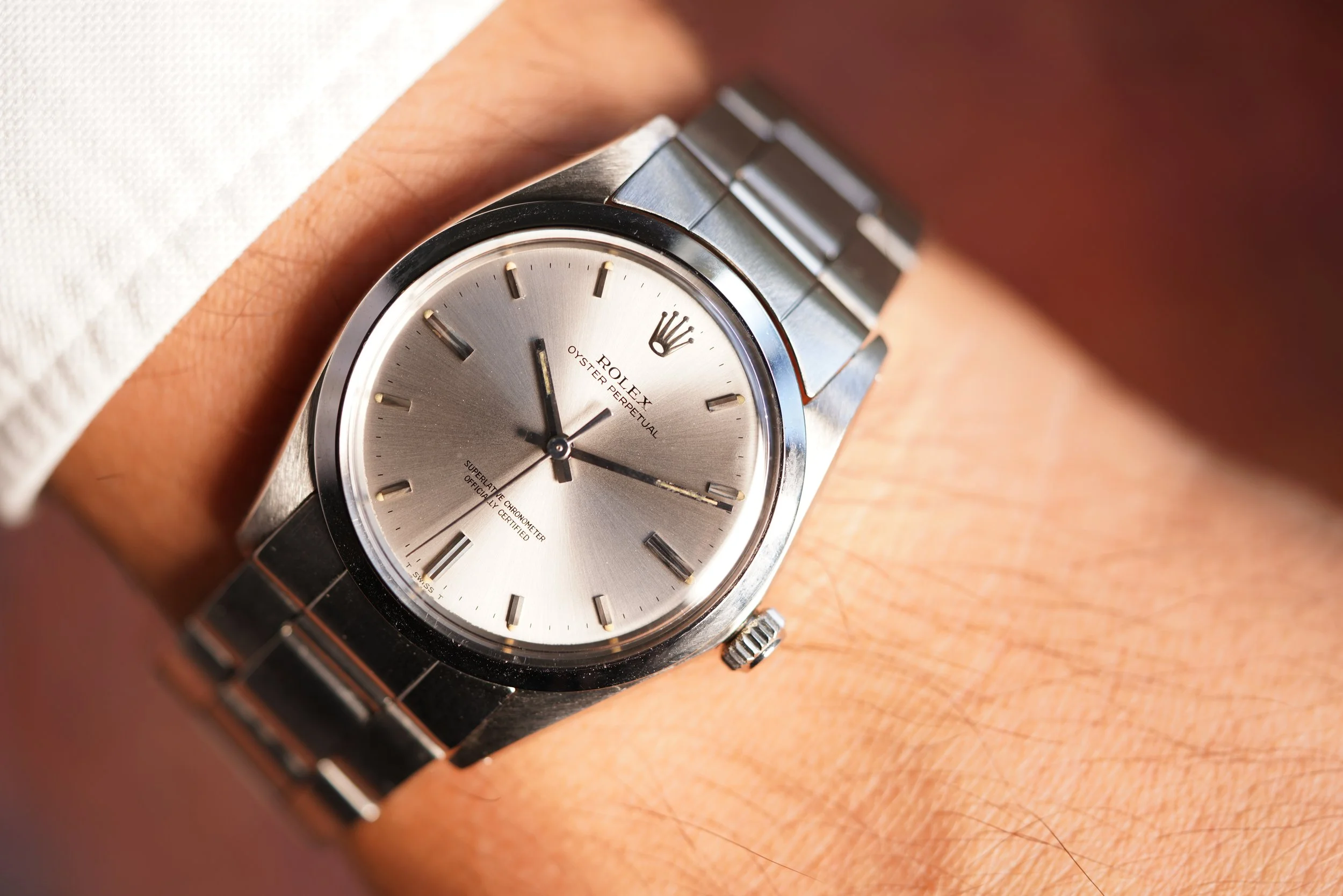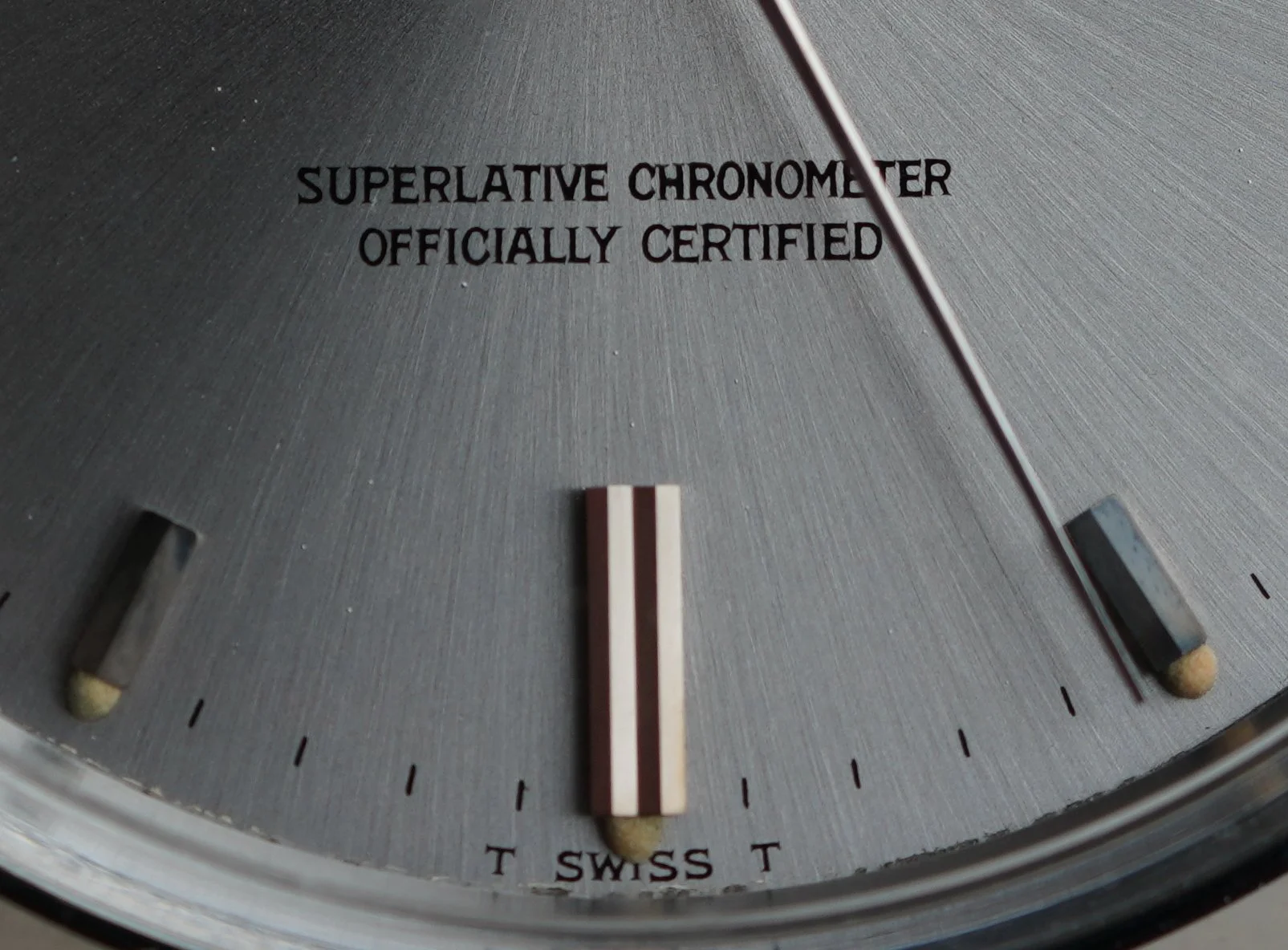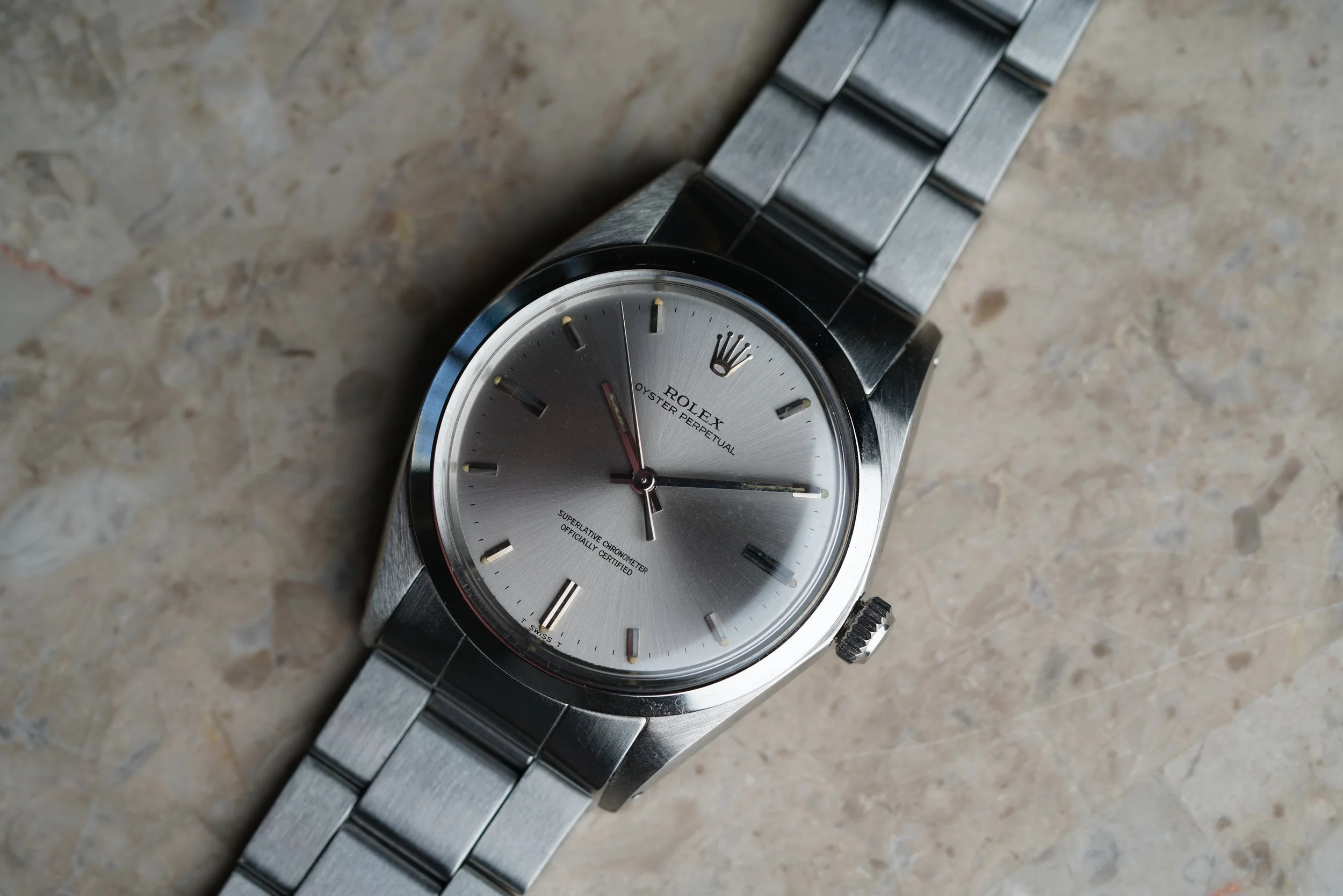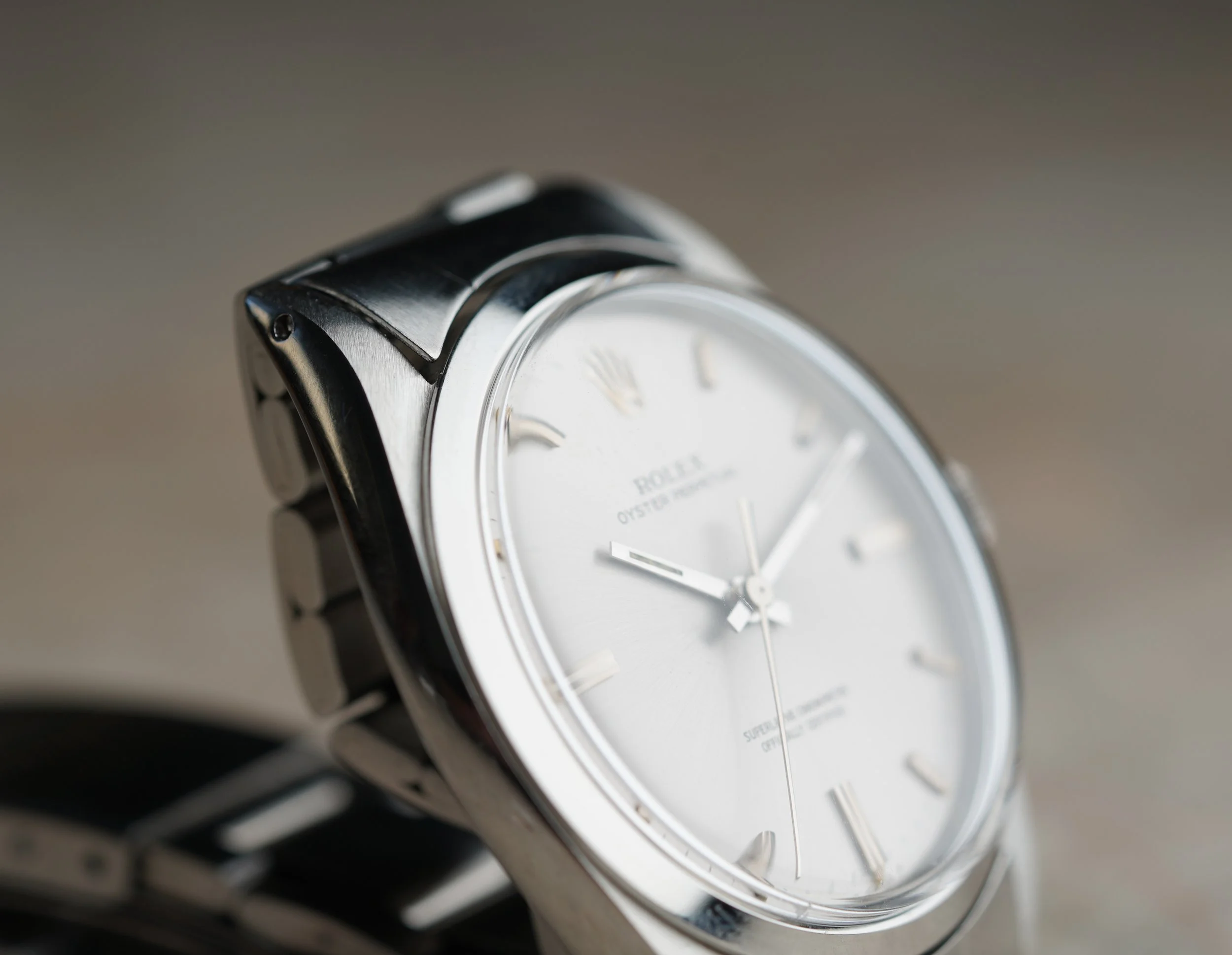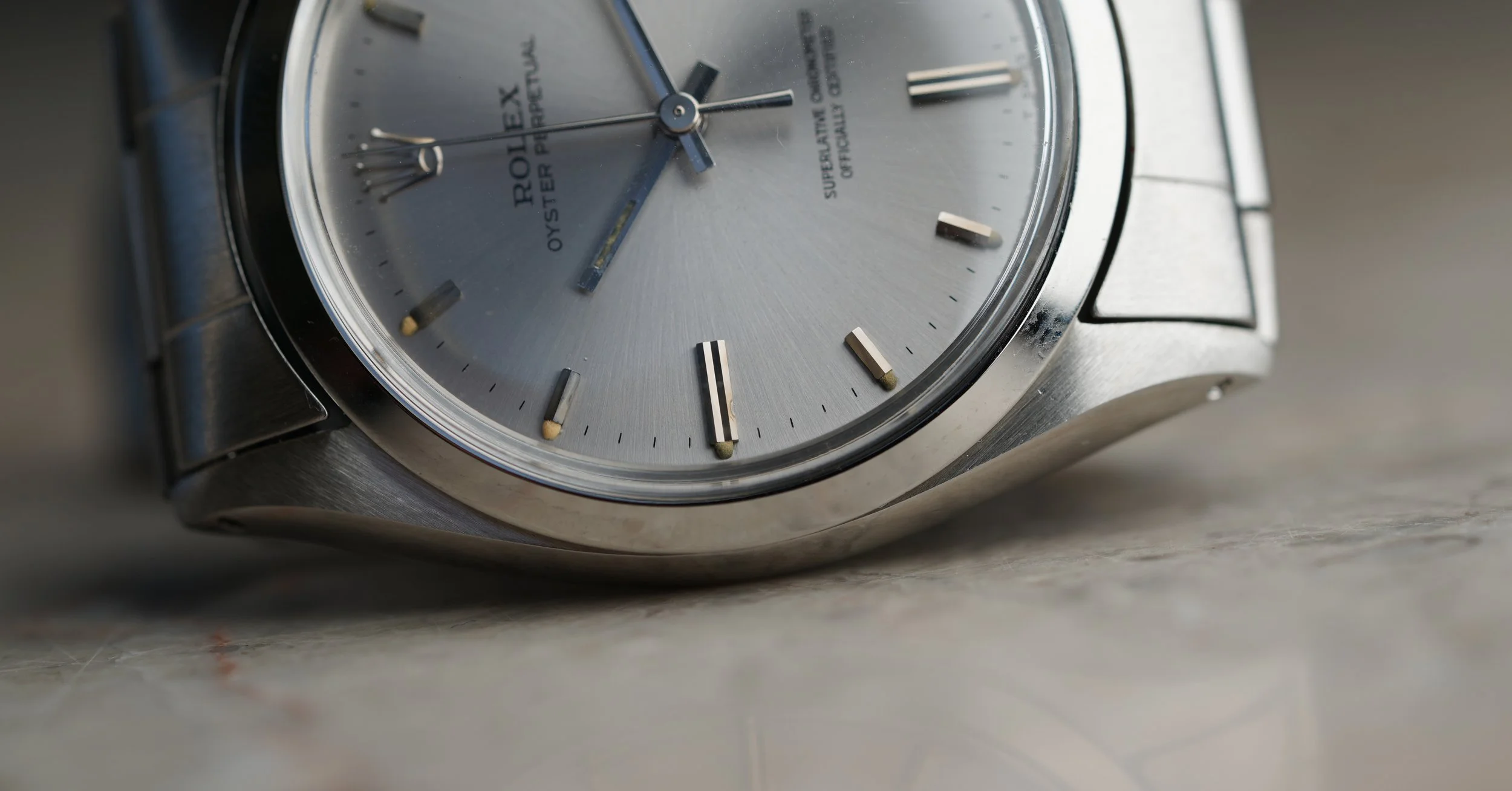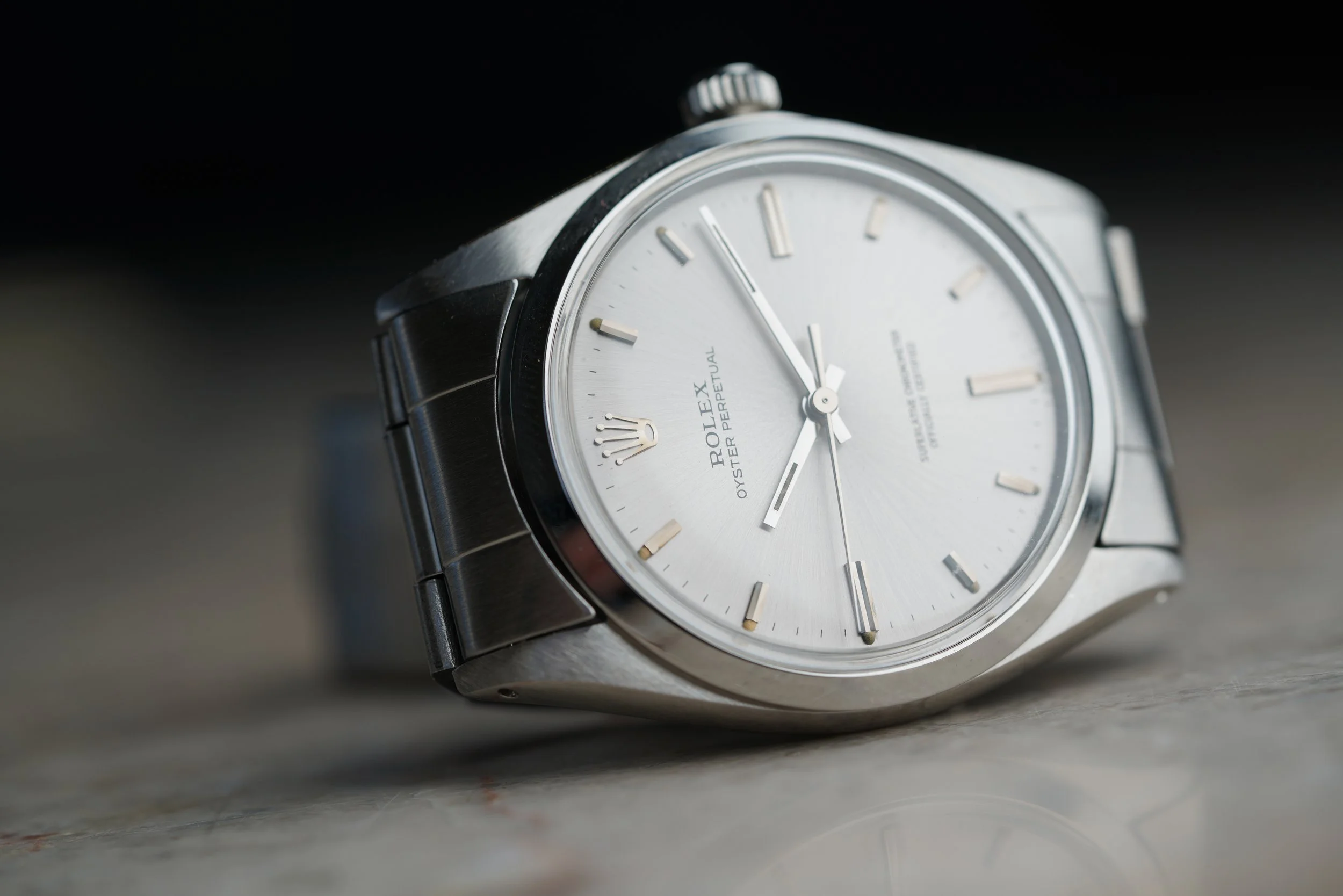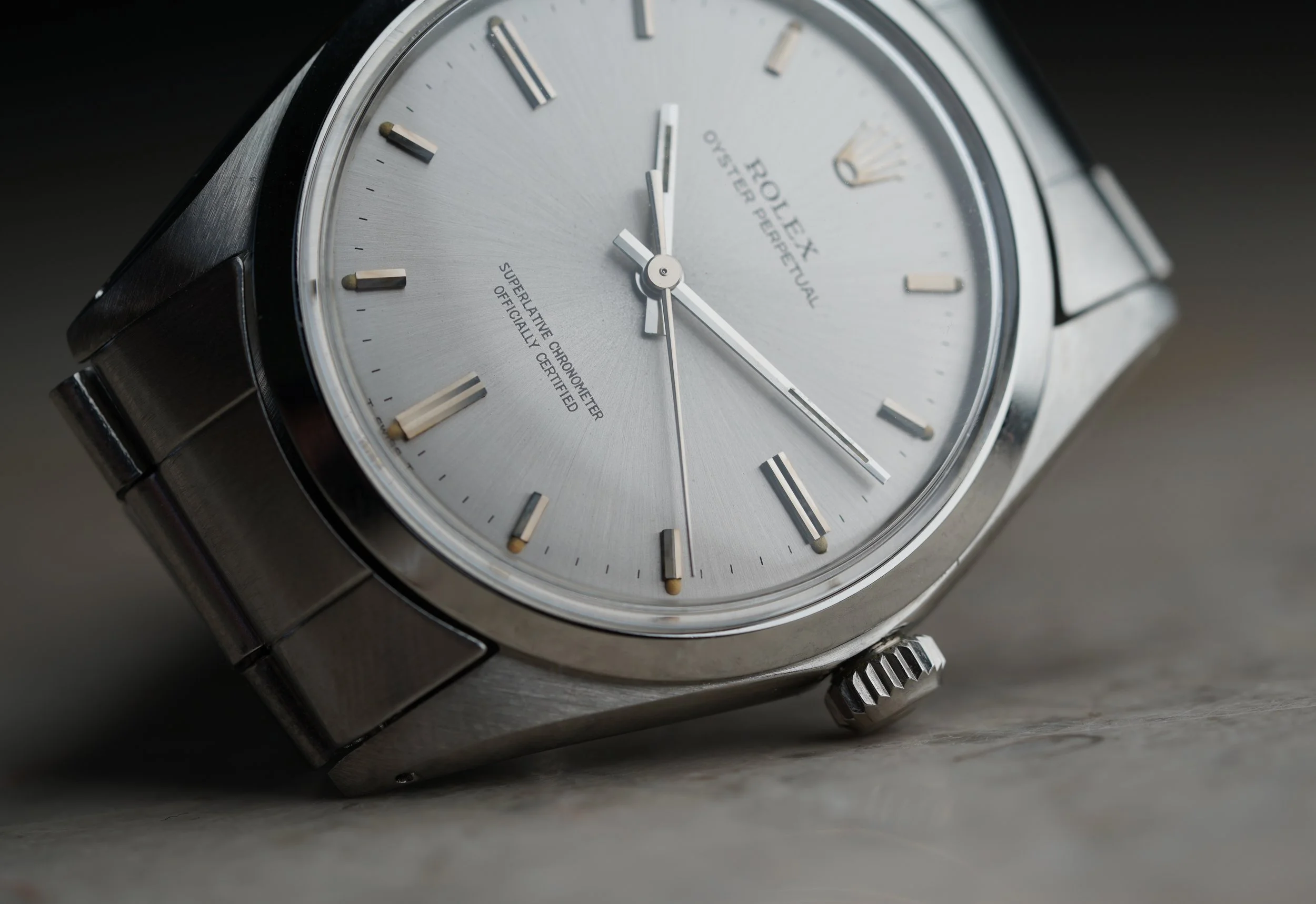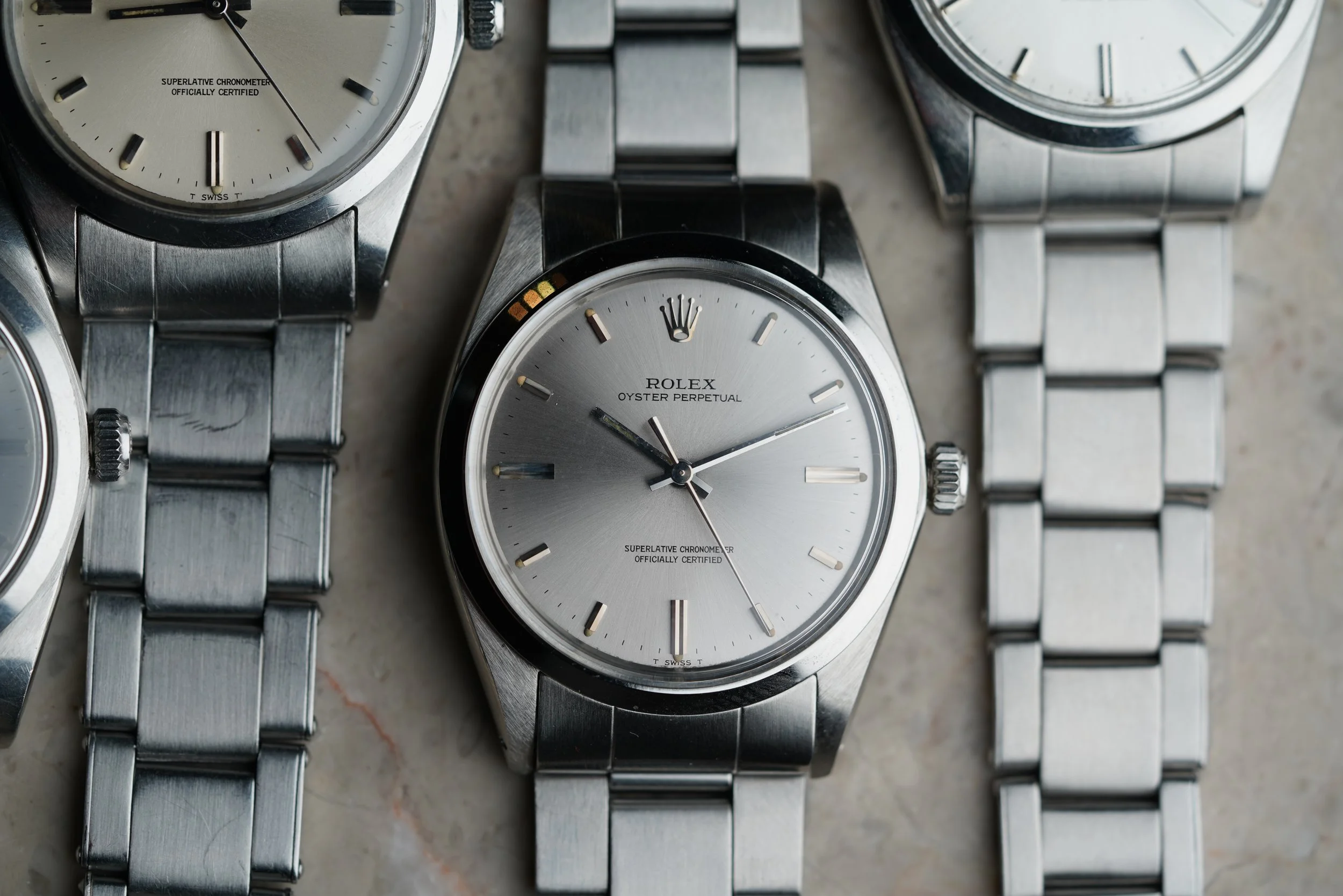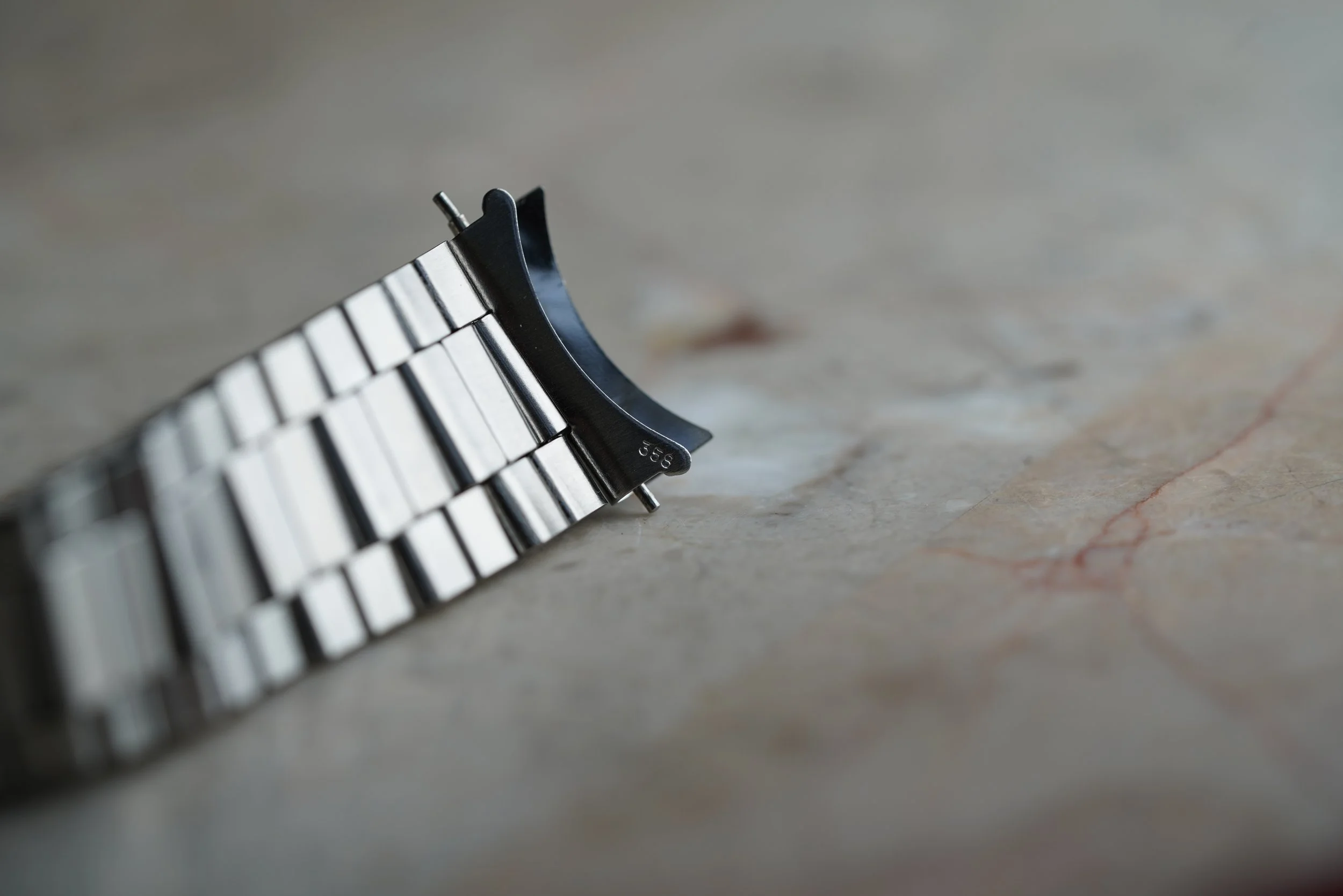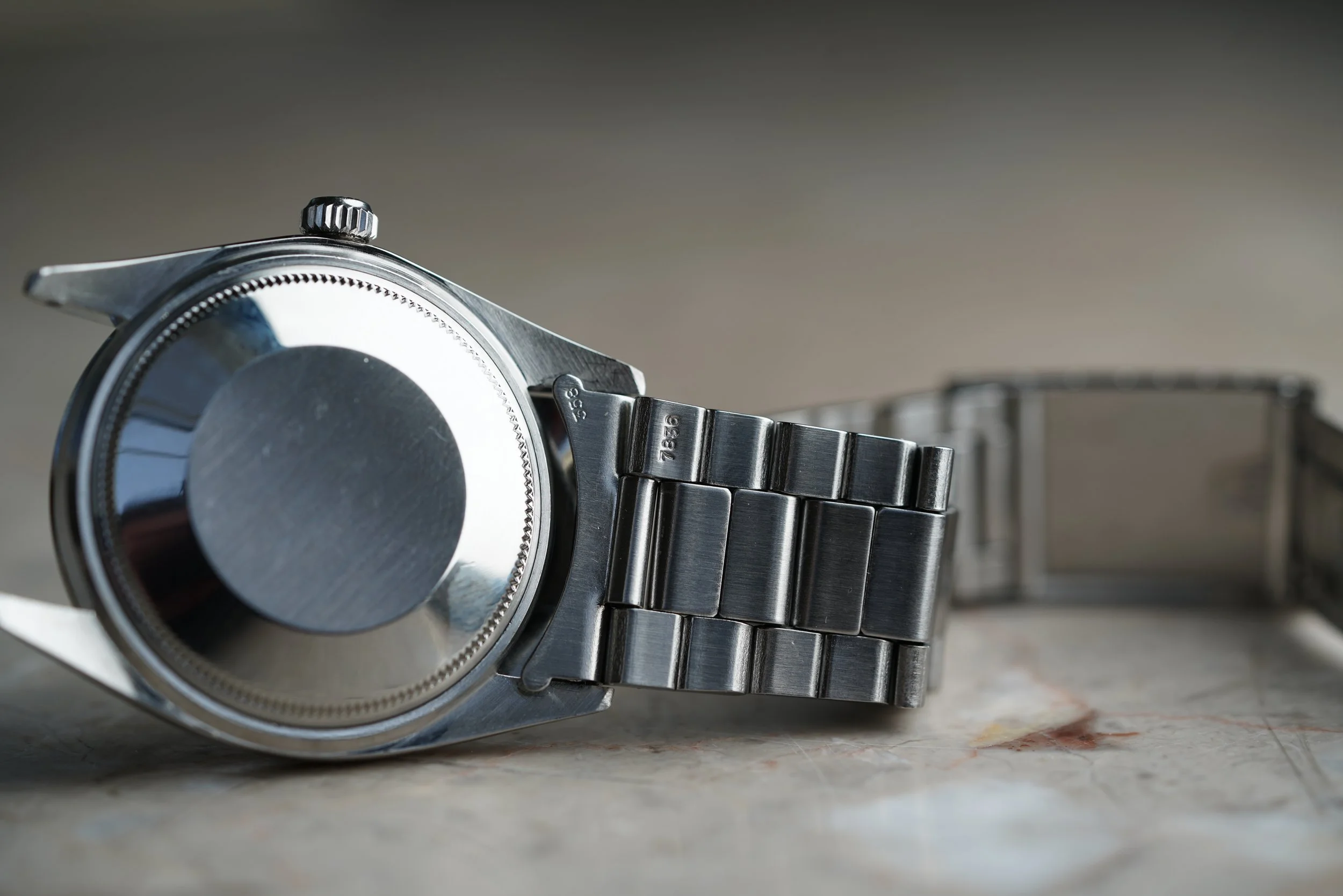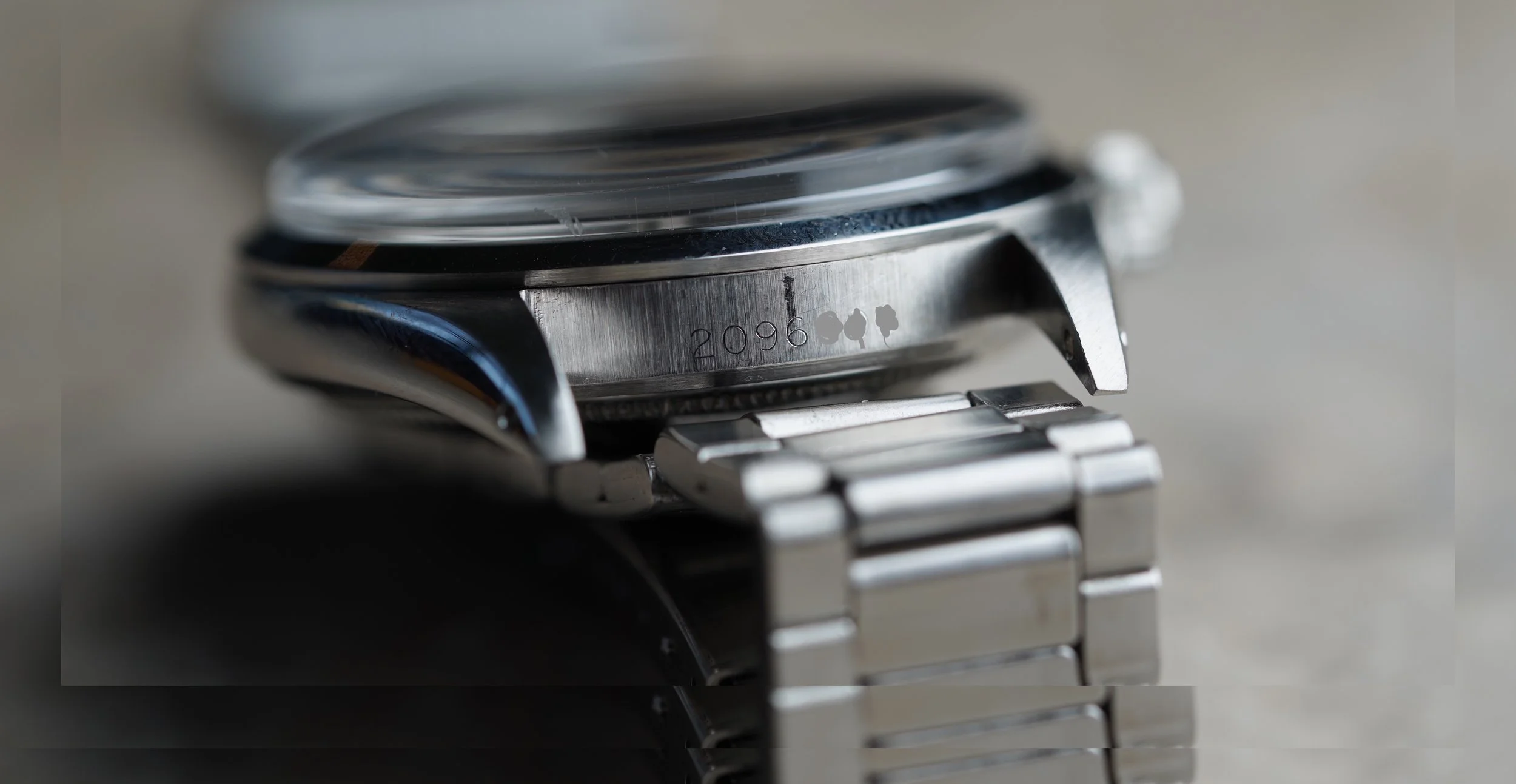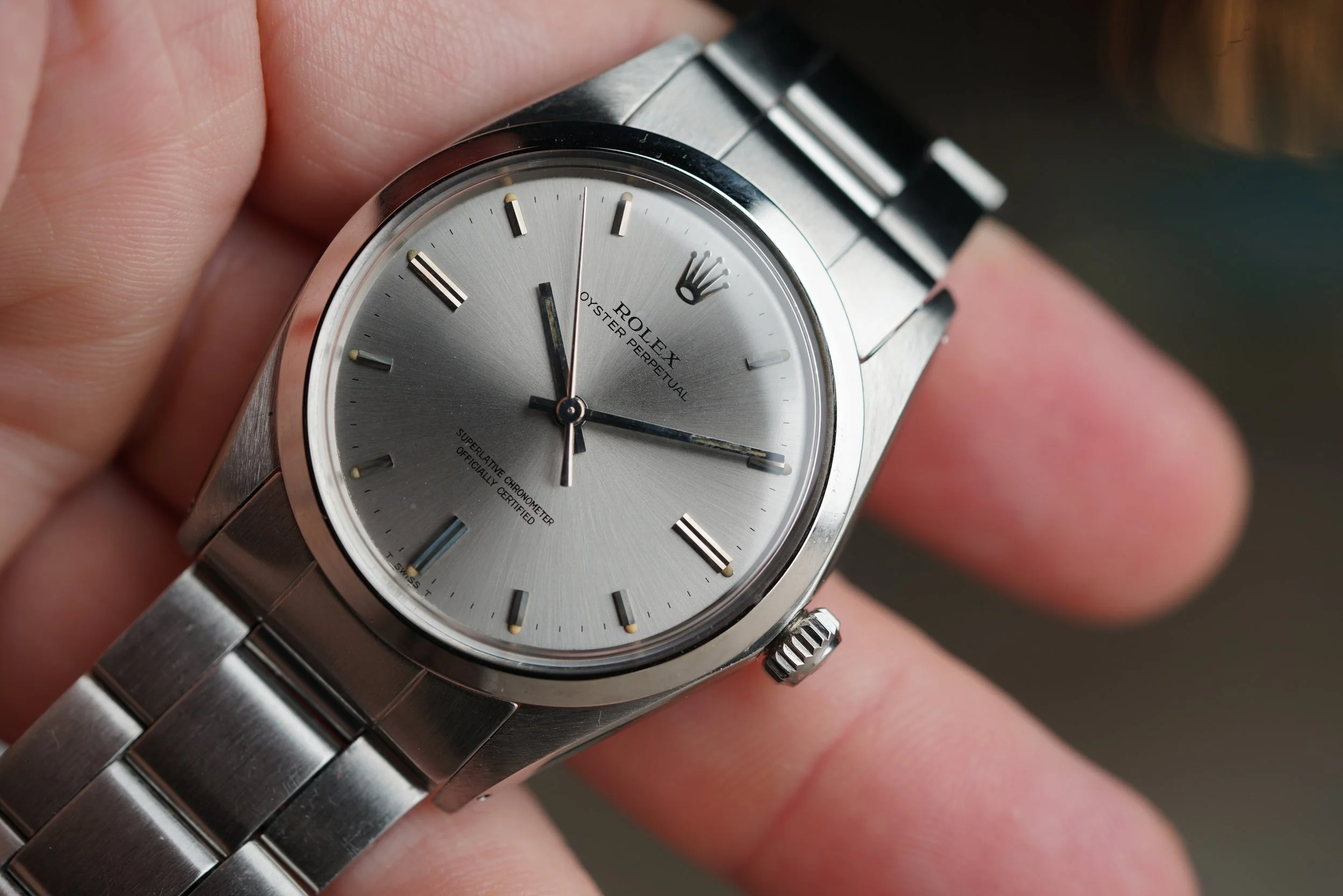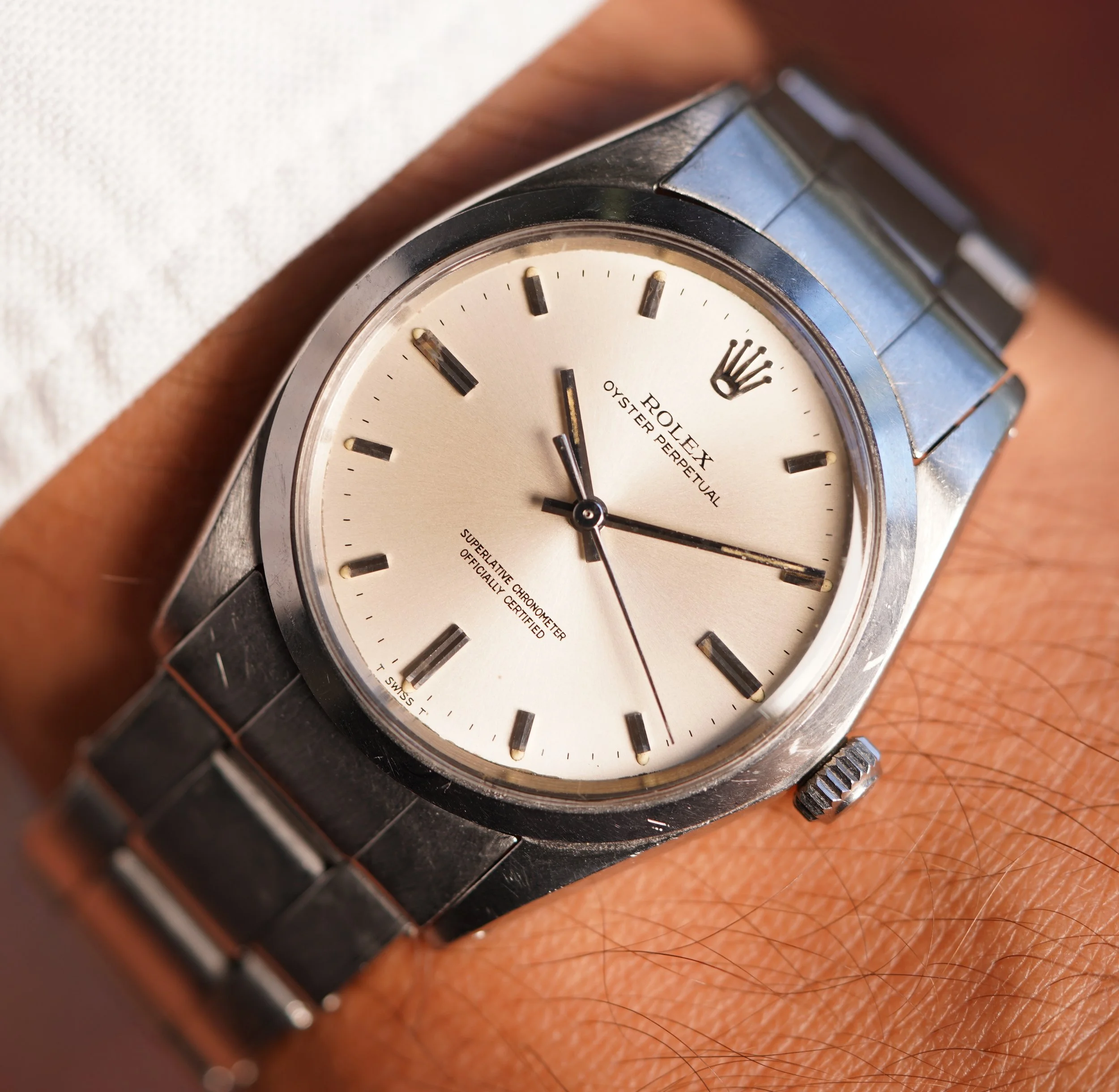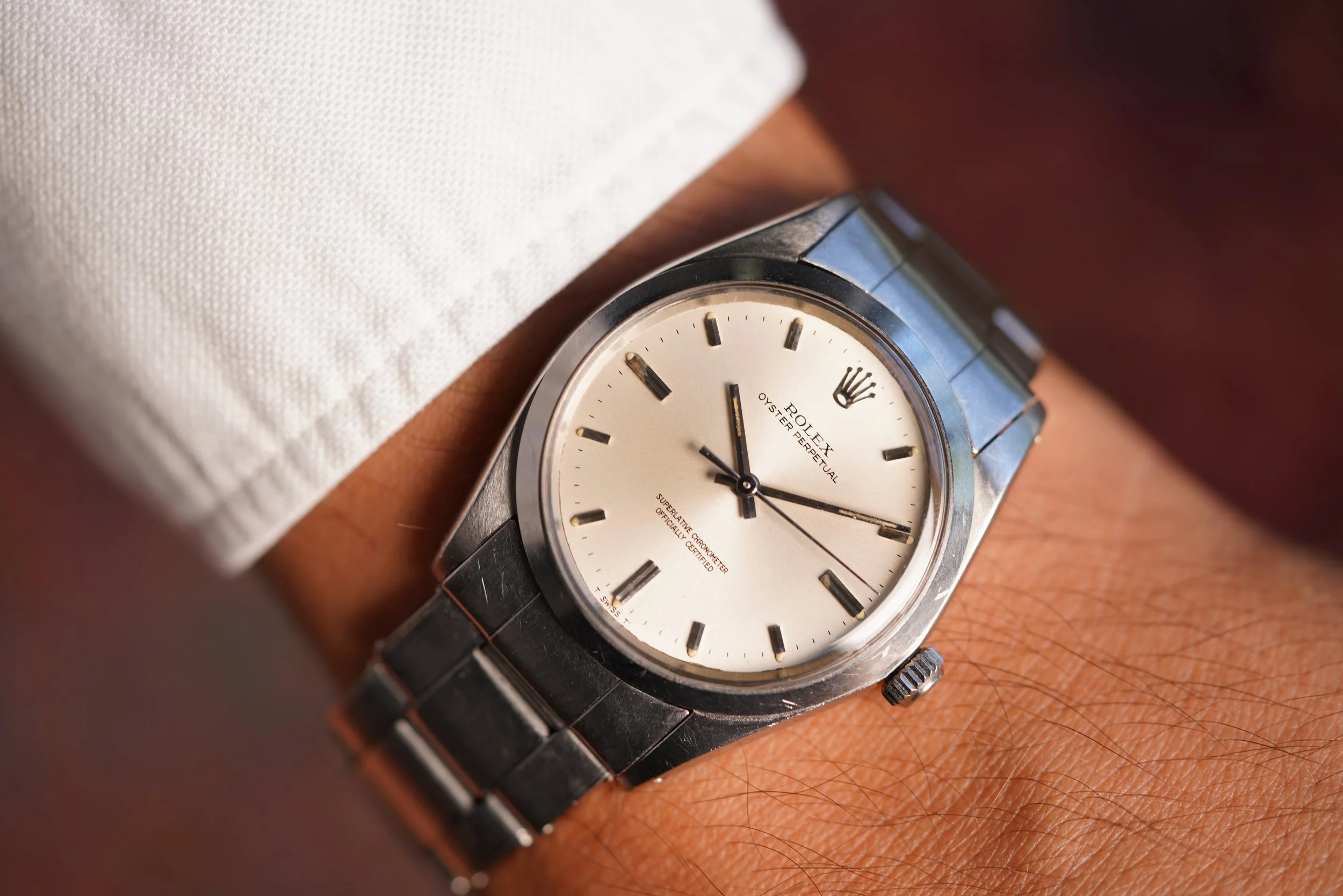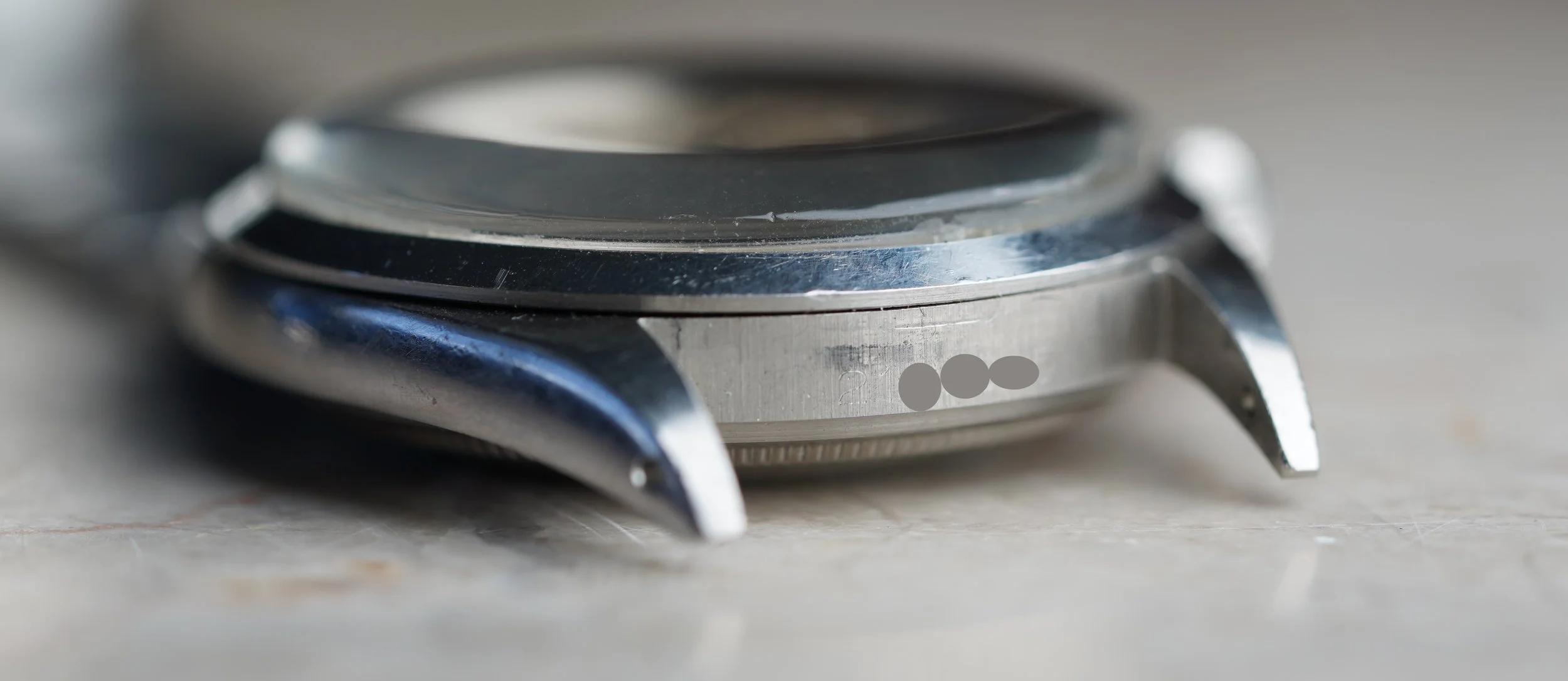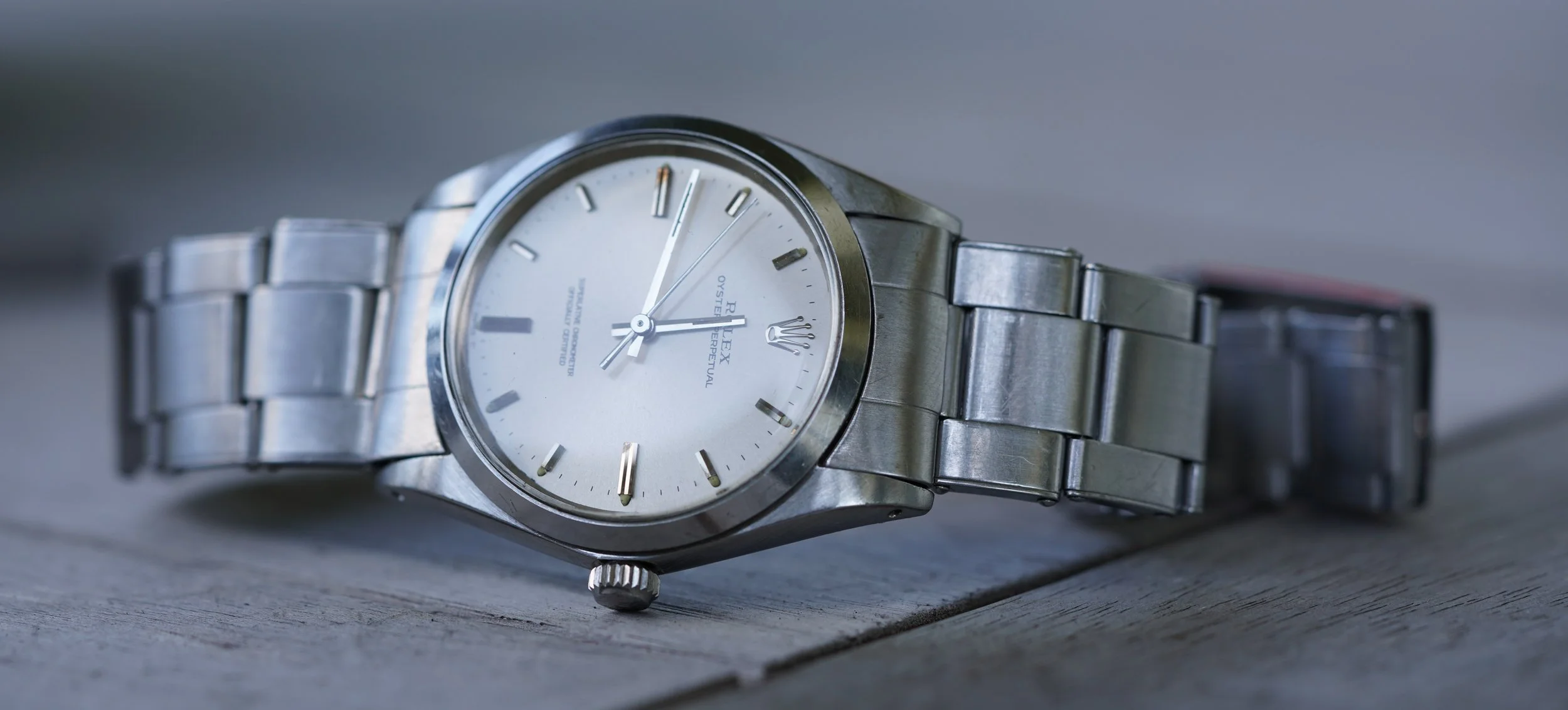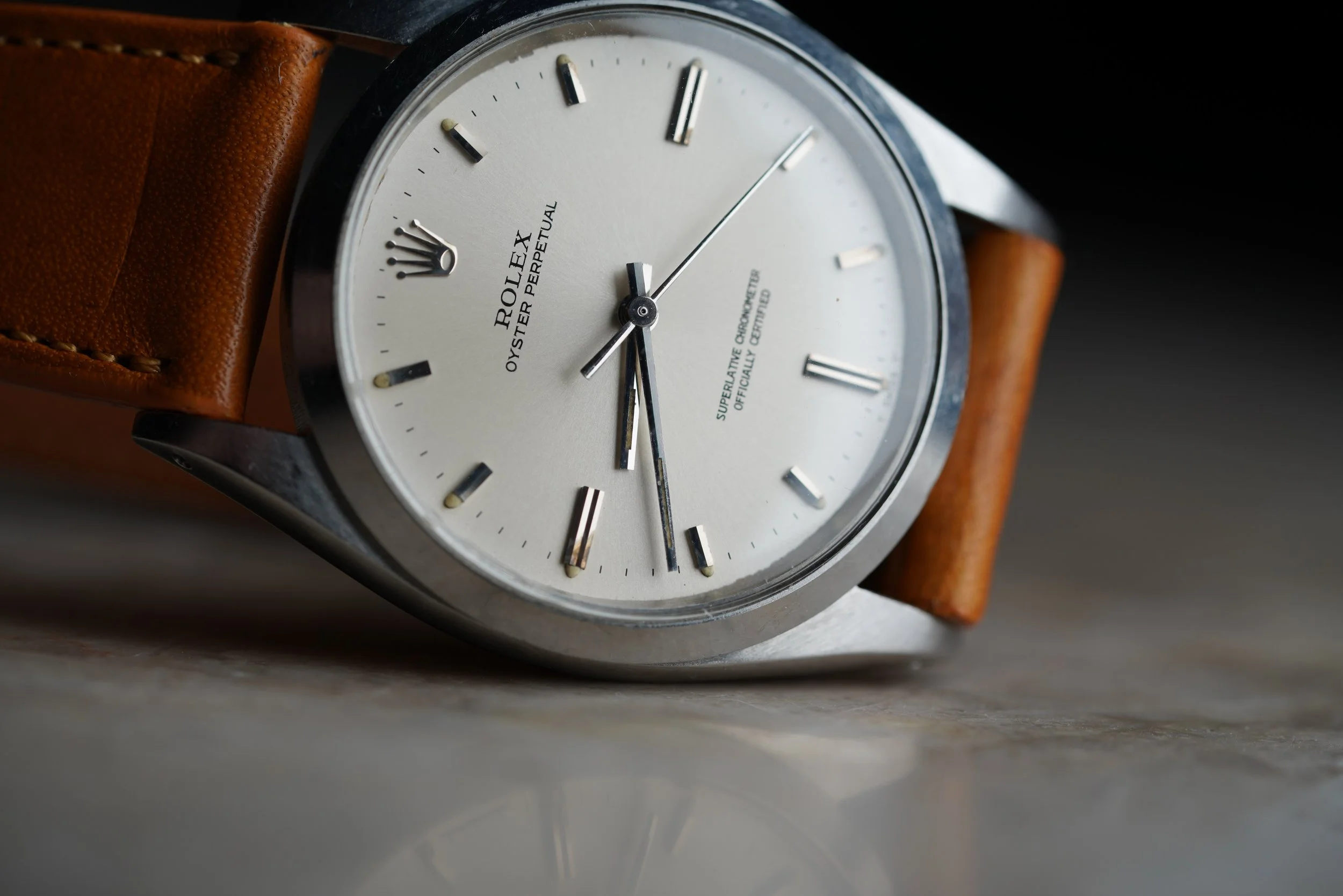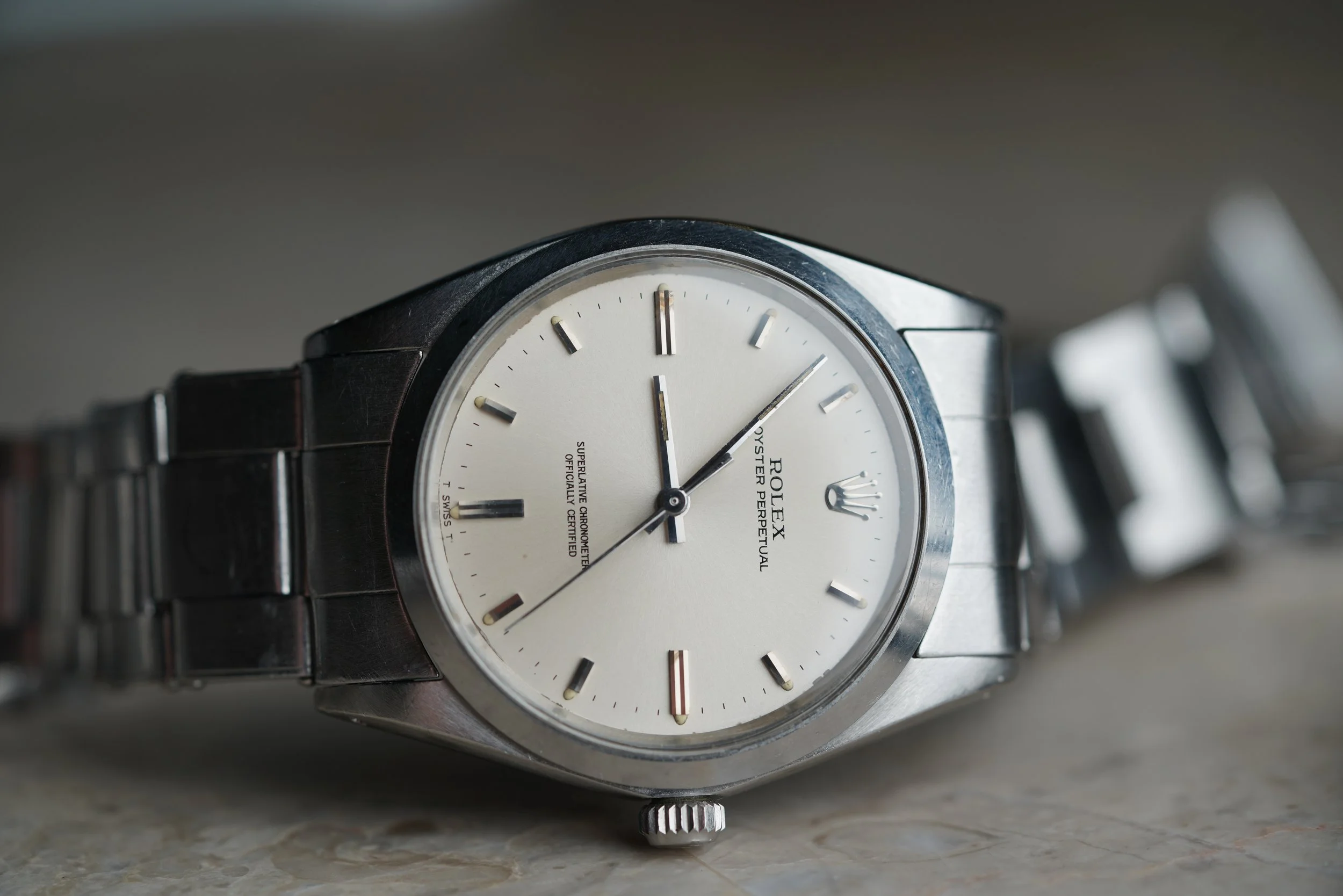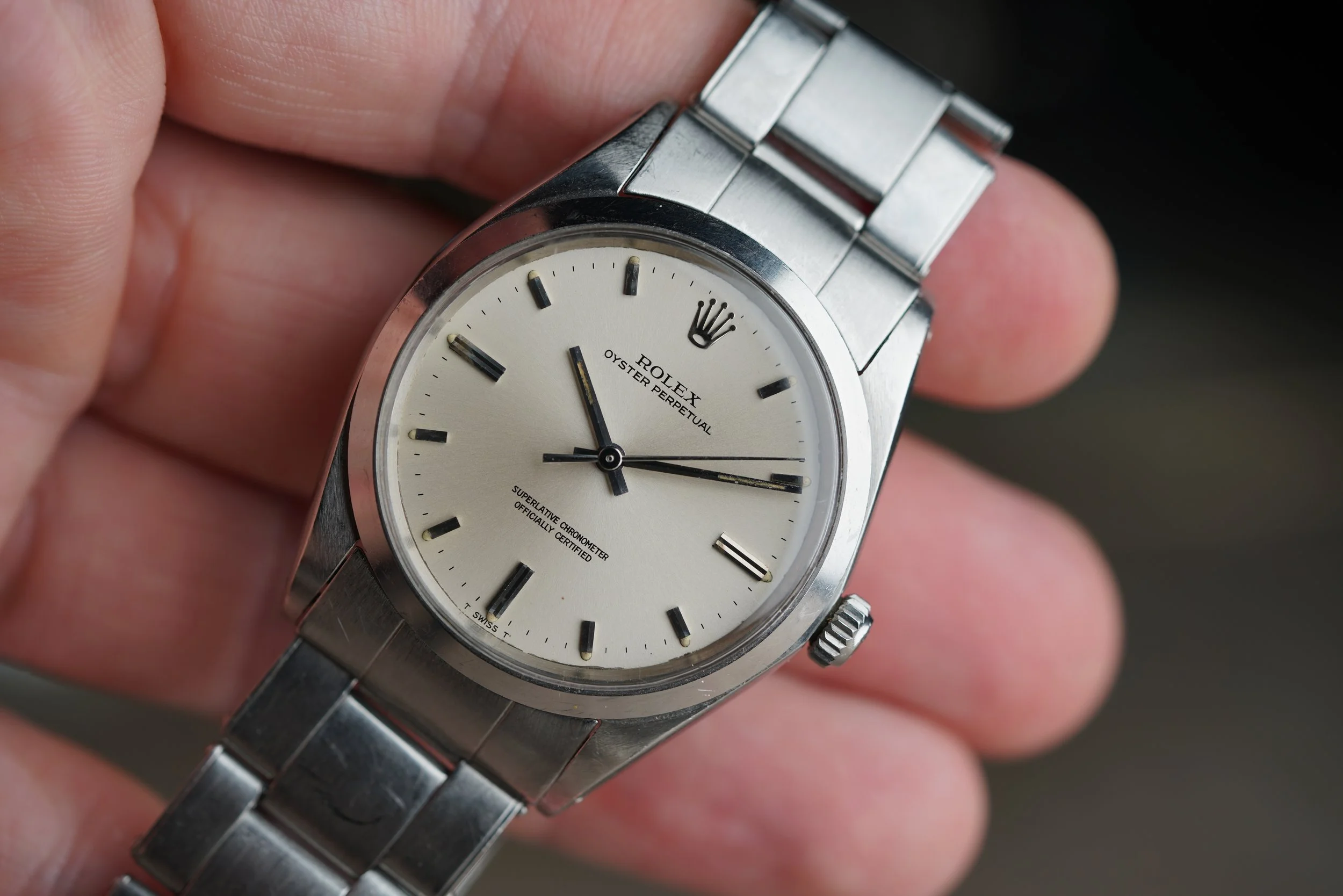Collector's Guide: Rolex Oyster Perpetual Reference 1018
By Charlie Dunne
The reference 1018 is an unusual Rolex model which was clearly not mass-produced. Oftentimes, examples appear to surface with overly polished cases or replaced dials. Throughout production the models were exclusively in steel cases and accompany smooth bezels. The 1018 finds itself as an outsiders amongst its steel siblings in the vintage Oyster Perpetual family. The case measures at an enhanced 36mm diameter (or 43mm lug-to-lug). The lug width measures 20mm and the height is very comfortable at only 11.5mm. In regard to collectability, the 1018 remains relatively under the radar, even to passionate Rolex enthusiasts (with the only exception seemingly in Japan). As we will later discuss, this is mostly due to the more balanced approach to refined designs in the mid 20th century.
As far as production, the data is not quite sufficient to give exact dates. However, the range of production exists from at least 1960 and marketing material highlighting the model at latest 1988. Again, it is worth reiterating these models were not mass produced, so I welcome any information or examples from collectors to be shared in the effort to better document the reference. If you would like to reach out, please email Charlie@StrictlyVintageWatches.com or send a message through the contact page.
Image credit: Photographer and vintage watch hunter James Fisk (Instagram: @jmsfisk)
Image credit: watchguy.co.uk
The reference 1018 will most often feature the calibre 1570, and in the earliest models the 1560. The calibre 1560 is an automatic movement operating at 18,000 vbh. It remained in production from circa 1959-1965. The 1570 replaced the 1560 around this period with a higher VPH of 19,800, an increased power reserve of 48 hours and remained in production until circa 1974. The height of a 1018 will be the same regardless of the calibre.
“Milky-silver” dial reference 1018
Comparable References
Reference 6614
The Rolex Oyster Perpetual reference 6614 is the predecessor reference to the 1018. The case dimensions are both 36mm in diameter (43mm lug-to-lug). The case back is slightly less raised with a thinner calibre in the 6614 at only 11mm thick. The 6614 shares the lapi196dated 3, 6, and 9 that are elongated, however it has longer hour markers throughout the rest of the dial with the same channeled setting.
The reference 6614 features the applied “Rolex” branding and a shorter, compact coronet. The dial plates used are absent of “Superlative” which would be adopted in the late 1950s.
Vintage Rolex Oyster Perpetual reference 6614 (left) and reference 1018 (right).
Oyster Precision Reference 6425
A reference 1018 and a Rolex Oyster Precision reference 6425.
A reference 1018 and a Rolex Oyster Precision reference 6425.
Reference 1002
An unpolished 34mm Rolex Oyster Perpetual reference 1002 (left) and 36mm reference 1018 (right). Note: The soleil finish is extremely faint on the 1018s with “milky-silver” dials.
One of the very appealing elements of the ref. 1018 is the smaller sized font on the dial. The “Oyster Perpetual” and “Superlative Chronometer Officially Certified” are centered, not extending beyond the hour markers at 10 and 2, or 5 and 7 o’clock. Considering the price of production for a dial press would have been incredibly expensive, it is plausible that Rolex used the same tools for the 34mm reference 1002 and the 2mm larger reference 1018 which had much fewer models produced on an annual basis. Eric Wind of Wind Vintage offered his insight into this concept. “This is likely a result of the Clichées (plates used to imprint the painted numerals and font on the dial) being oriented for a smaller Oyster Perpetual model, perhaps the reference 1002, which was 34mm instead of 36mm”. This aspect, coupled with the compact hour markers, makes the dial appear very large and understated. Even in similar models like the 1016 Explorer, the font is discernibly larger.
Rolex Oyster Precision reference 1002.
Oyster Perpetual Reference 1013
Prominent antique clock and vintage-watch collector Bill Sohne, who became a fan of the 1018 some 15 years back, would point out that along with the reference 1012 and 1013 the 1018 is “a full size OP that few and far between collectors have cared to notice.” The 1013 is a very similar case model with all of the same dimensions. The major exception if that the Oyster Perpetual reference 1013 is cased in yellow gold. The “Superlative Chronometer Officially Certified” text is dissimilar in that it is the standard size. However, the “Rolex Oyster Perpetual” font is the same size.
Rolex Explorer I Reference 1016
An unpolished Rolex ref. 1018 and unpolished Rolex Explorer I "Mark 2" ref. 1016. Both watches dating to circa 1969.
The most common comparison of the 1018 is to that of the renowned Explorer I reference 1016. Specializing in vintage Rolex, Wind emphasized the similarities in dimension to the highly sought after Explorer I. “The Explorer I016 is generally the watch I receive the most inquiries about. While it no where near the amount of collectors attention, the rarer Oyster Perpetual reference 1018 is essentially a 36mm model with the look and feel of the Rolex Explorer reference 1016 case, but in a slightly thinner case.”
Many stories exist of unscrupulous dealers in the past who used the 1018’s case resemblance to sell unknowing collectors a loose Explorer I dial misrepresented as a reference 1016. While this is less common these days, a 1016 and 1018 case can be quite similar to the untrained eye.
Both the 1016 and 1018 wear very similar on the wrist. Although, the openness given off by the white dial and compact hour markers of the 1018 give a slightly larger impression in my view. This is merely a visual effect of the minimalism, as the 1016 is actually a thicker wristwatch. Additionally, the 1016’s 12.5mm height is discernible on the wrist when compared to the 1mm thinner 1018 (both including case back to crystal). As seen in the photos, the 1018 also has a more tapered design that descends at the tip of the lug, whereas the Explorer I is a bit more robust. From the frontal view it can appear that the 1018’s lugs are slightly wider. However, upon measuring both models’ dimensions it is merely a visual impression given off by the more bold case design of the Explorer I.
While comparing the two side-by-side, I find it fair to say that while both watches share case specs, the 1018 is not an “alternative” for the collector with ambitions of owning a 1016. Both watches have a very different vibe. One being a very causal model that can play into an elegant side Rolex was more conciensous of during the 60s and 70s, while the other maintains a utility-focused sports watch with classic dimensions. This is especially noticed in 1018s that feature silver dials. All of this being said, the less common reference 1018 models bearing dauphine or alpha hands (or even black dials) do play to the sportier aesthetic of 1960s Oyster Perpetuals.
Rolex Explorer I reference 1016 with closer case proportions from the 1980s.
Rolex Explorer I reference 1016 with closer case proportions from the 1980s.
The Milgauss Rolex 1019
Within the Milgauss, it is quite apparent the successor reference has changed dramatically. The lugs become much more pronounced and feature thick bevels. The smooth bezel remains, however the font found on the Milgauss reference 1019’s upper dial becomes much larger and the hour markers are enlarged. Though one noteworthy detail that remains the same is the size of the “Superlative Chronometer Officially Certified” text.
Marketing Material
US Rolex catalog from 1969 featuring reference 1018 and 1024. Image courtesy of www.tortellaandsons.com
Image credit: nakahiro.parfait.ne.jp
“American Rolex catalogue 1966” Image credit: Stefano Mazzariol (via calameo)
“Rolex 1960-1961 Advertising”. Image credit: Stefano Mazzariol (via calameo)
1960/1961 Marketing material showing the Oyster Perpetual reference 6614 as the predecessor reference to the 1018.
Within a Japanese Rolex catalog from 1972, the 1018 can be seen alongside models like the reference 1002, reference 1024, and 1007. An interesting anecdote to point out is that many of the 1018s surface for sale in Japan. While it not accurate that the reference 1018 was exclusively sold in Japan, as the American catalogs had featured the reference in very rare instances. I am more inclined to believe it was collectors in the East who had taken notice of the reference over the years. Perhaps it is was a combination of the case size and very “pure” dial.
Advertisement featuring Rolex reference 6238 and reference 1018. Image credit: The Billings Gazette (Nov. 2, 1966).
Bracelets/Buckles
The 1018 was sold on both strap and bracelet. In the American market advertisement the 1018 can be seen paired on an exotic leather and interesting buckle referred to by collectors as a “broom buckle” retailing for $180 USD. Although the below example was in fact sold with a completely different Oyster from the late 1950s, it serves as a visual reference outside of the advertisement. Upon sharing the ad with Bill Sohne, he replied that his 1018 was purchased on a leather strap with the Rolex “broom” buckle. “Initially, it was a the buckle which caught my attention, and I had asked the dealer if I could purchase it. He had replied that I would have to buy the watch in order to go home with the buckle. At that point, I took a quick glance at the 1018’s dial and became learned I also wanted the watch!” By 1973, Rolex Oyster Perpetuals were sold at a retail price of $275 on leather straps (only $10 below the Rolex Explorer 1016 without the bracelets).
Within the Japanese catalog, the 1018 is paired with a rivet bracelet. Examples have been offered on Jubilee bracelets, but it does not appear these were originally sold this way. It is likely that some models were sold on 7206 rivet bracelets, which are fixed bracelets that do not stretch and measure at 20mm widths. It is also possible that 6636 bracelets could have been paired on the 1018 which are stretch 20mm rivet bracelets. Both were made in Switzerland by the preeminent bracelet manufacturer Gay Frères. These will both feature 58 end links produced from the mid-1950s until circa 1969. The successor end link was the 258 which are held in place by the spring bar and was made for folded-link bracelets introduced in 1969. The 358 end links then introduced attached bracelets and featured amongst 200 series end links. However, more often examples surface head only and do not show signs of wear on the back of the lugs. The late models dating into the 1980s would be paired on 78360 bracelets.
Reference 1018 Oyster Perpetual circa 1966 with COSC dated May 14, 1968. Image credit: Sotheby’s.
As seen in a recent offering by Sotheby’s, in the few occasions in which a reference 1018 is offered with COSC certification papers there seems to have been a wide gap between case production and being cased and undergoing chronometer testing.
Dial
Two 1018s.
Dial variants include silver, milky-silver, grey, and black dials. While it is a fairly straight-forward reference, the main suggestion I can impart on collectors is to be cautious of the dial. Because many models will come up for sale with inconsistent dial layouts, my advice at this point in time is to seek out the 3, 6, 9 layout which is both highlighted in the examples of this article, and also appears to be the most prominent layout to appear on the market. These are most appropriate to models from the 1960s-1970s, and oftentimes later examples feature service dials with thin hour markers.
The white-gold faceted hour markers at 3, 6, and 9 o’clock are roughly twice the length of the remaining hour markers. Within the above example, the markers at 6 and 9 have developed a dark patina which gives off the asymmetrical appearance. As seen in the models above, the most common hands are luminous-baton hands.
Throughout the years, the applied-coronet style and size remains consistent within the reference. However, the branding and OP font has subtle changes.
1964
1964
1966
1966
1969
1969
One theory Wind suggests regarding the fact that these often are offered with incorrect dials is that due to the case being thinner and not as water resistant as other Oysters such as the reference 1016. “Many examples which surface with the correct dial will show signs of water ingress, and/or have damage on the edges of dial. Even in instances where the dials are correct, they can be in a very rough state that makes the watch unattractive.”
“Oyster-Perpetual” Alpha Hands and Underline Circa 1964
Within Rescapement’s ‘Why you need to know about the Rolex Oyster Perpetual Reference 1018’, Traina cites the earlier models from 63-64 to feature dauphine/swords hands. Expanding upon the article, early examples also bear luminous-alpha hands, a style which would fall out of favor for Rolex during the 1960s. This particular example features a 1.02M serial number dating to 1964. It is my belief that you can find alpha and/or dauphine hands on reference dating before circa 65/66 which then transitional period in which baton hands would become the standard. Additionally, this example features the uncommon-underline dial. Among the publicly known examples, this is one of two 1018s to appear with underline dials. New York-based collector, Bill Sohne, shared his personal 1018 which also features the “underline” dial and dauphine hands confirming date range to by circa 1964 with a serial of 1.0087M.
The watch is quite unique in the fact that the center-second hand has developed a striking orange tip, as well as the soleil finish has transformed with contrasting dark lines. Below the branding, the OP is hyphenated “Oyster-Perpetual” which can be found in certain examples pre-1965 case production. The case is unpolished, and the watch was paired with a period-correct Swiss 6636 rivet bracelet with 75 end links. This is one of the earlier 1018s, and features a “SWISS” only dial and bears the calibre 1560.
Image credit: Wind Vintage
“Oyster-Perpetual” Dauphine Hands and Underline Circa 1964
The present example features a salient soleil finish in which pale lines appear to be bleeding through the surface. Again, the early models features a “SWISS” only dial. Some lume plots in the upper hemisphere have been compromised, however this should not have as much of a detrimental effect on value as in instances of Rolex sports models. There is a small scratch below the applied coronet. Looking very closely at the “Rolex” font, extremely small circles of paint have faded off showing the grey-dial surface through the branding. The dauphine hands have taken on a lot of character from the lume resulting in a very attractive pale yellow in natural light.
The watch is powered by the calibre 1560 and when looking at the back of the lugs, it is apparent the watch was never paired on a bracelet. Sohne’s preference for the 1018 is on a long-leather strap, in this case an oxblood cordovan made by Nick Gabarro. “It just is a natural pairing on leather” he would emphasize while comparing the larger impression of the case when compared to a model on the Oyster bracelet. The darker leather complements both the fount and hour markers quite well, particularly in a dimmer setting.
Dauphine Hands and Grey-Soleil Dial Circa 1965
Baton Hands and Grey-Soleil Dial Circa 1966
Image credit: Wind Vintage
The above example features a 1.27M serial number dating to circa 1966. The case is lightly polished, but has a strong form. The dial in this example has a more muted grey color with a soleil finish. The baton hands have developed patina from the luminous material. It has been paired on a Rolex Jubilee bracelet, which is from the same era.
Baton Hands and Silver-Soleil Dial Circa 1966
The above example features a 1.45M serial number dating to circa 1966. Noticing the subtle differences in the case finishing, one can see it is unpolished, but appears slightly different on the surface than the alpha example. I believe this example was frequently on the wrist of the original owner, and possibly had been worn in sea water over the years.
Image credit: Wind Vintage
The dial is much more silver than in the examples with a more grey appearance. The sunburst finish appears to be “double grained” and bends at the edges of the dial. Whereas the later examples with a more milky-white appearance has a sunburst finish that is barely visible, the sunburst finish on this model is almost blinding. The change is almost the inverse of what we see with the evolution of the silver dial “Big Red” Daytonas. The earliest “Floating” Big Red” Daytonas have dials from circa 1978-1980 are more milky-white in appearance, while the later examples from the mid-to-late 1980s (the end of the Big Red Daytonas was from circa 1988) have a more intense silver sunburst appearance.
Baton Hands and Grey-Soleil Dial Circa 1966
Rolex Advertisement citing S. Brunati as an official retailer. Image credit: Neue Zürcher Zeitung, Number 457, 5 February 1963 Edition 03.
Rolex advertisement using Albert Einstein’s likeness with citation of S. Brunati as an official retailer. Image credit: Neue Zürcher Zeitung 5 December 1961 Edition 03
Oyster Perpetual 1018 with Baton Hands and Grey-Soleil Dial Circa 1969
Image credit: Wind Vintage
The above example features a 2.09M serial number dating to circa 1969. The case is lightly polished, but has a strong form. The dial in this example also has a muted grey color with a soleil finish. It features baton hands and the luminous material on the dial is a very warm yellow. It has been paired on a 7836 bracelet with 358 end links.
]
Oyster Perpetual 1018 with Baton Hands and Milky-Silver Soleil Dial Circa 1969
Image credit: Wind Vintage
The youngest of the five models features a 2.12M serial dating to circa 1969. The case is unpolished and features a milky-silver dial. These dials were produced by the specialist Beyeler & Cie (which Rolex would fully acquire the manufacturer in the year 2000). It is a much more faint soleil dial, almost to the point of not being discernible. The watch is paired on a non-stretch 7206 Swiss Oyster rivet bracelet with 58 end links.
Beyeler & Cie advertisement circa 1961
Acknowledgements
A special thanks to Eric Wind of Wind Vintage for invaluable assistance with this article. Additionally, thank you to Mandar (@wabisabi081) for lending additional 1018s for this project. Special thanks to Tony of Rescapement and Bill Sohne (@bsohne) for providing personal insights. A special acknowledgement to Stefano Mazzariol for research through the Mazzariol Stefano Library. Additional appreciation to Eric Tortella and Gabriel Tortella of Tortella & Sons.
